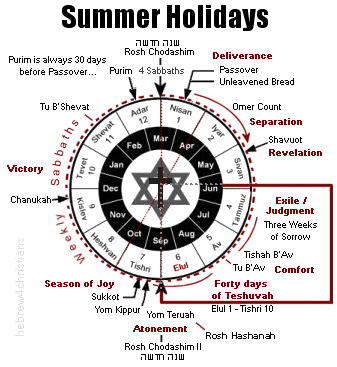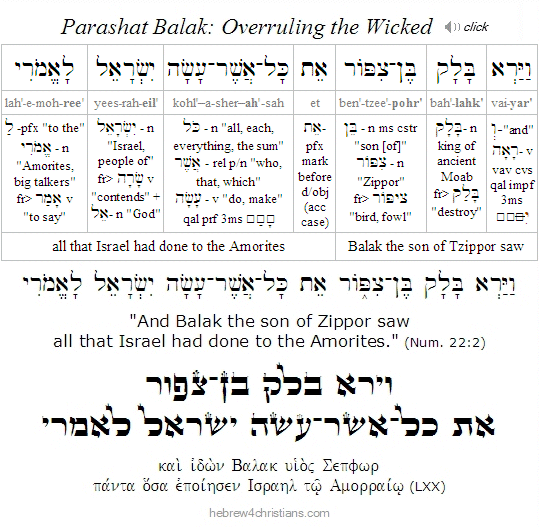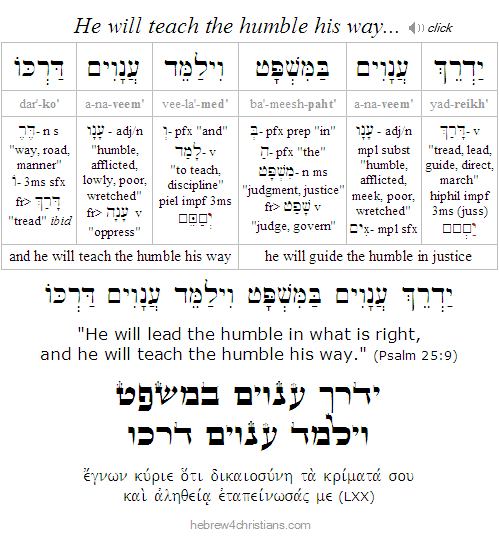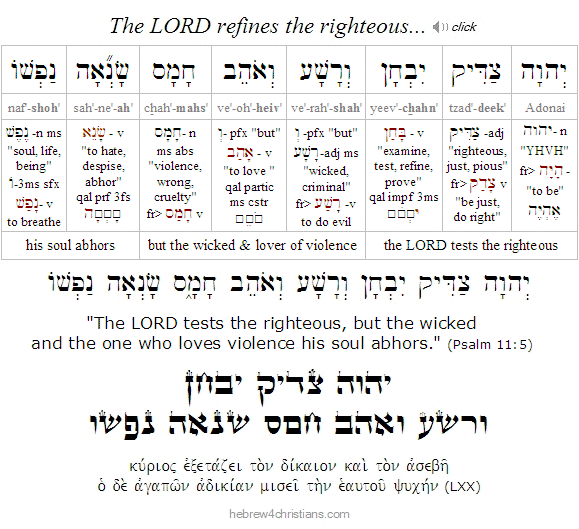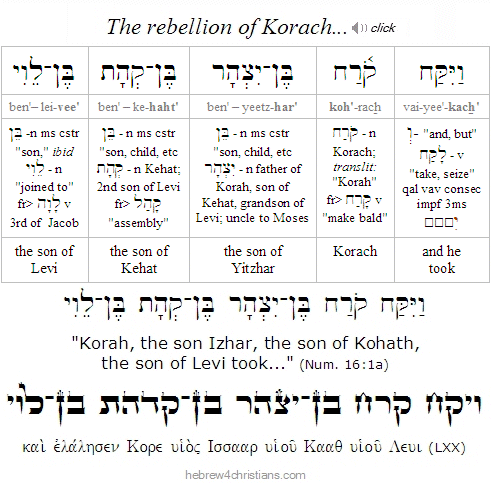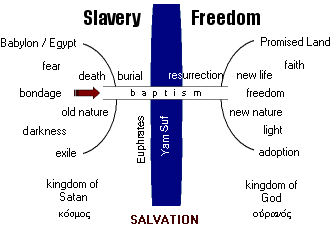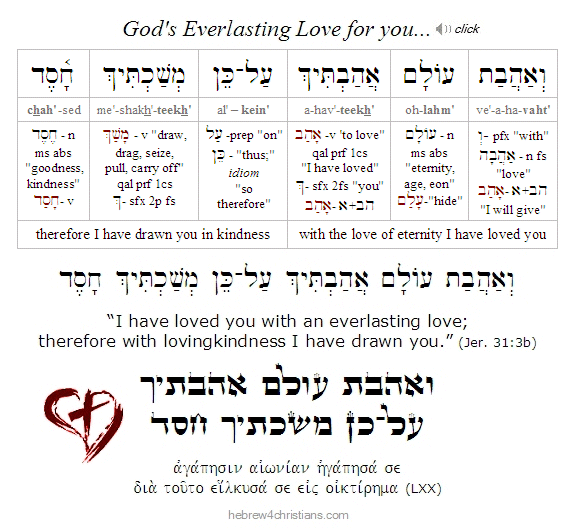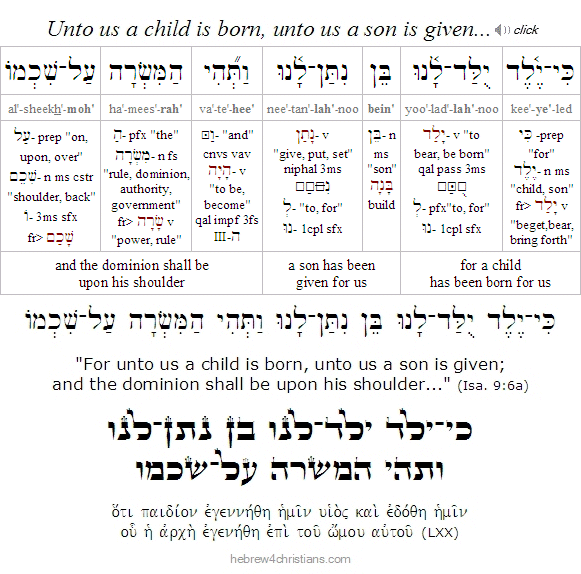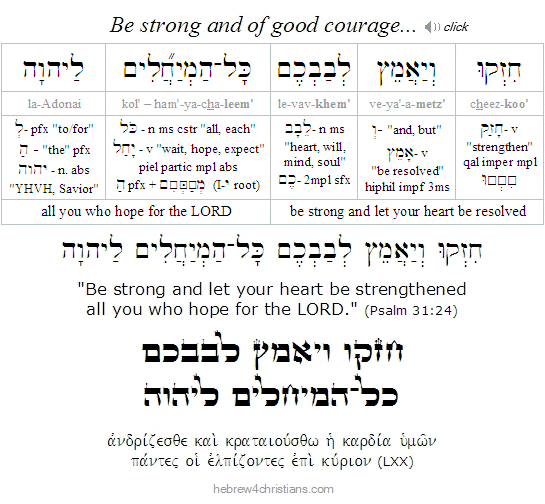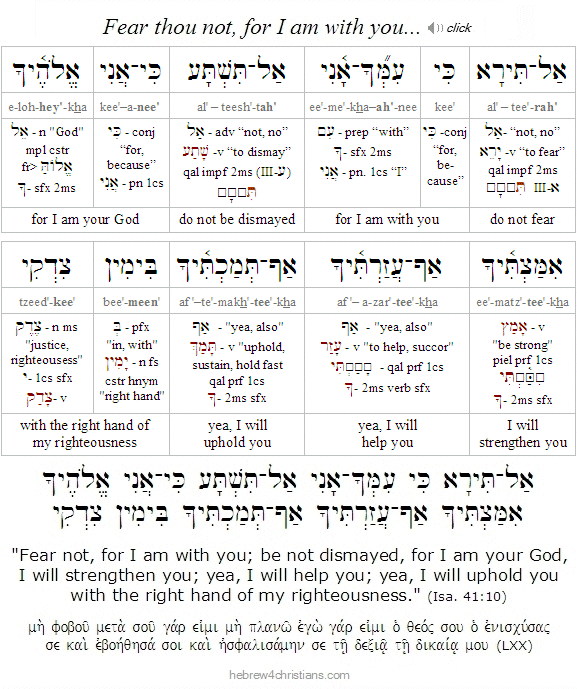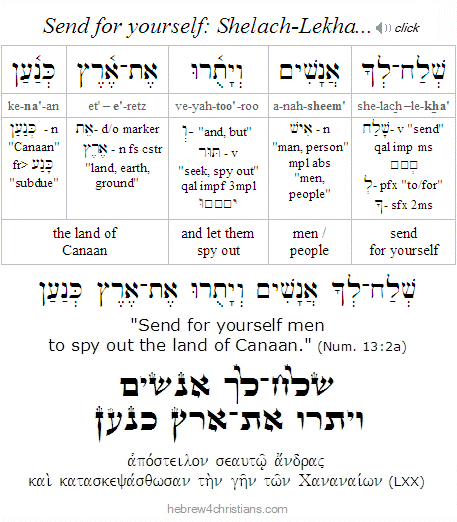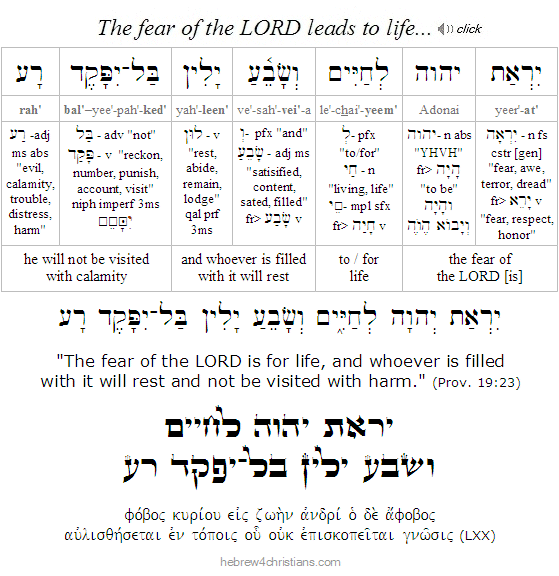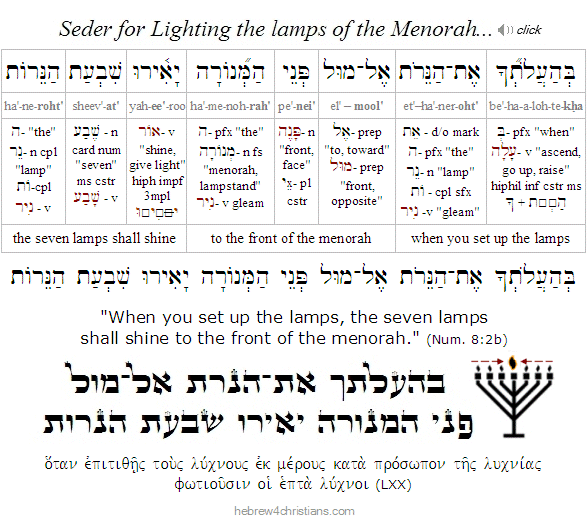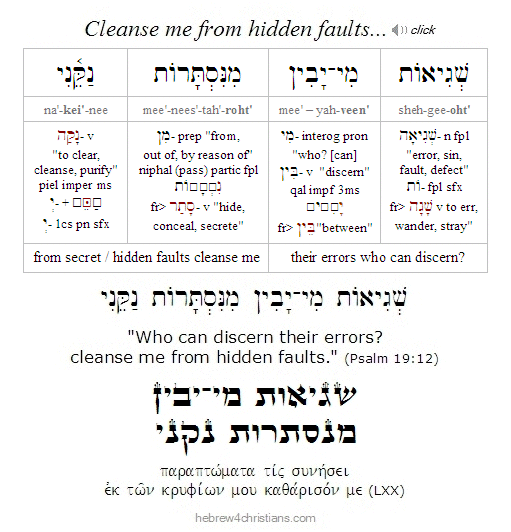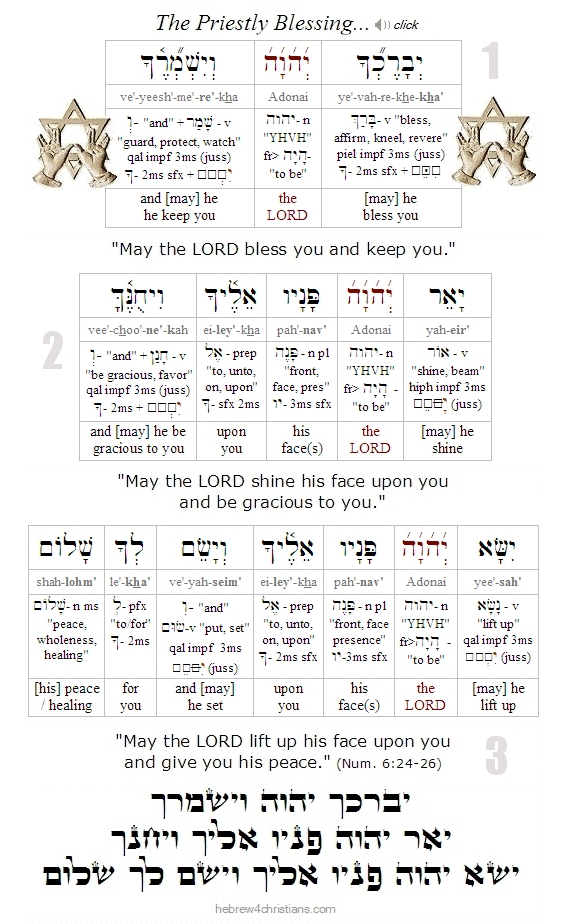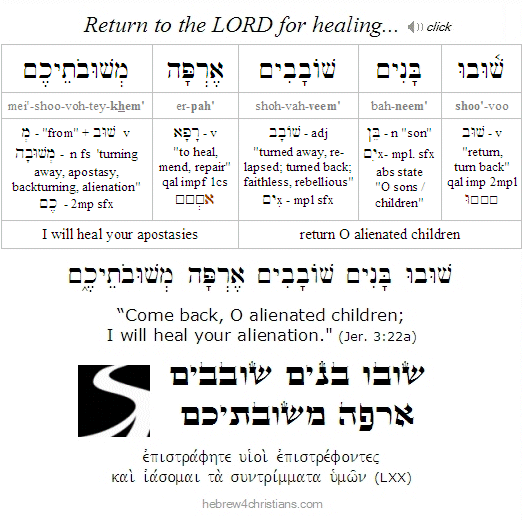|
Jewish Holiday Calendar
For June 2020 site updates, please scroll past this entry....
In the summer there occurs a three week period of mourning that begins with the Fast of Tammuz and ends with Tishah B'Av. The last nine days of this three week period (i.e., from Av 1 until Av 9th) are days of increased mourning. However, after this somber time, the happier holiday of Tu B'Av, the 15th of Av occurs. Summer ends with the 30 days of the month of Elul, a yearly season of teshuvah (repentance) that anticipates Rosh Hashanah and the fall holidays. The 30 days of Elul are combined with the first 10 days of the month of Tishri to create the "Forty Days of Teshuvah" that culminate with Yom Kippur.
Because they occur between the spring and fall holidays, the summer holidays help us prepare for the second coming of the Messiah:
The Summer Holidays:

Note that in accordance with tradition, holiday dates begin at sundown. Moreover, some holidays may be postponed one day if they happen to fall on the weekly Sabbath:
1. Month of Sivan (Sat. May 23rd [eve] - Sun. June 21st [day])
2. Month of Tammuz (Sun. June 21st [eve] - Tues. July 21st [day])
3. Month of Av (Tues. July 21st [eve] - Wed. Aug. 19th [day])
4. Month of Elul (Wed. Aug. 19th [eve] - Fri. Sept. 18th [day])
4. Month of Tishri (Fri. Sept. 18th [eve] - Sat. Oct. 17th [day]) - Fall holidays begin!
Note: For more about the dates of these holidays see the Calendar pages....
June 2020 Updates
Note: If any page content appears to be missing, please refresh the page...
The Torah of Balaam...
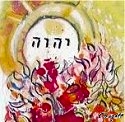
06.30.20 (Tammuz 8, 5780) In our Torah portion this week (Balak), we read how Balaam intended to curse the Israelites, but God "took hold of his tongue" and made him bless the people instead... It is encouraging to realize that despite the repeated failures of the Israelites in the desert, the LORD never let go of his people... Indeed, as the story of Balaam reveals, if a spiritual enemy should secretly arise to curse Israel, God would take the sorcerer "by the tongue" to evoke God's blessing instead (Deut. 23:4-5). As Balaam himself later confessed: "there is no sorcery (i.e., nachash: נחש) against Jacob; there is no divination (i.e, kesem: קסם) against Israel" (Num. 23:23). Unlike scheming Balaam, who was willing to say whatever people wanted to gain temporal reward, God is "not a man that he should lie, nor a son of man, that he should change his mind" (Num. 23:19, 1 Sam. 15:29). Whatever the LORD has promised he will invincibly perform: His word is full of integrity and truth: "The grass withers, the flower fades, but the word of our God will stand forever" (Isa. 40:8). Amen. The God of Israel is forever faithful in his love, and no one can overrule his desire (Num. 23:20; Rom. 11:29; Isa. 40:13). You can trust in your promised future, friend. As it is written: "No weapon fashioned against you shall succeed, and you shall refute every tongue that rises against you in judgment. This is the heritage of the servants of the LORD (זאת נחלת עבדי יהוה) and their vindication from me, declares the LORD" (Isa. 54:17).
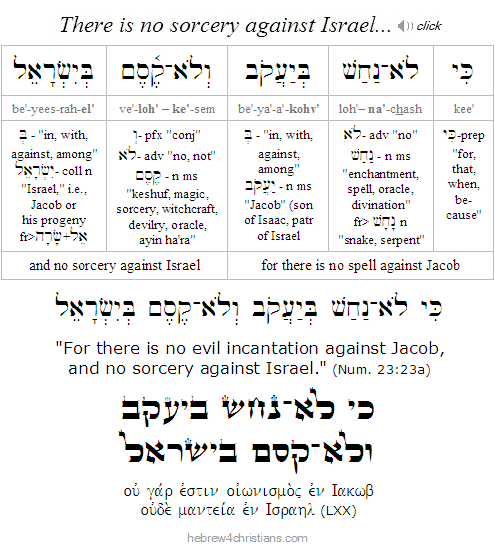 |
 |
Daily Dvar Podcast:
Shadows and Substance...

06.30.20 (Tammuz 8, 5780) Shalom chaverim. As I mentioned the other day, faith separates us from the visible and temporal realm to reveal the invisible and eternal realm -- faith hears (shema) the "yes" of the LORD in the midst of worldly dissipation and despair. Today's "Daily Dvar" broadcast discusses the walk of faith and how we need to remain focused on what is real in the midst of the ups and downs of our daily lives. I hope you find it helpful...
Deliverance from Anxiety...
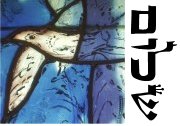
06.30.20 (Tammuz 8, 5780) It is written in our Scriptures: "Do not be anxious about anything, but in everything by prayer and supplication with thanksgiving let your requests be made known to God" (Phil. 4:6). Note that the verb translated "be anxious" here (i.e.,μεριμνάω) comes from a root word (μερίζω) that means to be fragmented or divided into parts and pieces. Being anxious is therefore the uneasy state of being distracted, unfocused and divided within yourself. When we worry we heed voices of fear and begin to feel 'double-minded,' (i.e., δίψυχος), unstable, and unable to think clearly; we get restless and find it difficult to deeply breathe. We start to feel out of control, fearful that something bad will happen despite all our efforts or wishes to the contrary; we sense doom; we lose heart; we go dark... The Scripture here admonishes us to pray when we are tempted us to be anxious by focusing on something for which we are grateful. Doing so will instill the "peace of God" (שלום יהוה) that rises above all worldly thinking to keep watch over your heart and your thoughts through Yeshua the Messiah (Phil. 4:7). We gain the "light of life," that is, inner illumination from God, so that we can remain steadfast and unmovable in our faith, despite the temptation to look for relief from our struggles apart from God.
 |
 |
Saved from Death's Sting...
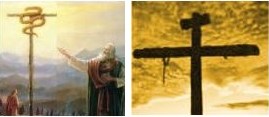
[ The following concerns this week's Torah reading, parashat Chukat... ]
06.30.20 (Tammuz 8, 5780) "Everyone who is bitten, when he sees it, shall live" (Num. 21:8). The fiery serpent – the very sting of which brings death – is what must be looked upon, confronted, and confessed. We must look at that which kills us, and by seeing it, we can then see God's miracle (נֵּס) that delivers us... Therefore we look to the cross – the place where Yeshua clothed himself with our sickness and sin – to realize God's remedy for our eternal healing. As Yeshua explained to Nicodemus, "As Moses lifted up the serpent in the wilderness, so must the Son of Man be lifted up, that whoever believes in him may have eternal life" (John 3:14-15). Humanity as a whole has been "bitten by the snake" and needs to be delivered from its lethal venom. Just as the image made in the likeness of the destroying snake was lifted up for Israel's healing, so the One made in the likeness of sinful flesh (Rom. 8:3) was to be lifted up as the Healer of the world. In Yeshua the miraculous exchange takes place: "For our sake he made him to be sin who knew no sin, so that in him we might become the righteousness of God" (2 Cor. 5:21). Bless His holy name!
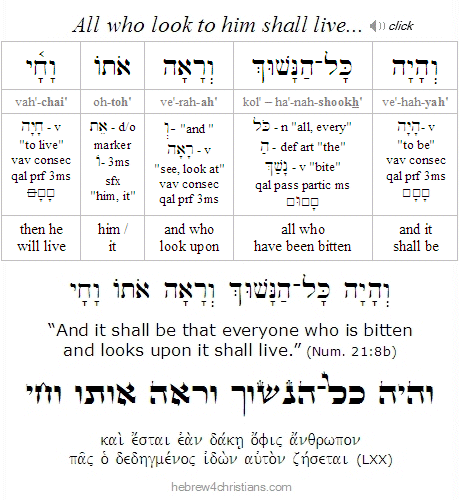 |
 |
No Good without God...

06.30.20 (Tammuz 8, 5780) As believers in the LORD we must learn to see beyond the temporal to behold the eternal; we must look past the shadows to see the Substance. In a sense we have to close our eyes and walk in the darkness of faith to see the supernal light which transcends the atmosphere of this world (2 Cor. 5:7). Faith separates us from the visible and temporal realm (i.e., chayei sha'ah: חיי שעה) before the invisible and eternal realm (i.e., chayei olam: חיי עולם); it hears (shema) the "yes" of the LORD in the midst of worldly dissipation and despair. Faith is the heartache, the groaning, and the yearning for undying love. "Whom have I in heaven but you? And there is nothing on earth that I desire besides you. My flesh and my heart may be consumed, but God is the strength of my heart and my portion forever" (Psalm 73:25-26). This world appears to the eye of faith a strange place, and here we are no more than sojourners as we look for our heavenly habitation whose builder and maker is God (Heb. 11:10; John 14:1-3). Our hearts yearn for the unseen good, healing beyond death to life, the realm of promise and blessing and unending grace... (selah!)
The Torah begins: "In the beginning (בראשׁית) God created the heavens and the earth, and the earth was "tohu va'vohu v'choshekh" (תהו ובהו וחשׁך) - confusion and emptiness and darkness - which the sages interpret to mean that when we truly understand that God created the heavens and the earth, we will realize our earthy desires to be barren, empty and unreal. In their despair, Plato and the early Greek philosophers sought "timeless universals" which they believed disclosed the reality of an "upper world," a heavenly realm of unchanging goodness, beauty, and truth. The world we experience with our senses is a shadowy place of change and decay; but the real world, discerned by clear thinking, is a place of permanence, goodness and illumination. Likewise the righteous soul trusts that despite this fleeting world that turns to dust, there is an eternal realm, a place of abiding love, and a heavenly home. "For here we have no lasting city, but we seek the city that is to come" (Heb. 13:14). Therefore "we look not to the things that are seen but to the things that are unseen; for the things that are seen are transient (πρόσκαιρος), but the things that are unseen are eternal. For we know that if the tent that is our earthly home is destroyed, we have a building from God, a house not made with hands, eternal in the heavens" (2 Cor. 4:18-5:1). In this world we suffer exile, groaning to be with our Savior, the Source of all blessing: "I say to the LORD, "You are my Lord; I have no good apart from you" (Psalm 16:2).
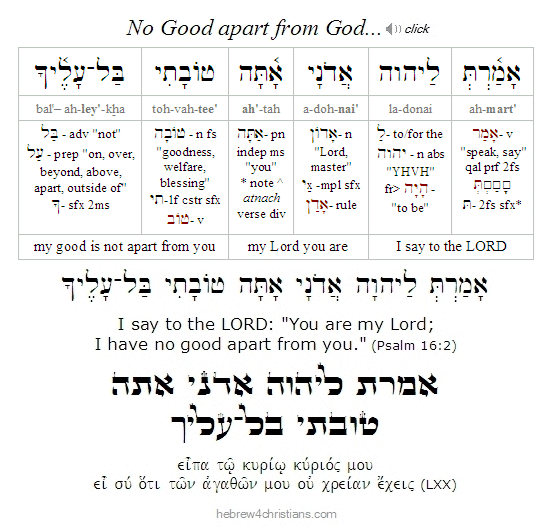 |
Faith (i.e., emunah) is a "double movement" of the heart. It both "sees what is invisible" (2 Cor. 4:18) and understands (i.e., accepts) that the "present form of this world is passing away" (1 Cor. 7:31). Faith rests in God's providential hand over the chaos and flux of creation. The eye of faith beholds the Presence of God and His reign over all the mundane affairs of this world. Indeed, it is only by fixing our hope upon the eternal that we are enabled to rightly apprehend the nature of the temporal world itself. In fact, the word emunah (אמונה) shares the same root as the Hebrew word for truth (אמת). In that sense, "seeing what is invisible" (τὰ μὴ βλεπόμενα) is a more fundamental type of "seeing," since the truth of hope ultimately interprets all other ways of seeing...
Love's Confession...

06.30.20 (Tammuz 8, 5780) It is written in our Scriptures: "The word is very near you; it is in your mouth and in your heart, so that you can do it" (Deut. 30:14). What "word" is this other than the confession of faith in the LORD? Faith is the key, since it responds to God's voice and receives the message of hope within the heart... Faith is a matter of the will: of choosing to receive the blessing, accepting that you are accepted, and trusting God's passion for your life. "Consider Abraham; he believed God and it was credited to him as righteousness" (Gal. 3:6). Faith itself is the obedience of Torah, the necessary precondition for all that follows. "I am the LORD your God" (אנכי יהוה אלהיך) is the very First Commandment. When we turn to the LORD, we esteem him as truthful, just, wise, compassionate, and worthy of our trust. "Faith makes God real to us and real in us; when we honor God, we give everything that a believing heart can give Him."
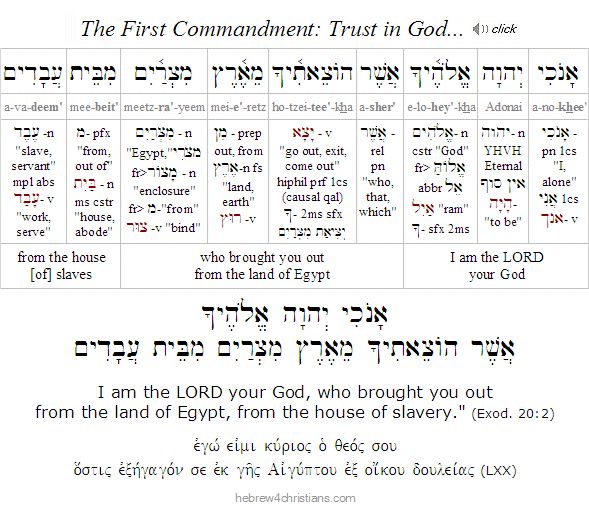 |
The students of the maggid of Zlotchov once asked him, "In the Torah we read that our father Abraham kept all the laws (Gen. 26:5), but how could this be, since they had not yet been given to him?" The maggid replied, "All that is needed is to love God. If you are about to do something and you think it might lessen your love, then you know it's a sin; but if you think it will increase your love, then you know it's in keeping with God's will. That's what Abraham did." Amen. Faith is the confession of God's love. Abraham was justified by faith because he trusted in God's love more than anything else, and that is the essence of Torah. "Now abide faith, hope, love, these three, but the greatest of these is love" (1 Cor. 13:13).
Daily Dvar Podcast:
Choosing to Believe... 

06.29.20 (Tammuz 7, 5780) Shalom chaverim. The Spirit of God cries out, "choose life that you may live!" (Deut. 30:19), which implies that is our responsibility to believe in the Reality of God, to trust in his providential care, to affirm that "all is well and all manner of thing shall be well," and to understand that our present struggle is designed by heaven to help us grow in grace and the knowledge of the truth (1 Pet. 3:16). In this new "Daily Dvar" audio podcast, I discuss the challenge of faith and how we can draw closer to the Lord despite the ambiguity and challenges we regularly face. I hope you might find it helpful.
The Ultimate Commandment..
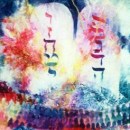
[ The following concerns the foundations of the Torah (yesodei haTorah) and parashat Chukat... ]
06.29.20 (Tammuz 7, 5780) The commandments of God are usually divided between the rational laws (i.e., mishpatim) and the divine decrees (i.e., chukkim), though this distinction is somewhat artificial, since all of the commandments of Torah (and that includes the Torah of the New Covenant) are grounded in the mystery of God's will, which is to say that we are to obey them simply because they derive from the Divine Authority itself... When the people gathered before Moses to receive the covenant at Mount Sinai, they said: "All the LORD has spoken we will do and we will hear" (na'aseh ve'nishmah: נַעֲשֶׂה וְנִשְׁמָע). Note the order: first comes faith in God expressed in the decision to act (na'aseh), and then comes understanding (ve'nishmah). As Yeshua said, "If anyone's will is to do God's will, he will understand" (John 7:17). The heart of faith is willing to do what God asks before hearing (or understanding) what is required. Many people operate the other way round, sitting in judgment of God's word, demanding to understand why they should obey. You cannot understand apart from faith, however, and that is categorically true of all forms of knowledge, which is usually defined as "justified true belief." We are to be "doers of the word and not hearers only, deceiving ourselves" (James 1:22). The Greek verb used in this verse is emphatic: "Be doers!" (γίνεσθε) means "be born!" "Come alive!" "Do, live, and exist before God!" This is a call to creative action, to newness of life...
Click to listen and learn the Hebrew text: 
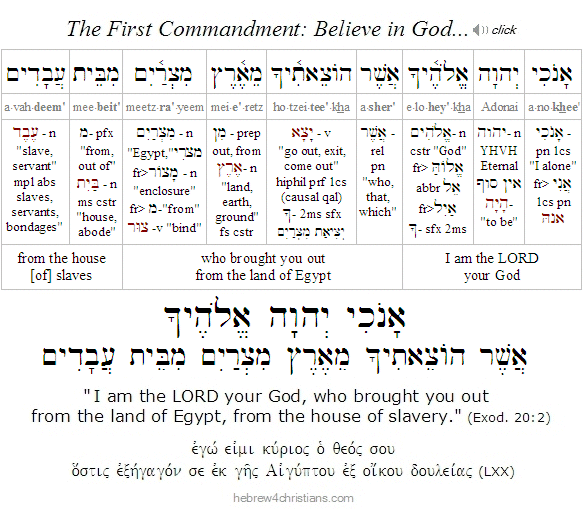 |
The Scriptures state that "if anyone is a hearer of the word and not a doer, he is like a man who looks intently at his natural face in a mirror. For he looks at himself and goes away and at once forgets what he was like" (James 1:23-24). If we just hear the truth but do not act upon it, we are comically likened to someone who carefully looks at his face in a mirror but then promptly forgets what he looks like after he steps away... Likewise those who only hear the word but do not "bring it to life" in their deeds forget who they are and why they were created (Eph. 2:10; Titus 2:14; Col. 1:10). When we look into the mirror of truth we see our need for teshuvah and turn to God for the healing miracle he provides (Heb. 4:12). It's not about doing but being, though being is revealed in doing... If your actions do not align with your values, then back up and recover who you really are in Messiah, understand what your new nature truly is. That is what it means to "take up the yoke" of Messiah, for his yoke is easy (kal) and burden is light, and the task is to repeatedly practice allowing Him to carry your pain, shame, and sin far, far away from your heart.
There is a deeper law, however, a "mirror" that reveals something beyond our passing image. When we look intently into the "perfect law of liberty" (תּוֹרַת הַחֵרוּת וּמַחֲזִיק) - the law of faith, hope, and love for our Savior - we find blessing in our deeds (James 1:25). Note that the verb translated "look into" the law of liberty is the same used when John stooped down to "look inside" the empty tomb of Yeshua (John 20:5). The deeper law reveals the resurrection power of God's invincible love. The Torah of the New Covenant also has many mitzvot, though these are based on the love God gives to us in Yeshua: "This is my Torah: that you love one another as I have loved you" (John 13:34).
 |
New Audio Podcast:
End of Days Lawlessness... 
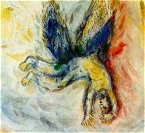
06.29.20 (Tammuz 7, 5780) We are living in perilous times. It is lawlessness to reject the Torah of the LORD that commands us to follow Messiah and know him in all our ways - including the ways of our struggles, our calls for justice, and so on... Yeshua plainly warned us that those who practice lawlessness and anarchy do not know him and therefore they will be judged as outsiders of the truth of God. In this audio podcast, I discuss the meaning and importance of the "law" in the life of those who purport to be followers of the Messiah.
The Central Decree of Torah...
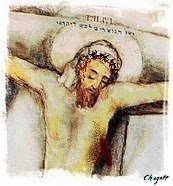
06.28.20 (Tammuz 7, 5780) Our Torah portion this week (i.e., parashat Chukat) begins with the words: zot chukat ha-Torah (זאת חקת התורה), "this is the decree of Torah" (Num. 19:2). The language here is both striking and unique, suggesting that what follows, namely, the sacrifice of the parah adumah or "red heifer," is nothing less than "the seminal decree" of the entire Torah... However if we think about the meaning of the mysterious decree of the red heifer, we will realize that its ashes were used to create the "waters of separation" (i.e., mei niddah: מֵי נִדָּה) to cleanse people from contact with death (i.e., separation). To fulfill God's vital decree, however, required sacrificial love, since the priest who offered this service would become defiled (separated) for the sake of the healing of others... The Hebrew word for love is ahavah (אַהֲבָה), from a root verb (יָהַב) that means "to give." Love means giving of yourself to benefit another person (John 15:13). The central decree of Torah, then, beyond our ability to rationally understand, is that God's love is so great that it is willing to become dust and ashes on our behalf so that we might find blessing and life.
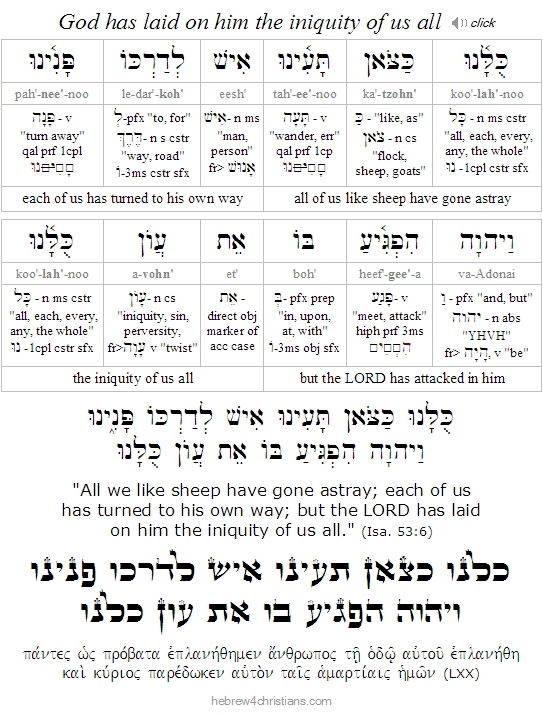 |
Yeshua willingly became unclean on our behalf - through contact with our sin and death - so that we could become clean (Isa. 53:3-6, 2 Cor. 5:21, Gal. 3:3, Eph. 5:2, Titus 2:14). The pure became impure through His sacrificial offering. Because of Him, we have been cleansed from our sins "by a better sprinkling" than that which the Tabernacle of Moses could afford (Matt. 26:28, Heb. 9:14, 12:24, Eph. 1:7, 1 Pet. 1:2,18-19, Rom. 5:9; Col. 1:14, 1 John 1:7, etc.).
The ashes of the red heifer represented the death and sacrifice of something extremely rare, valuable, and precious. The ashes were mixed with "living water" (מַיִם חַיִּים) to reveal the truth that though the end of all flesh is but dust and ashes, the Spirit gives cleansing and life. Indeed the word ashes (אֵפֶר) may be rearranged to spell both cure (רַפֵא) and beauty (פְאֵר). The author of the book of Hebrews argues kal va'chomer (i.e., קַל וְחמר, "light and weighty"), that is, "from the lesser case to the greater." If the sprinkling of water mixed with the ashes of a red heifer purified the flesh from contamination with physical death, how much more does the blood of Messiah purify the soul from that which causes spiritual death? (Heb. 9:13-14). Indeed, because of Yeshua's sacrifice we are given "beauty for ashes, the oil of joy for mourning, the garment of praise for the spirit of heaviness," that we may be called "trees of righteousness (אֵילֵי הַצֶּדֶק), the planting of the LORD, that He may be glorified" (Isa. 61:3). Amen. Yehi shem Adonai mevorakh!
 |
Mystery of the Red Heifer...
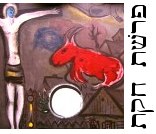
06.28.20 (Tammuz 7, 5780) Shavuah tov, friends. This week we have a "double portion" of Torah and will read both parashat Chukat and Balak... In the first portion (i.e., Numbers 19:1-22:1), God gave the "law of the red heifer," a special whole-burnt offering whose ashes were used to purify those who were contaminated by contact with the dead. The red heifer had to be a perfect specimen that was completely red, "without blemish, in which there is no defect." Unlike other sacrifices offered at the altar at the Mishkan (Tabernacle), the red heifer was taken outside the camp to be slaughtered before the priest, who then took some of its blood and sprinkled it seven times before the Tabernacle. Then the heifer would be burned in its entirety: its hide, flesh, blood, and even dung were to be burned (unlike other sacrifices). Also unlike other offerings, the blood of the sacrifice was to be completely burned in the fire. Hyssop, scarlet yarn, and a cedar stick would would be thrown upon the burning heifer, which were the same items used to cleanse from tzara'at (skin disease). These items, along with the blood of the red heifer, were therefore assimilated into the ashes of the sacrifice, which were gathered and mixed with living water to create what was called the "waters of separation" (i.e., mei niddah: מֵי נִדָּה) for the community. Anyone that came into contact with death (i.e., a corpse) was required to be ritually cleansed using these waters..
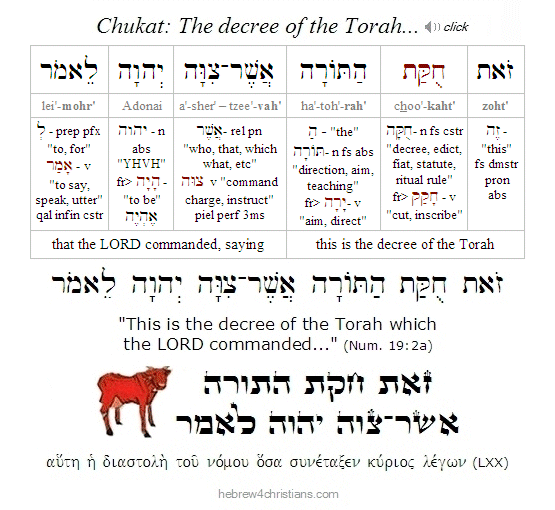 |
Overruling the Wicked...
The second Torah portion (i.e., Numbers 22:2-25:9) is named after a fretful Moabite king named Balak (בָּלָק) who sought to curse the Jewish people by hiring the services of a wicked Midianite "prophet" named Balaam (i.e., Bil'am: בִּלְעָם). It begins this way: "And Balak the son of Zippor saw all that Israel had done to Amalek (e.g., אֱמרִי, the "big talkers") and grew fearful. King Balak's plan was to employ Balaam's sorcery (i.e., kishuf: כִּשׁוּף) against the Israelites to prevent them from entering the Promised Land. Similar to the delicious irony that befell the villain Haman in the Book of Esther, however, King Balak's scheme was upended, and the curse he sought to put on the Jewish people was repeatedly pronounced as a blessing by Balaam instead. After several foiled attempts, Balak fretfully dismissed the prophet, but before departing from the dejected king, Balaam ironically prophesied the destruction of the Moabites and the victorious establishment of Israel. Some peoples lives, it seems, are meant to serve as warning of the dangers of self-destruction.... The story of Balaam reveals that the LORD protects his people: "there is no enchantment against Jacob, no divination against Israel" (Num. 23:23). Ein od milvado (אֵין עוֹד מִלְבַדּו) - no weapon or scheme devised against God will ever prosper (Isa. 54:15-17).
Shadows and Reality...

06.26.20 (Tammuz 5, 5780) Sometimes we seem to forget that we are not home yet... The ancient thinker Socrates argued that philosophy, when done correctly, was "practice for death," since the passing shadows of this world pointed to an unchanging good, our true end. Likewise Yeshua our Messiah taught us to take up the cross and die daily (Luke 9:23). We are to "set our affections on things above, not on things on the earth," for we have died and our life is hidden with Messiah in God (Col. 3:2-3).
It is difficult for us to die, to let go, however, because we are deeply attached to this world, and we often abide under the worldly illusion that we will live forever, that tomorrow will resemble today, and that heaven can wait... History is littered with crumbling monuments offered to the idols of this world. The Scriptures are clear, however: "The present form (τὸ σχῆμα) of this world is passing away" (1 Cor. 7:31), and the heart of faith seeks a city whose Designer and Builder is God Himself (Heb. 11:10). "So we do not lose heart. Though our outer self is wasting away, our inner self is being renewed day by day... For the things that are seen are turning to dust, but the things that are unseen endure forever (2 Cor. 4:16-18). Because of our sin, creation was made "subject to vanity," though God has overcome the dust of death by giving us an unshakable hope (Rom. 8:20).
אָדָם לַהֶבֶל דָּמָה
יָמָיו כְּצֵל עוֹבֵר
a·dam · la·he'·vel · da·mah
ya·mav · ke·tzel · o·veir

"Man is like a breath;
his days are like a passing shadow."
(Psalm 144:4)
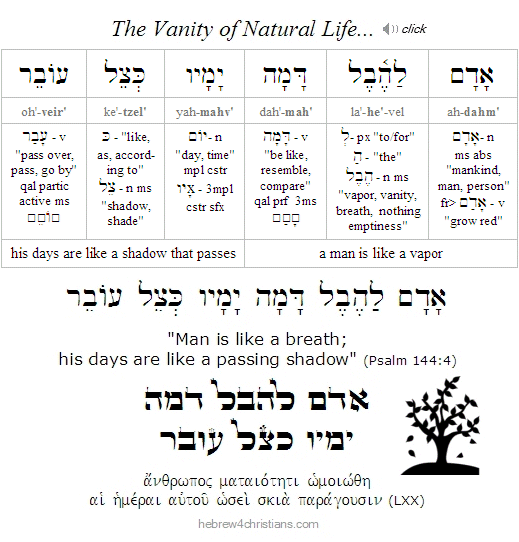
The truth that ha'kol oveir (הַכּל עוֹבֵר), "everything passes" like a shadow, should help us keep our perspective regarding the various moments of testing we all face in this life. As Nachman of Breslov once said, "The whole earth is a very narrow bridge, and the important thing is never to be afraid" (כָּל־הָעוֹלָם כֻּלּוֹ גֶּשֶׁר צַר מְאד וְהָעִקָּר לא לְפַחֵד כְּלָל). Yeshua is the Bridge to the Father, the narrow way of passage that leads to life. He has overcome the meretricious world and its vanities. He calls out to us in the storm saying, "Take heart. It is I; be not afraid" (Matt. 14:27). When Peter answered the call and attempted to walk across the stormy waters, he lost courage and began to sink, but Yeshua immediately took hold of him, saying, "O you of little faith, why did you doubt (lit., think twice)?" Keep focused on what is real, chaverim, resist the lies being disseminated by the godless world powers and their devices.
Matters of Ultimate Concern...

[ The following entry concerns this week's Torah reading, parashat Korach... ]
06.26.20 (Tammuz 5, 5780) We read in our Torah portion the terrible fate of Korah and his co-conspirators: "And the earth opened its mouth and swallowed them up" (Num. 16:32), which the sages say metaphorically refers to being consumed by this world and its desires. Life is a serious business, an irrepeatable opportunity. Many trifle their way to the grave, fully unprepared for the shock of the world to come... How few make it the great business of life to prepare themselves "until their change comes" (Job 14:14); how few consciously number their days to obtain a heart of wisdom (Psalm 90:12)? We mustn't fool ourselves by thinking we have a long road ahead before we face who we are at the time of our death (Luke 12:19-21). "No one knows the day or hour," yet it is certain to come, and wisdom bids us be prepared. All must die; there is no escape (Heb. 9:27). "No man has power to retain the spirit, or power over the day of death. There is no discharge from this war, nor will wickedness deliver those who are given over to it" (Eccl. 8:8).
In light of this somber truth, do you reflect on its significance? Have you taken time to reflect on how it will be for you at your death? Allow such thoughts to awaken you from your careless and unwatchful state. Lay up treasure in heaven (Matt. 6:20). Considering the vastness of eternity, human life is likened to a mere vapor that quickly passes away (Psalm 103:15-16). It is madness to put off that which is of ultimate concern until the last moment. Therefore "repent one day before you die." But who knows the day of one's death in advance? Therefore live each day as if it were to be your last, and may God help you make the decision to "seek the LORD while He may be found; call upon Him while He is near" (Isa. 55:6). Amen, And may the LORD quicken these matters to our hearts...
כי־ידעתי מות תשׁיבני
ובית מועד לכל־חי
kee - ya·da'·tee · ma'·vet · te·shee·vei'·nee
oo·veit · mo·eid · le·khol - chai

"For I know that you will bring me to death,
and to the meeting place for all the living."
(Job 30:23)

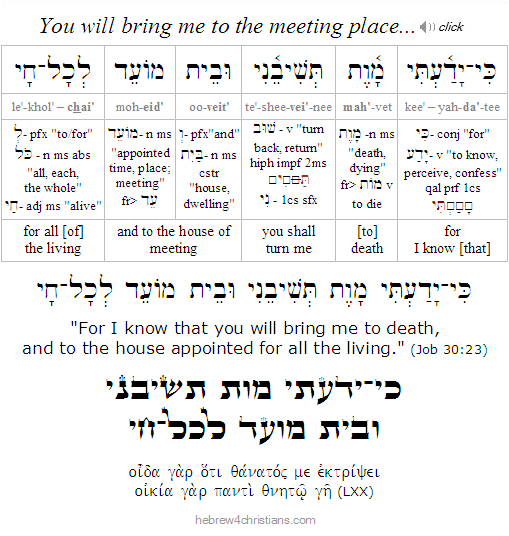 |
Of course dying in the LORD assumes you are really "in Him," that is, that you are a person whose heart is known by Him (1 Cor. 8:3). You can't die in him if you have never lived in him. In this world we learn to die, and as we die in Him, so we will live in him. Resolve this within your heart: "Blessed are the dead who die in the Lord" (Rev. 14:15).
Concerning the prospect of death we are full of confidence, of course, since Yeshua has overcome death for us and secured our place in heaven (John 11:25; Heb. 2:9-10). "We must all die; we are like water spilled on the ground, which cannot be gathered up again. But God will not take away life, and he devises means so that the banished one will not remain an outcast" (2 Sam. 14:14). Though physical life inevitably returns us to dust (Heb. 9:27), death does not have the final word, since God wonderfully "devises the means by which the banished are brought back home." If you belong to the Lord, your death is the day of precious homecoming to be with your beloved Savior: "For me to live is Messiah, and to die is gain" (Phil. 1:21). As it is written, "just as we have borne the image of the man of dust, we shall also bear the image of the man of heaven" (1 Cor. 15:49).
 |
Audio Podcast:
The Warning of Korach...
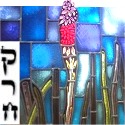
06.26.20 (Tammuz 5, 5780) Our Torah portion this week (Korach) centers on the rebellion of Korah, a man who questioned God's authority and who arrogantly sought to "intrude" into the office of the priesthood. It is noteworthy that his rebellion is explicitly mentioned only once in the New Testament - in the Book of Jude - as an example of the fate that awaits those false teachers who likewise spurn God's law. False teachers within the church are likewise dangerous because they deny the truth of Torah and redefine our duties before God. Jude identifies them as spiritual impostors who "work from the inside" to confound or obscure the truth of what salvation means. Such a charlatan may appear to be a genuine believer, but he or she aims to sow confusion and sin among God's children; they are the proverbial "wolves in sheep's clothing" (Matt. 7:15). Jude's warning is especially important for us in this present hour because it is foretold that in the time immediately preceding the coming of the Messiah spiritual deception and unbridled godlessness would greatly increase (2 Tim. 3:1-5). At any rate, test the spirits and seek God's face always, dear friends. I sincerely hope this audio broadcast encourages you... Please click the link(s) below to listen or download:
The Message of Jude...

[ The following is related to this week's Torah reading, parashat Korach. Please read the Torah portion to "find your place" here. ]
06.26.20 (Tammuz 5, 5780) Our Torah portion this week centers on the rebellion of Korah, a man who questioned God's authority and arrogantly sought to "intrude" into the office of the priesthood. It is noteworthy that his rebellion is explicitly mentioned only once in the New Testament - in the Book of Jude - as an example of the fate that awaits those false teachers who likewise despise God's moral law. Unfortunately, Jude's warning is often neglected today, probably because people feel uncomfortable over the prospect of God's judgment. After all, in our "politically correct" age, people have been indoctrinated to regard "tolerance" as the greatest of virtues and "intolerance" (especially of moral evil) as the greatest of vices.... Most unbelievers don't mind hearing the "good news" of God's love, but they take exception when they are confronted with their personal duty to live according to the moral truth revealed in the Torah. Everyone wants to go to heaven though they don't want to find a Holy LORD when they get there... False teachers within the church are dangerous because they feed on this sense of discomfort and attempt to rationalize or compromise it away. Jude identifies them as spiritual impostors who "work from the inside" to confound or obscure the truth of God. Such a charlatan may appear to be a genuine believer, but their hidden agenda is to sow confusion and sin among God's children. They are proverbial "wolves in sheep's clothing" (Matt. 7:15). Jude's warning is especially important for us to heed in this present hour, because in the time immediately preceding the coming of the Messiah, spiritual deception and unbridled godlessness will greatly increase (2 Tim. 3:1-5).
It is important to see that the primary characteristic of a false teacher is that they "deny our only Master and LORD, Yeshua the Messiah" -- that is, they deny His moral authority and identity as the LORD God (Jude 1:4). Since Jude is writing to those who are "beloved by God," that is, to sincere Jewish believers, he is careful to remind us that it was Yeshua Himself who saved the people from Egypt -- but afterward destroyed those who did not believe (Jude 1:5). In other words, Jude wanted to ensure that we fully understand that it was Yeshua who was the thunderous "Voice of the Living God speaking from the midst of the fire" at Sinai (Deut. 5:26), and therefore to regard Him as none other than the great Lawgiver Himself (Matt. 5:17-7:29). That is why he is called "our only Master and LORD," and to esteem him as anything less is to deny the reality and truth of God.
Many churches today teach that we can (and should) disregard the moral law of God. They may give lip service to the "old testament," and they may claim it is still of historical interest that provides some interesting stories, but they arrogantly discount its essential message of holiness as being inapplicable to our daily lives. Often they are antinomian, teaching that we are no longer "under the law" and therefore are free to live in sin. Because they disregard (or "reinterpret") the clear moral teaching of the Torah (and the New Testament), they wink at fornication, support alternative "marriages," endorse gay clergy, and clamor for abortion rights. Many of the institutionalized churches promote syncretistic "replacement theology" that invent rituals, holidays, and symbols that are alien to the truth revealed in the Jewish Scriptures. These churches are often tolerant of "universalism," new age mysticism, and regard postmodern skepticism as "trendy." They may claim they are "seeker sensitive" but this is often "code" that they disregard the moral duty believers have to walk in personal righteousness. And because of their willful ignorance, some of these churches unthinkingly accept anti-Jewish propaganda - despite the irrevocable promises God has made to the Jewish people. Jude likens advocates of such doctrines to be "inhabitants of Sodom and Gomorrah" who will likewise be judged by God with eternal fire...
In this connection let me remind you of a verse from the New Testament: "Let no one in any way deceive you, for it [Yeshua's return] will not come until the apostasy (ἀποστασία) comes...." (2 Thess. 2:3). The word "apostasy" literally means "standing away" (ἀπό + ἵστημι) from the truth while making a pretense of abiding within it. In Hebrew, the word is meshuvah (מְשׁוּבָה), one who "turns away" from God. It is not a word that describes an unbeliever as much as it describes a traitor.... Some people think there will be a great time of revival just before Yeshua returns, but unfortunately that is not true. Indeed, Yeshua asked if he would find anyone who had faith at that time (Luke 18:8). At any rate, Jude states that those who "creep into" congregations to teach truth contrary to the revealed will of God are apostates, and the judgment they face is terrible to consider.
We can guard against false teachers by using discernment to "test their spirits" (1 John 4:1), but we can only be equipped to do so if we "build ourselves up in the most holy faith" (Jude 1:20). We build ourselves up by carefully studying the word of God - especially the Torah, since it is the foundation of all that follows. In this way we will be able to accurately wield the Sword of the Spirit (2 Tim. 2:15-16, 2 Pet. 1:19-20). In order to grow, we must have "good soil" for the seed of the word to take root. We "get rooted by knowing the roots" of our faith! Studying the Scriptures and praying in the Holy Spirit keeps us in the love of God as we wait for the mercy of Yeshua who gives us eternal life (Jude 1:21). This will equip us to show mercy to those who have honest doubts and to save those who are defiled by sin (Jude 1:22-23).
 |
For more on this subject, please see:
Choosing to Believe...

06.25.20 (Tammuz 3, 5780) The Spirit of God cries out, "choose life that you may live!" (Deut. 30:19), which implies that is our responsibility to believe in the Reality of God, to trust in his providential care, to affirm that "all is well and all manner of thing shall be well," and to understand that our present struggle is designed by heaven to help us grow in grace and the knowledge of the truth (1 Pet. 3:16). All things work for our good (Rom. 8:28) and therefore we "choose life" both in happier moments when all goes well, but also (and especially) in the midst of our afflictions, in the panting of our hearts for deliverance, in the loneliness of our heartache, and in the lament of our soul over the pain of our sins (Psalm 25:16). Faith courageously refuses the messages of fear, silences the angry voices of this world, and resists the idols of the age that offer spurious respite from the struggle at hand... "If we live by the Spirit let us also walk in the Spirit" (Gal. 5:25). We may ask God to help us choose life, but what does that mean if not asking God to grant us the ability to believe in the miracle of love - despite everything else? Choosing life involves the surrender of the heart and the will to the promise of God, choosing to receive the blessing of the Divine Presence – his word, his promise, and his healing – and resolutely deciding to live in light of that hope today...
To de-cide means to "cut away" other options. Yeshua tells us to "take up the cross and die" because that which is dead no longer suffers from ambivalence and carnal inner conflict... "I have been crucified with Messiah (Χριστῷ συνεσταύρωμαι): it is no longer I who live, but Messiah who lives in me. And the life I now live in the flesh I live by faith in the Son of God, who loved me and gave himself for me" (Gal. 2:20). There are no "half-measures" here; when we accept that we have already been crucified with Messiah, we confess that our true life is not here, in this world, but is bound up in Him, and that God alone is our ultimate concern and end. In that sense, the life we now live in the flesh "catches up" with the truth and power that God has decreed for our salvation.
If we are spiritually identified with Yeshua, we are both made "dead" to this age (olam hazeh) and awakened to a realm that transcends the appeals of the flesh (olam habah). We no longer live chayei sha'ah (חַיֵּי שָׁעָה, "fleeting life") but chayei olam (חַיֵּי עוֹלָם, "eternal life"). "If then you have been raised with Messiah, seek the things that are above (τὰ ἄνω ζητεῖτε), where the Messiah is seated at the right hand of God; focus your thoughts on the things above - not on things here on earth - for you have died, and your life has been hidden with Messiah in God" (Col. 3:1-4). The aorist verb "you have died" indicates "you have died once for all," that is, that this is a condition granted by the power and agency of God on your behalf. You don't "try to die" to the flesh; you accept what God has done by killing its power over you through Yeshua...
All this takes faith of course. Affirm then that you are dead to this world; you are dead to sin's power; you are set free and no longer enslaved to the deception of the worldly matrix, etc. Now you are made alive to an entirely greater and more powerful order and dimension of reality, namely, the spiritual reality that is not disclosed to the vanity of this age. Therefore we are to consciously focus our thoughts (φρονέω) on the hidden reality of God rather than on the temporal world that is passing away: "For we are looking not to the things that are seen but to the things that are unseen. For the things that are seen are transient (i.e., "just for a season," καιρός), but the things that are unseen are eternal" (2 Cor. 4:18).
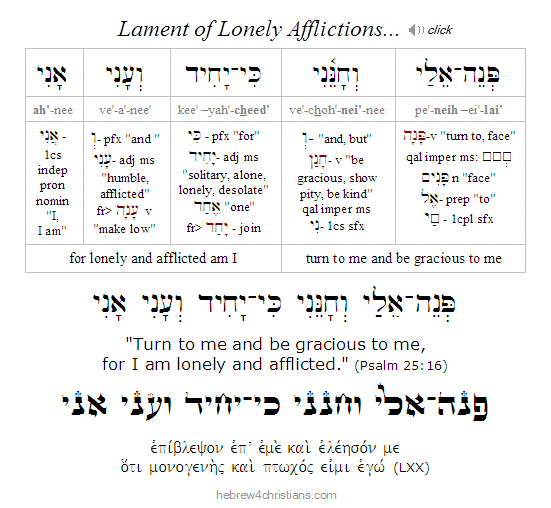 |
 |
Beware of False Prophets...

06.25.20 (Tammuz 3, 5780) "Beware of false prophets," Yeshua warned, "who come to you in sheep's clothing (literally, "the skins of sheep," ἐν ἐνδύμασι προβάτων), but who inwardly are ravenous wolves. You will recognize them by their fruits" (Matt. 7:15; cp. 2 Pet. 2:1). However, because they come in disguise, pretending to be "children of light," we must be all the more vigilant. On the one hand, we must beware of those who "wrap themselves in a tallit" (legalists) and teach that we should come under the yoke of the law (Matt. 23:15), and on the other, we must beware those who minimize words of the holy Torah, who falsely claim that the way to heaven is "broad," and that we therefore are "free" to walk after the desires of our own hearts (antinomianists). We must use godly discernment, friends. Note this well: The LORD allows false teachers in our midst to test our hearts: "For there must be (δεῖ) factions among you so that those who are genuine among you may be recognized" (1 Cor. 11:19). Therefore "test the spirits" to see if they are "of God," that is, whether they focus on the righteousness of God given exclusively through Yeshua, the "narrow way that leads to life" - or whether they focus on something else. The Holy Spirit always centers the heart on the glory of God revealed in Yeshua (John 16:14; 1 Cor. 2:2, etc.).
It is written in our Scriptures, "Watch out, friends, lest there be in any of you an evil, unbelieving heart (לֵב מְרֻשָּׁע וַחֲסַר אֱמוּנָה), leading you to fall away from the living God, but exhort one another every day, as long as it is called "today," that none of you may be hardened by sin's deception" (Heb. 3:12-13). Note that the Greek word translated "exhort" here (i.e., parakaleo: παρακαλέω) comes from the same root used to describe the work of the Holy Spirit to strengthen God's people: As Yeshua said: "But the Parakletos (῾ο παράκλητος), the Holy Spirit, whom the Father will send in my Name, will teach you all things and bring to your remembrance all that I have said to you" (John 14:26). Each and every day, then, we need exhortation from one another to remind us of what is real to encourage us to turn toward the Living God (אֱלהִים חַיִּים). As we do this we serve as vessels of God's Spirit, empowering us to remain steadfast and constant in our devotion, and guarding our hearts from the temptation to despair....
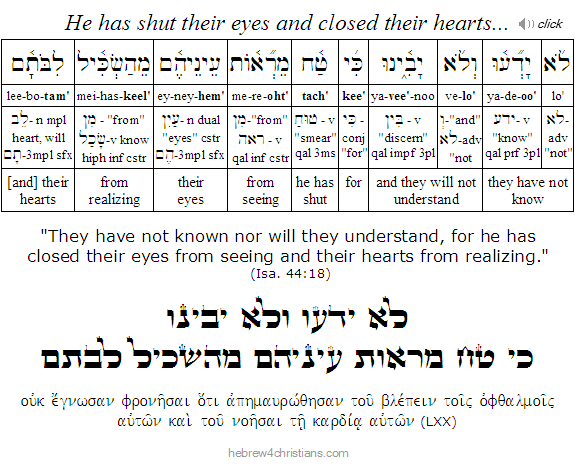 |
 |
The Narrow Door...

06.25.20 (Tammuz 3, 5780) "Make every effort to enter through the narrow door, because many, I tell you, will seek to enter but will not be able" (Luke 13:24). The narrow door is the way of humility, assuming a low position, crawling, if you will, and making yourself small... It is the way of the cross of Messiah, confessing the truth of our condition and trusting in God alone for deliverance.. The narrow door is the way of faith - trusting God's compassion and righteousness given on your behalf. The large, wide-open door is designed for the crowd and its various idols. Beware of the world that seeks to assimilate the soul: beware of becoming part of the crowd! The individual is lost and overwhelmed in the midst of the crowd and its momentum. The crowd assimilates the soul, laughs at the notion of individual responsibility, and abandons itself to the gravity of fallen natural forces... The life of faith, on the other hand, refuses to regard the individual human heart as a triviality. Faith is an individual struggle, a walk into unknowing; it is the way of the sojourner who feels uneasy in this world of shadows... God is always with us and helps us stay strong and resolute, even as we struggle through the darkness of this age. Press on, chaverim. The day and the hour draw near!
 |
The Madness of Korah...
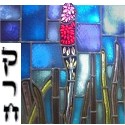
[ The following entry concerns this week's Torah reading, parashat Korach... ]
06.25.20 (Tammuz 3, 5780) This week we read about the rebellion a man named Korah who challenged Moses' leadership of God's people. Rejecting the idea that God "choses" certain people to be leaders, Korah claimed to be a "man of the people" who pretended to seek equality and justice for all. Like all hypocrites, however, Korah accused Moses of what was in his own heart: "You have gone too far! (רַב־לָכֶם, lit., "(too) much for you!")... all the congregation is holy, every one of them, and the LORD is among them. Why do you raise yourselves above the congregation of the LORD?" (Num. 16:3). Implicit in Korah's complaint was the rejection of the idea of "chosenness," and this further impugned the divine origin of Torah revelation. After all, if it were true that the LORD was equally among all the people, surely a democratic (rather than theocratic) model of government would be best... Moses, however, clearly understood Korah's envy and ulterior motives, and therefore called for a "power encounter" to demonstrate the veracity and integrity of his office.
The portion begins with the words, "And Korah took..." וַיִּקַּח קרַח / (Num. 16:1). The sages note that this verse does not say exactly what it was that Korah took. The Hebrew simply reads, vayikach Korach... which may suggest that Korah took offense, and indeed the entire portion can be regarded as one of machloket (i.e., מַחְלקֶת, strife or argument), which can be either l'shem shamayim, "for the name of heaven" (i.e., to discern truth) or shelo l'shem shamayim, "not for the name of heaven." A mishnah reads, "Any machloket waged for the sake of Heaven (in the service of God) will stand. Any machloket which is not for the sake of Heaven will not stand. Which controversy was an example of being waged in the service of God? Such was the controversy of Hillel and Shammai. And which was not for God? Such was the controversy of Korah and all his company" (Pikei Avot 5:20). Note that the name Korah may come from a verb meaning "split," alluding to the division he would later express.
Jewish tradition tends to regard Korah as a paradigmatic "rationalist" who took offense over the decrees (non-rational laws) of Torah. For example, the midrash says that Korah argued with Moses about the techelet (blue) string required of tzitzit (ציצית), asking Moses that if a garment were made entirely of blue thread, would tzitzit still be required to be worn? Such a law seemed illogical, and therefore Korah questioned it. In that sense, Korah represents the perspective of rationalism: "I understand in order to believe," rather than the other way around, "I believe in order to understand." Kol Dodi notes that Korah's name (i.e., קרַח) can be arranged to spell choker (חקֶר), meaning to reasearch or "analyze." Korah thought that the human mind was capable of understanding the LORD through analysis and reason, rather than through faith and obedience.
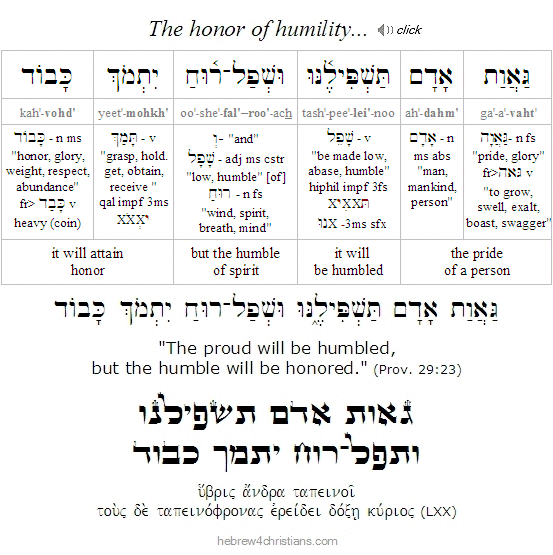 |
 |
Descent into Hell...

[ The following entry concerns this week's Torah reading, parashat Korach. Please read the Torah portion to find your place here... ]
06.25.20 (Tammuz 3, 5780) Is there a blessing that comes from rebellion? Is there anything redeemable about protesting the status quo, objecting to the state of the world, refusing to accept reality, even if that has theological implications? In Fyodor Dostoevsky's great novel the Brothers Karamazov (1879), a character named Ivan takes issue with his devout brother Alyosha's simple and unquestioning faith in God. Even though Ivan would like to believe that this is "the best of all possible worlds," and that God indeed works "all things together for good," he stumbles over the ongoing presence of moral evil in the world. For instance, Ivan insists that nothing could possibly justify the torture of a five year old little girl who was chained to an outhouse and left to die in the Russian winter. He objects that somehow this awful suffering may be part of God's great plan for the ages. The same sort of objection may be expressed regarding the rise of the Nazi Holocaust and other obvious cases of grotesque moral evil in our world. A rebel like Ivan cannot "accept such a universe," even if it is true that one day God will wipe away every tear from the eyes of everyone.
But is there anything to learn here? Can the rebel teach us anything or impart to us any wisdom? Well, for one thing, we observe that the rebel lacks patience and begrudges faith that God is ultimately good. He sees the cup as "half-empty" rather than "half-full." His lack of trust, however, serves as a warning for us. Doubt cries out, "Let's put truth to the test," though the truth eventually swallows up doubt and brings to silence the rebel's protest. This was the solution given in the Book of Job, after all, when God overwhelmed Job from the midst of the whirlwind. As Soren Kierkegaard wrote: "Speak, raise your voice, cry out. God can speak even louder: all the thunder is at His disposal. And thunder is the answer, it is the explanation: firm, trustworthy, primordial. God's answer, even if it smashes man to pieces, is superior to all the chattering of human wisdom."
In my own darkest moments of despair and doubt, I have been jarred back to reality after personally encountering radical evil - either that which arose from within my own heart or that which was committed by others in this world. After all, how can we explain the inexplicable cruelty and madness of human beings - war, murder, rape, abortion, genocide, the breakup of families over selfish desires, and so on - without invoking the category of real moral evil? Yet evil, by itself, is entirely senseless apart from real moral goodness, and therefore the rebel's cry is often the call for transcendental justice... Nonetheless the rebel can't have it both ways; he can't consistently object to the existence of moral evil in the universe apart from appealing to God's holiness and the existence of moral truth. Anarchy is a self-contradiction. It's been said that while the man of faith must must wrestle with the "problem of evil," the faithless man must wrestle with the "problem of goodness."
Often a disease must "declare itself" to be identified, treated, and hopefully cured. Likewise with our struggle with sinful impulses and the disease of our own divided hearts. Sin "forces the hand" of truth by revealing our own ambivalence, our own inner darkness, our own fears, doubts, lusts, and so on. The rise of sinful impulses and rebellious desire serve as warning signals... Indignation, disgust, and even shame are the voice of protest from our higher nature, appealing to the greater truth that we are God's children, called to walk with God, to mirror His character, and to exist on a different level. We see this in the case of Korah, whose rebellion ultimately revealed God's truth, and whose name was later associated with twelve great Psalms in the Scriptures. In one of these Psalms we read how the sons of Korah learned the meaning of the gospel itself by considering God's love despite the sins and failures of the past: "Steadfast love and truth have met; righteousness and peace have kissed" (Psalm 85:10).
חסד־ואמת נפגשׁו
צדק ושׁלום נשׁקו
che'·sed - ve·e·met · neef·ga'·shoo
tze'·dek · ve·sha·lom · na·sha'·koo

"Love and truth have met,
justice and peace have kissed."
(Psalm 85:10)
Download Study Card

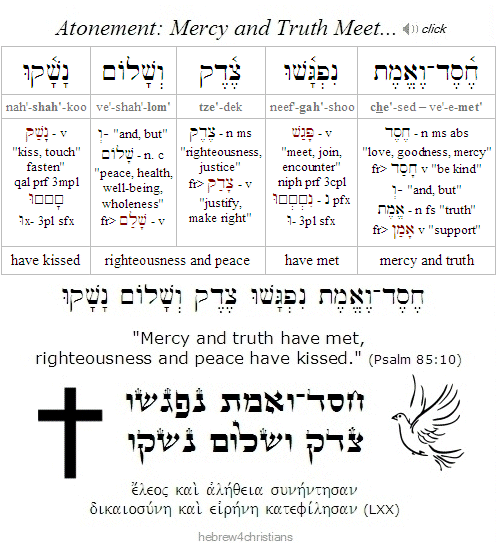
Is there anything to learn from rebellion? Again, only to serve as a warning, and sometimes we need to be warned... The fire pans of the 250 rebels who followed Korah and died in the fire were later hammered and made into part of the altar. God was able to take the very means of their rebellion (i.e., the fire pans) to serve His purposes. Moreover, the "blessed fault" of our sin and rebellion helps us to profoundly understand our great (and ongoing) need for God's grace and forgiveness. Only the rebel who turns to God in teshuvah can understand the deepest expression of God's love...
Korah serves as a warning to us all. He took the hard road, and his followers learned the hard way... He was a "taker," and being a taker means that he was a slave, in bondage to the yetzer hara (evil impulse). Takers see the world as something "out there" to be exploited, consumed, and used. To deal with the "Korah within" each of us - the rebel, the complaining child, etc., - we must first confess the truth about the damage we've done by our own "taking," that is, by making our own selfish demands on others, and so on. To be healed, we have to revisit the depths of our hell to acknowledge and confess the impulse of our own "inner rebel." In the end, only the LORD our God can deliver us from evil.
 |
Testing and Offense...
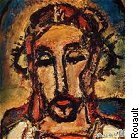
06.25.20 (Tammuz 3, 5780) People today are quick to take offense, made prisoners of their own insecurities... Ironically, the more you seek your own honor, the less you'll find. Turn yourself around; get out of yourself: "Whoever exalts himself will be humbled, and whoever humbles himself will be exalted." "If anyone would be first, he must be servant of all" (Mark 9:35). "And blessed is the man who is not offended" (וְאַשְׁרֵי הָאִישׁ אֲשֶׁר לא־יִכָּשֵׁל).
The devil (and his political advocates in this world) seeks to "divide and conquer" people by emphasizing what makes them different. The evil one creates fear to manipulate and terrify others: he seeks to sow seeds of mistrust, suspicion, and hatred based on fear and ignorance. We must fight the power of the lie by means of the truth of the LORD God Almighty. All people are created be'tzelem Elohim (בְּצֶלֶם אֱלהִים), intended to be image-bearers of the Divine, and each soul will give account for its life – for every careless thought, word, and deed (Matt. 12:36-37). As it is written, "No creature is hidden from his sight, but all are naked and exposed to the eyes of him to whom we must give account" (Heb. 4:13). Refuse, therefore, to take offense over anything - over perceived insults, over attacks on your character, and especially over the "news" (i.e., rumors and propaganda) of this evil world, friends. All things come from the hand of God to test you; to refine what is in your heart (even those who sow division: ). Give up your personal "rights" and surrender yourself to the providential care of your Heavenly Father. But regarding the affairs of this world, understand that the nations are tohu (תהוּ), "confusion and unreality" (Isa. 40:17), and the schemes of worldly men are ultimately doomed (Psalm 1:6). Ein od milvado: Understand that the LORD God Almighty is the great King over all the earth (Psalm 47:7).
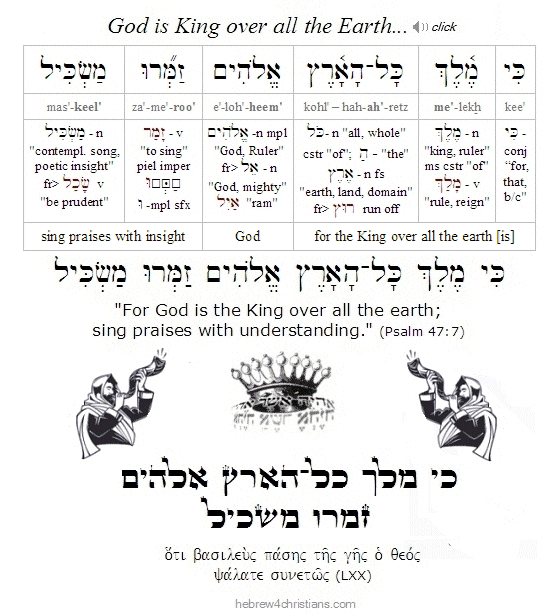 |
 |
Sanctifying the Truth...

06.24.20 (Tammuz 2, 5780) How do we share the message of God with others? How do we reveal the truth of Messiah in this world? In other words, how may the Spirit of God be manifest within us? The Scriptures say first to "sanctify the Messiah" within our hearts and then we will be ready to give a reason for our hope -- though we must do so in humility and reverence before heaven" (1 Pet. 3:15). We sanctify the Lord by choosing to make sacred place for him within our consciousness; we enshrine him and make him beautiful within our affections and actions (Exod. 15:2). When God said to his people, "Let them make for me a sacred place (i.e., mikdash: מִקְדָּשׁ) that I may dwell in their midst," then, he was inviting them to make room within their hearts (בְּתוֹכָם) for His Presence to be revealed (Exod. 25:8).
King David understood this principle: "I have set the LORD always before me..." (Psalm 16:8). In other words we must open our eyes to see; we must humble ourselves to believe; and we must open our hearts before the greatness of God. This is the first step, as Yeshua taught us: Avinu shebashamayim, yitkadesh shemekha - "Our Father in heaven, let your Name be sanctified" (Matt. 6:9). As we sanctify the Lord we bear witness of the truth of Reality, and the Spirit of God will empower us to living signs of the Divine Presence. "But the fruit of the Spirit (פְּרִי הָרוּחַ) is love, joy, peace, patience, kindness... (Gal. 5:22-23).
"Know therefore this day and lay it to your heart, that the LORD is God in heaven above and on the earth beneath; there is no other" (Deut. 4:39). Note that the phrase "lay it to your heart" in this verse may better be rendered as "return to your heart" (וַהֲשֵׁבתָ אֶל־לְבָבֶךָ), suggesting that the truth of the LORD is found there – within the heart that truly seeks him (Jer. 29:13). Hashivenu! In other words, the truth is found in the heart's seeking for the LORD and His love. Know this truth today... "The most important part of teaching is to teach what it is to know," that is, to know "in your heart."
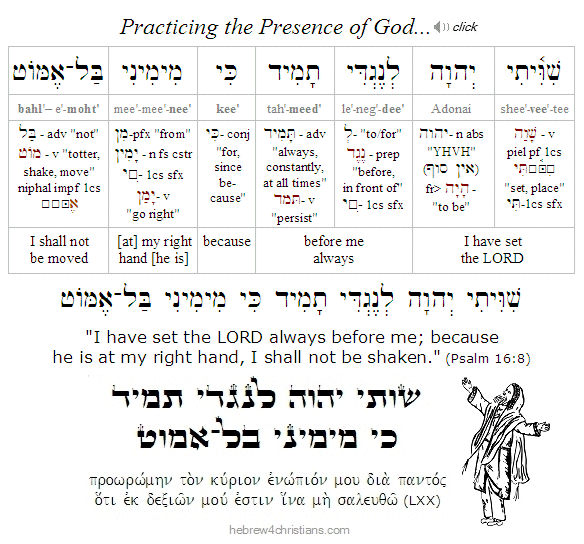 |
Note: For more on this subject see the article: "The Fruit of the Spirit."
The Aim of Torah...
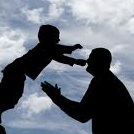
06.24.20 (Tammuz 2, 5780) "Blessed is the person who does not heed the counsel of the wicked, nor take the path of sinners, nor join the company of the insolent; but his delight is the Torah of the LORD (תּוֹרת יהוה), and in his Torah he meditates day and night" (Psalm 1:1-2). Note that the Hebrew word "torah" (תּוֹרָה), often confusingly translated as "law," comes from a verb (יָרָה) that means to aim or direct something to its goal. Torah therefore is a general term suggesting direction, focus, volition, training, instruction, or guidance as imparted by a teacher. Now since the Torah of the LORD is comprised of sacred words spoken to guide our souls, its synonym is rightly called the Word of God (דּבר יהוה), the Agency that reveals heavenly truth to the heart of faith, as it says: "The Word of God is living and active, sharper than any two-edged sword, piercing to the division of soul and of spirit, of joints and of marrow, and discerning the thoughts and intentions of the heart" (Heb. 4:12). In other words the Torah of the LORD "cuts to the bone," past all the outer layers to connect with the inmost of who and what we are. Torah is therefore not something abstract but intensely personal; its message penetrates and transforms the listening heart, directing it to understand God's passion that is behind the words. "My child, keep your father's commandment (i.e., mitzvah, "connection"), and do not forsake your mother's instruction (i.e., Torah, guidance); bind them over your heart; fasten them around your neck. When you walk about, they will guide you; when you lie down, they will watch over you; when you wake up, they will talk to you. For the commandment (mitzvah) is like a lamp, instruction (Torah) is like a light, and rebukes of discipline (musar) are like the road leading to life" (Prov. 6:20-23). Dear LORD, help us to love your Torah and meditate upon it all day long (Psalm 119:97).
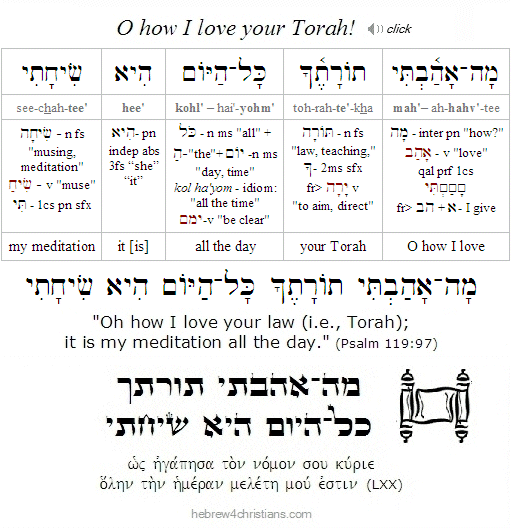 |
 |
The Love of Truth...
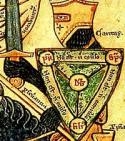
06.24.20 (Tammuz 2, 5780) Christian (and Jewish) theology insists that truth matters, and knowing the truth about God is absolutely essential for life itself. Nothing is more important. Nothing is more vital. "This is eternal life (חַיֵּי עוֹלָם), that they may know you, the only true God (אֶל־אֱמֶת), and Yeshua the Messiah (יֵשׁוּעַ הַמָּשִׁיחַ) whom you have sent (John 17:3). The truth sets us free; it is the unbreakable seal that bears witness of reality. In the Gospel of John it is recorded that Yeshua said, "I am the way, the truth, and the life" (i.e., ᾽Εγώ εἰμι ἡ ὁδὸς καὶ ἡ ἀλήθεια καὶ ἡ ζωή). The Greek word translated "truth" in this verse is aletheia (ἀλήθεια), a compound word formed from an alpha prefix (α-) meaning "not," and lethei (λήθη), meaning "forgetfulness." (In Greek mythology, the "waters of Lethe" induced a state of oblivion or forgetfulness.) Truth is therefore a kind of "remembering" something forgotten, or a recollecting of what is essentially real. Etymologically, the word aletheia suggests that truth is also "unforgettable" (i.e., not lethei), that is, it has its own inherent and irresistible "witness" to reality. In that sense light is a metaphor for truth: "The light shines in the darkness, and the darkness has not overcome it" (John 1:5). There can be no truth apart from moral reality. People may lie to themselves, but ultimately truth has the final word.
Greek scholars note that the word lethei itself is derived from the verb lanthano (λανθάνω), which means "to be hidden," so the general idea is that a-letheia (i.e., truth) is non-concealment, non-hiddenness, or (put positively) revelation or disclosure. Thus the word of Yeshua - His message, logos (λόγος), revelation, and presence - is both "unforgettable" and irrepressible. Yeshua is the Unforgettable One that has been manifest as the express Word of God (דְּבַר הָאֱלהִים). Yeshua is the Light of the world (אוֹר הָעוֹלָם) and the one who gives us the "light of life" (John 8:12). Though God's message can be suppressed by evil and darkened thinking, the truth is self-evident and intuitively certain (see Rom. 1:18-21).
We have a moral imperative, given by God Himself, to receive the truth and to live according to the nature of spiritual reality. Those who reject or suppress the truth, however, are responsible for their actions, as it is written, "No one who practices deceit shall dwell in my house; no one who utters lies shall stand before my eyes" (Psalm 101:7).
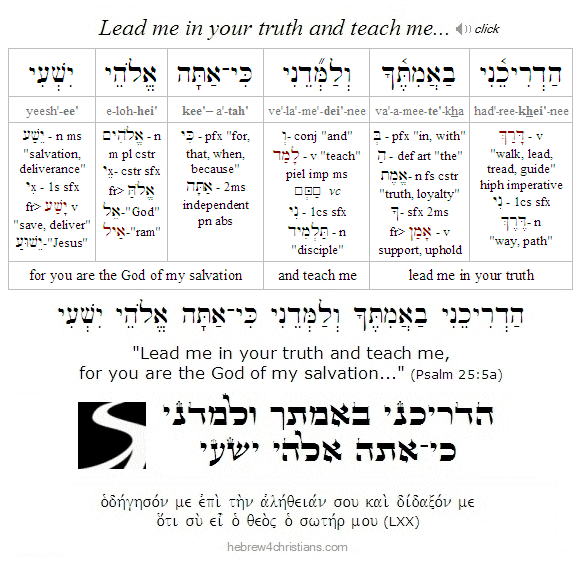 |
 |
The Judgment of Korah...

[ The following entry concerns this week's Torah reading, parashat Korach... ]
06.24.20 (Tammuz 2, 5780) "And the earth opened its mouth and swallowed Korach up..." The dreadful example Korah is a warning for us not to transgress what God has ordained lest we likewise incur severe judgment... In this connection let me remind you that the terms of the New Covenant (בְּרִית חֲדָשָׁה) are non-negotiable, and those who attempt to come to God apart from the cross - that is, apart from the shed blood of Messiah for atonement - likewise encroach upon the Divine Presence. Indeed, in the Book of Galatians, Paul invoked a divine curse on anyone who denied that the work of Yeshua is entirely sufficient for the trusting sinner to be justified and declared righteous by God (Gal. 1:8-9). Those who therefore claim that "something more" is needed than the finished work of Messiah (e.g., circumcision, law-keeping, religious observances, mystical experiences, etc.) remain under the curse (חֵרֶם) demanded by the law (Gal. 3:10; John 3:36). This is not a mere difference of opinion regarding how people are "justified" before God, since Paul goes on to make the case that those who teach otherwise are not truly saved -- even if they should profess that Yeshua is the true Messiah and Savior of Israel! Therefore Messianic teachers who falsely claim that Christians must "follow the law" to be made right with God are liable to the curse of the law. These people are not simply misinformed; according to Paul and the witness of the Holy Spirit, they are actually lost souls. "Beware of the leaven of the Pharisees," chaverim...
It's been wisely said that we must "unlearn" a lot during the days of our sojourn in this world, and that is especially true for people who still assume that they know something about life. "If anyone imagines that he knows something, he does not yet know as he needs to know" (1 Cor. 8:2). And it is also true, I'm afraid, for religious people, that is, for those who regard spirituality as a litany of "do's and don'ts" or a recipe of rituals rather than as receiving the miracle of new life given to us by the miracle of God.
"Anyone who has set aside the law of Moses (תּוֹרַת משֶׁה) dies without mercy on the evidence of two or three witnesses. How much worse punishment, do you think, will be deserved by the one who has trampled underfoot the Son of God, and has profaned the blood of the covenant (דַּם הַבְּרִית) by which he was sanctified, and has outraged the Spirit of grace?" - Heb. 10:28-29
Every Thought Captive...
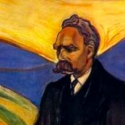
[ "For the weapons of our warfare are not of the flesh but have divine power to destroy strongholds. We destroy arguments and every lofty opinion raised against the knowledge of God, and take every thought captive to obey the Messiah" (2 Cor. 10:5). ]
06.24.20 (Tammuz 2, 5780) Our stupefied "postmodern" age exhibits a devout faith in the values of "tolerance" and "open-mindedness," though the way these words are used barely conceals a cynical indifference and even hostility to the view that objective truth – that is, a metaphysical, moral and spiritual order to reality – is transcendentally knowable and logically necessary. Many so-called intellectuals of our time claim that all worldviews and religious perspectives "should be" (ahem) deconstructed, qualified, minimized, homogenized, and reduced to equal (in)significance; and, since there is no impartial way to arbitrate such pluralistic convictions about reality, all respective truth claims "should be" understood as relative, subjective, and a form of political exploitation or manipulation.
Of course this epistemologically skeptical view is "magically" immune from its own criticism, since to know that skepticism is true is to transcendentally claim to know something true about reality, and yet this reductio ad absurdum doesn't seem to bother the so-called "intellectuals" of our day. Indeed, postmodern thought often extols "tolerance" as the preeminent intellectual value, which essentially means it commends apathy and cowardice as the guiding intellectual virtues of thinking. The so-called "tolerant" person is functionally a person without conviction, that is, a coward who is more afraid of being wrong than risking commitment for his or her beliefs. It is intuitively obvious, however, that the human mind is "hard-wired" to make logical inferences and to draw conclusions, and the desire to "suspend" the use of reason (by absurdly arguing that reason itself is a tool of oppression) really amounts to opting out of serious thought altogether. Despite the squawking rhetoric and empty bluster, the postmodern "intellectual" is on the wrong side of truth and reality, just as the its parasitical use of words such as "justice," "human rights," "bias," "entitlement," and so on, tacitly appeal to transcendental moral categories that provide the semantic and logical ground for the idea of truth itself.
"Those who do not love truth excuse themselves on the grounds that it is disputed and that very many people deny it. Thus their error is solely due to the fact that they neither love truth nor charity, and so they have no excuse" (Pascal, Pensees). Many people today opt out of the mandate to search for (and to live by) the truth, because, they claim, not everybody agrees on what the truth is, and therefore they are "excused" from the duty... Such people want to be "innocent" of taking sides in the issue, pretending to be "neutral" parties in the debate, and thereby they suppress their judgment rather than risk a commitment. Of course this amounts to the decision not to decide and therefore expresses an evasion from moral and spiritual reality. Every soul walks in the valley of decision, friends.
 |
The Light of Faith...

06.24.20 (Tammuz 2, 5780) Instead of regarding the Bible as a "Book of Answers" for our questions, it is worthwhile to think of it as a "Book of Questions" for our answers. As we listen, God questions us so that we can know him by means of the dialog within our hearts. As any good teacher knows, when a student earnestly wrestles with a question he learns more than if he were given a straightforward answer. Similarly, the Lord gives us permission to be without answers so that we will be free to seek, to struggle, and to "own" what we come to understand through our relationship with him... That way our learning will be real, substantive, and born from the urgency our own inner need. Indeed, God's very first question to man is always, ayekah: "Where are you?" (Gen. 3:9), which appeals for us to acknowledge how we hide from the truth. "Where are you?" is the poignant call of the Seeking Father for his lost child, and the question only becomes "our own" when we are willing to look at how we've come to be at this place in our lives. God's question to our heart is meant to lead us out of hiding to respond to his loving call...
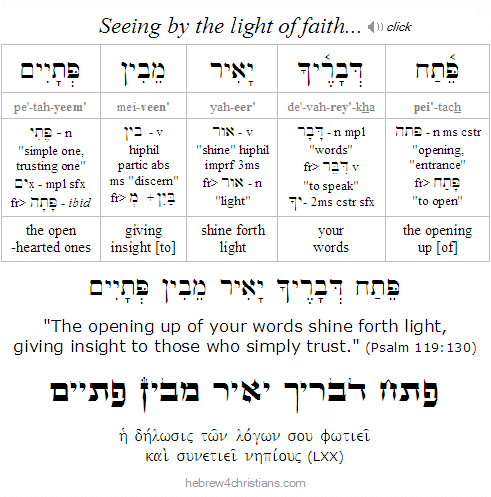 |
Soren Kierkegaard once lamented there are many people who arrive at conclusions in much the way schoolboys do: "they cheat their teachers by copying the answer book without having worked the problem out themselves." This is part of the mob mentality within Christendom. We can parrot creedal formulas or recite catechisms, yet in the end it is our own responsibility to make an authentic faith commitment. Thomas Aquinas' most significant work was his Summa theologiae or 'Summary of Theology,' a massive book that attempted to systematize all of Christian theology. He worked on it from 1266 through 1273, but when he was nearly finished, he underwent an experience so intense that, as he himself explained, everything he had written "seemed like straw." He thereafter gave up writing about theology after he encountered the Reality itself.
Everything is inherently mysterious, since everything ultimately expresses the inscrutable will and decrees of God.... Ask yourself with earnestness of heart: Where do I come from? Who am I? Where am I going? For what reason was I created? The first step is to wonder, to ask the searching questions, and to seek God's wisdom... The LORD is faithful and will reveal truth to the heart that seeks.. It is too easy to be preoccupied with everyday concerns and to miss the marvel and sheer wonder of existence itself. If you will approach these questions with humility and reverence, you will be filled with wonder, your heart will be filled with greater fervor, and you will hunger more than ever for God's Presence.
 |
The Envy of Korah...

[ The following concerns this week's Torah reading, parashat Korach. Please read the Torah portion to "find your place" here. ]
06.23.20 (Tammuz 1, 5780) Our Torah this week begins, "And Korah took" (וַיִּקַּח קרַח), which immediately suggests something about the character of the man. Though he was wealthy, esteemed among his tribe, and honored with the task of caring for the Ark of the Covenant, none of this was enough for Korah... There was an insatiable hunger, a "black hole" in his soul, an unrelenting envy, that drove him to madness and self-destruction. Korah was imprisoned by his own jealousy, arrogance, and spite. When he compared himself to Moses and Aaron, he felt overlooked, deprived, and therefore he justified in his desire to be honored. As an archetypal figure, Korach warns us against being swallowed up with egotistical envy or seeking the praises of men (Matt. 23:2-7).
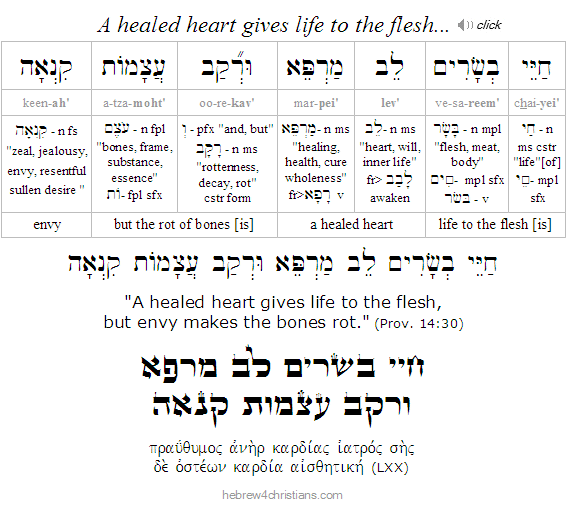 |
In the Kingdom of heaven, worldly success is sheer delusion. There are open and hidden riches. There is a pearl of great price, a treasure "hidden in a field." These riches are regarded as "fool's gold" to those who love this world and trust only in the realm of the phenomenal, but to those who trust in the LORD, they represent all that the heart needs...
"And when the other disciples heard [that James and John sought prominence], they were indignant" (Mark 10:41). But why were they aggrieved except that they sought glory for themselves? The faults we see in others usually mirror our own... If your brother offends you, test your own heart to see where you share his fault... Or do you seek reward for your service to God alone? Do you request a "chief seat" at His table? Any "reward" in the truest sense must include empathy and service for the benefit of others. Heavenly rewards are never gained through self-promotion but through losing yourself in the father's business (Luke 17:10). We don't make old wine from new... What good is any "reward," after all, if it were gained at the expense of your brother or sister? Is such praiseworthy? We can only look past ourselves and see others when we understand that we are in as much need of God's mercy as they are... It is natural enough to want a blessing, but check your heart: the Apostle Paul was willing to himself be accursed for the sake of the well-being and blessing of his own brothers (Rom. 9:3).
The son of Zoma said: "Who is wise? He who learns from all people, as it is said: 'From all those who taught me I gained understanding' (Psalm 119:99). Who is strong? He who conquers his evil inclination, as it is said: 'Better is one slow to anger than a strong man, and one who rules over his spirit than a conqueror of a city' (Prov. 16:32). Who is rich? He who is satisfied with his lot, as it is said: 'When you eat the toil of your hands you are fortunate and it is good for you' (Psalm 128:2). 'You are fortunate' - in this world; 'and it is good for you' - in the World to Come. Who is honored? He who honors others, as it is said: 'For those who honor Me will I honor, and those who scorn Me will be degraded'" (1 Sam. 2:30). – Avot 4:1
Note: For more on this topic, see the article, "The Madness of Korah."
Finding Inner Peace...

06.23.20 (Tammuz 1, 5780) The Hebrew word for peace is shalom (שׁלוֹם), a word that means "wholeness," "completeness," "well-being," and "healing" -- not merely the absence of strife. People often fight with others because they are not made whole within themselves. Just as we cannot really love others until we first learn to love ourselves, so we cannot have peace with others until we first find our own inner healing and peace. Often this means learning to forgive both ourselves and others (including God) so that we can let go of whatever troubles our heart. As we accept ourselves and let go of our fear, we learn to accept others and give up the need to defend ourselves. As Yeshua said, "Blessed (happy) are those who love peace - for they shall be called the children of God" (Matt. 5:9).
אַשְׁרֵי עשֵׂי שָׁלוֹם
כִּי בְּנֵי־אֱלהִים יִקָּרְאוּ
ash·rei · o·sei · sha·lom
kee · be·nei · E·lo·heem · yeek·ka·re·oo

"Blessed are those who make peace,
for they shall be called the children of God."
(Matt. 5:9)

In most English translations we read, "Blessed are the peacemakers, for they shall be called the children of God." Note, however, that the Greek word translated as "peacemakers" (εἰρηνοποιοί) can also mean "those who love peace," that is, those who long for peace and pursue it (see Psalm 34:14). In Jewish ethical teaching, seeking peace is called redifat shalom (רְדִיפַת שָׁלוֹם) and is considered a primary heart quality. Rabbi Hillel is attributed as saying, "Be of the disciples of Aaron, loving peace and pursuing peace" (Pirke Avot 1:2). Before we can hope to make peace among others, however, we must first know inner peace. If we threaten this peace, we rise up against God, and thereby undermine his will in our lives. Those who love peace will be called the children of God.
Peace is the foundation of God's great work of deliverance in our lives. Yeshua is called Sar Shalom (שַׂר־שָׁלוֹם), the "Prince of Peace" (Isa. 9:6), since salvation brings reconciliation (i.e., peace) between God and man (Rom. 5:1) and sets us free from the fear of condemnation. When we walk in the peace of God (שְׁלוֹם הָאֱלהִים) that "surpasses all our understanding," we are empowered to be a blessing to others in your life. "The fruit of righteousness is sown in peace by those who make peace" (James 3:18).
We understand the Torah commandment, "Thou shalt not steal" (לא תִּגְנב) to imply more than being forbidden to steal from others, but also to include the prohibition against stealing from ourselves by failing to practice inner honesty. When we lie to ourselves, we "steal" from the truth, we rationalize what is unjust, and we thereby rob from ourselves the great blessing of inner peace. Indeed, the traditional sages say that every sin essentially constitutes theft from God. For instance, in his discussion of teshuvah (repentance), Maimonides notes that confession of sin is connected with theft (Num. 5:7). Rabbi Yitzchak of Gur asks, "Inasmuch as there are 365 prohibitions in Torah, why does Torah choose to specify the need to confess sin in regard to theft?" He goes on to answer by explaining that if someone borrows something for a specific use, he is not permitted to use it for any other purpose other than that specified, lest he abuse the privilege and "steal the use" of the item. Likewise, God lends the soul the ability to speak, hear, see, and so on, for the sake of living a godly life. If we abuse these things, for example, by using our lips and tongue to speak evil about another, we are using our faculties for a purpose other than God intended, and that constitutes theft. Therefore every sin is a form of theft, an act of "breaking faith with the LORD," and that is why Torah mentions confession of sin in connection with it.
 |
Faithful Afflictions...

06.22.20 (Sivan 30, 5780) When we suffer in this life - and all of us will - we should never despair and conclude that life is no use living anymore. Perhaps more than anything else suffering raises the question of our faith. Do you really believe that God is working all things for your good? Is your mind settled to trust in God's plan for your life - even if that is presently incomprehensible to you?
We are being educated for eternity, and one of the chief lessons concerns the breaking of our arrogance (ga'avah). When we surrender our lives to God's care, trusting in Him alone for everything we need, we forsake our demand to understand -- i.e., our pride. This is a great blessing, of course, since the Lord resists the proud but gives grace to the humble (Prov. 3:34; James 4:6; 1 Pet. 5:2). Humility draws us near to God. Sometimes, however, this lesson is learned when facing life-threatening illness and death. A sage was once told by a doctor, "There is really nothing else we can do." Upon hearing this, the sage smiled and said, "This is what I was preparing for my whole life." Amen. Rightly understood, theology is the practice of death, since it prepares the heart for what is eternally abiding and everlastingly real.
God allows sickness into our lives to teach us to trust in him. Afflictions are "yissurim b'ahavah" - troubles ordained by love. Sickness humbles us and reveals our need for healing -- not just physical healing but healing from the spiritual sickness of our pride...
Where it says, "You shall love the Lord your God with all your soul," that includes when he takes your soul. That's the meaning of the Kaddish, after all - thanking God for all things, including our own mortification. Followers of Yeshua affirm that physical death is a transition from the temporal to the realm of eternity. As Yeshua promised us: "I am the resurrection and the life. The one who believes in me will live even if he dies, and the one who lives and believes in me will never die" (John 11:25-26).
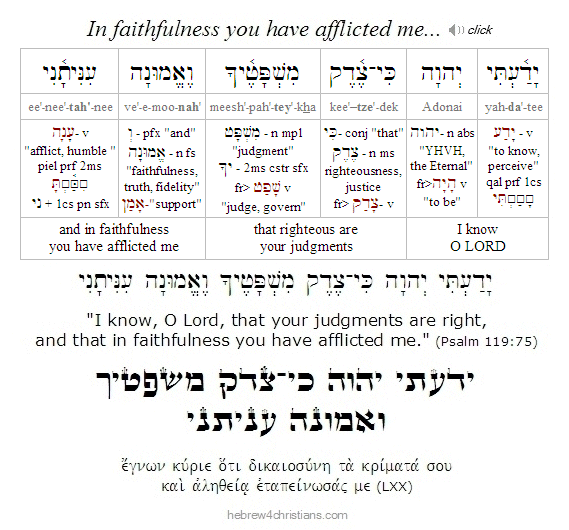 |
 |
Freedom of Humility...

06.22.20 (Sivan 30, 5780) Those conscious of their inner poverty, those who mourn over their sinful condition, and are afflicted with themselves, can let go of the need to "manage appearances," to be in control, or to seek validation from others, and therefore they are set free to surrender their lives to God's care. They "flow" with the Father's will as a "gentle breeze," no longer resisting or striving, but simply trusting in God's care. When they are wronged, they seek neither revenge nor vindication, but only restoration (1 Pet. 2:23). Paradoxically, it takes strength to be genuinely "lowly of heart," but such is found in the Spirit of God (Zech. 4:6). Indeed, the Spirit leads us to our inheritance: "the meek shall inherit the land and delight themselves in abundant peace" (Psalm 37:11).
וענוים יירשׁו־ארץ
והתענגו על־רב שׁלום
va·a·na·veem · yeer·shoo - a'·retz
ve·heet·a·ne·goo · al-rohv · sha·lom

"But the meek shall inherit the land
and delight themselves in abundant peace."
(Psalm 37:11)

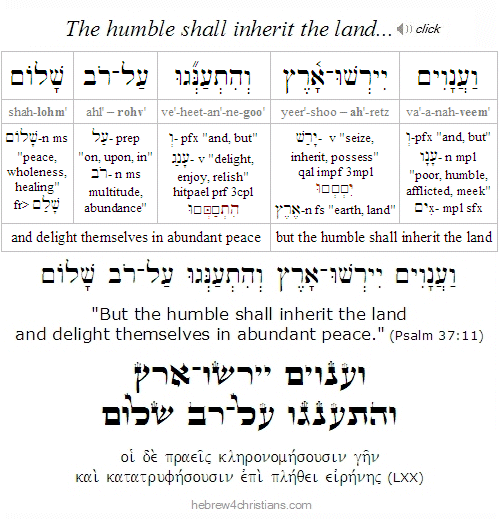
Yeshua quoted this verse when he said, "Blessed are the meek, for they shall inherit the earth" (Matt. 5:5). The Koine Greek word translated "meek" is πραεις (or πραος), perhaps better rendered as humble or lowly. In the Hebrew text of Psalm 37, the word is anaveem (עֲנָוִים), usually translated as "lowly ones" (anavah is the Hebrew word for humility). This word does not suggest weakness, but rather the recognition of one's proper place in the universe before God. It is not self-effacing but rather reality-focused. The meek inherit the earth because they are grounded in the truth of reality...
God "opposes the proud but gives grace to the humble" (James 4:6). The LORD our God dwells with those "of a contrite and lowly spirit, to revive the spirit of the lowly, and to revive the heart of the contrite" (Isa. 57:15). True greatness is found in outside of the self, beyond the instincts of the carnal ego. Those who seek to exalt themselves and to "gain the world" do not understand that the very reason for their life is to be sacrificed for the sake of love. Obeying God's call to love is not a burden, but rather sets the heart free. As Yeshua said, "Come to me, all who labor and are heavy laden, and I will give you rest. Take my yoke upon you, and learn from me, for I am gentle and lowly in heart, and you will find rest for your souls. For my yoke is easy, and my burden is light" (Matt. 11:28-30).
In the Jewish tradition, humility is among the greatest of the virtues, as its opposite, pride (i.e., ga'avah: גַּאֲוָה), is among the worst of the vices. God hates the proud of countenance (Prov. 6:16-17). Therefore Moses is described as the most humble of men: "Now the man Moses was very humble, above all the men that were on the face of the earth" (Num. 12:3), and likewise the great patriarch Abraham confessed to God: "Behold now, I have taken upon me to speak unto the Lord, who am but dust and ashes (עָפָר וָאֵפֶר)" (Gen. 18:27).
"He must increase, but I must decrease" (John 3:30). Our aim should not be personal greatness, but humility. Love personal obscurity; rejoice that you are unnoticed by the world and that you are "poor in spirit." Be happy that you are a stranger and sojourner in this world. How blessed are you when God alone is your chief concern!
 |
 |
The Projection of Korah...
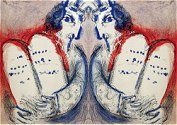
06.22.20 (Sivan 30, 5780) In our Torah reading this week (i.e., parashat Korach), Moses' cousin Korah audaciously accused Moses of self-aggrandizement and superiority by saying, "Why do you exalt yourself above the assembly of the LORD? ... Is it a small thing that you have brought us up out of a land flowing with milk and honey to kill us in the desert, that you also make yourself a prince over us?" (Num. 16:3,13). The Talmud comments: "One who seeks to disqualify another projects his own defects upon him." Korah's own self-exaltation and vanity led him to suppose that Moses was likewise proud and vain. His envy so twisted his perspective that he saw good as bad and bad as good. For him Egypt was the land "flowing with milk and honey" and Moses - not Pharaoh - was the real tyrant! In this connection the sages have said that other people serve as mirrors, and the defects we see in them reflect our own. Korah needed to see that his envy of Moses was rooted in fear, and that healing would come if he would let go and trust that God was in control of his life.
We can learn from the self-deception of Korah -- as well as his terrible end... "As you judge another you condemn yourself, for you that judge do the same things" (Rom. 2:1). How you react to another person reveals what is within your own heart, and this provides the opportunity to find healing by doing teshuvah and extending compassion to yourself. When you condemn another you are hurting yourself, after all. It is not a matter of factual truth as much as it is of the truth of hope and love. As we forgive others, so we find our own forgiveness (Luke 6:37), but if we insist on our rights, we find ourselves in hell... Fire offered falsely will be answered by the fire of God's judgment.
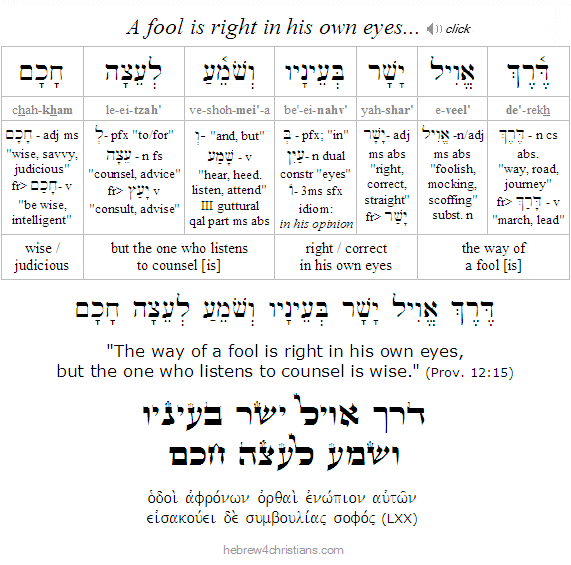 |
 |
The Rebellion of Korah (פרשת קורח)

[ Happy Father's Day to all you dads out there... You are needed! We love you.... ]
06.21.20 (Sivan 29, 5780) Last week's Torah portion (Shelach Lekha) told the tragic story about the "sin of the spies" (חטא המרגלים) and the divine decree that the generation rescued from Egypt was sentenced to die in the exile of the desert. In this week's portion (parashat Korach), the hard truth of their condition began to sink in, and the people bemoaned their fate and rebelled further by attempting to overthrow God's designated leadership and return to Egypt. This rebellion was instigated and organized by Moses' cousin Korach, who – along with a band of co-conspirators – was swiftly judged and put to death, thereby vindicating the Aaronic priesthood and Moses' leadership of Israel.
Korach was the cousin of Moses and a well-respected Kohathite who was honored to be one of the carriers of the Holy Ark (ארון הברית). He was a wealthy man of influence - a nassi (prince) of the people. Despite all this privilege, however, Korach rationalized that he should be the head of the Kohathite clan (instead of his cousin Elzaphan), since he was the firstborn of Kohath's second son, whereas Elzaphan was not even a firstborn son. Indeed, because he felt slighted by Moses' choice, Korach went even further and brazenly questioned whether the office of the High Priest should not have been given to him – rather than to Aaron.
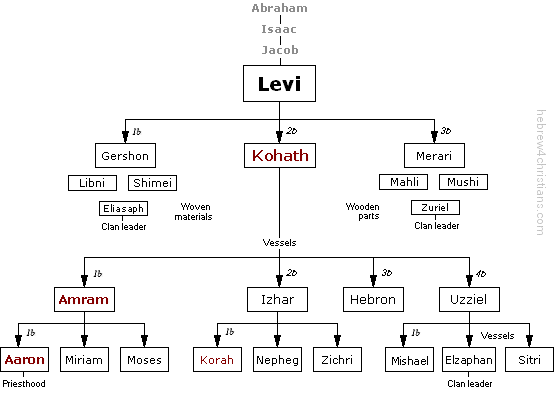 |
Korach's co-conspirators were two brothers named Dathan and Abiram from the tribe of Reuben, Israel's firstborn son. Together, they put together a force of 250 men to confront Moses and to challenge his exclusive claim to leadership: "You have gone too far! For all in the congregation are holy, every one of them, and the LORD is among them. Why then do you exalt yourselves above the assembly of the LORD?"
In response to their challenge, Moses proposed that Korach and his followers bring firepans to offer incense at the Tabernacle to determine whether they were indeed chosen to serve as priests. The following morning, when Korach and his 250 followers assembled at the gate of the Tabernacle to offer incense, God threatened to destroy them all instantly. Moses begged God not to destroy all the people, but only the rebels. He then warned the congregation to stand clear of the dwellings of Korach, Dathan, and Abiram. The earth then opened up and swallowed them alive, and a fire consumed the 250 men who illegitimately offered the incense...
Korach's rebellion introduced outright mutiny and chaos within the leadership of the camp that brought swift and terrible rebuke from the LORD. Nevertheless, the very next day the entire congregation of Israel audaciously began to accuse Moses and Aaron, saying: "You have killed the people of the Lord." When the people looked toward the Tabernacle, however, the Glory of the LORD appeared, where God descended to tell Moses and Aaron that he was going to destroy the Israelites for their treason. Despite Moses and Aaron's fervent intercession, however, a deadly plague broke out among the people. Moses then instructed Aaron to take his firepan with incense and to bring it in the midst of the congregation to make atonement for them. Aaron did so, "and he stood between the dead and the living; and the plague was stayed." The Torah tells us that 14,700 Israelites died because of the plague, not including the deaths of those involved in the rebellion of Korach.
As a final test to vindicate Aaron as God's chosen priest, each of the twelve tribal heads of Israel, as well as Aaron himself, were instructed to bring their staffs to Moses. Moses then inscribed their names on each staff and brought them into the sanctuary before the ark of the testimony. "And the staff of the man whom I choose shall sprout. Thus I will make to cease from me the grumblings of the people of Israel, which they grumble against you." The following day Moses went into the Tabernacle and "behold, the staff of Aaron for the house of Levi had sprouted and put forth buds and produced blossoms, and it bore ripe almonds." He then brought out all the staffs and gave them back to each of the tribal leaders. God then told Moses to return Aaron's staff to the Tabernacle as a testimony for generations to come.
The Gift of the Sabbath...

06.19.20 (Sivan 27, 5780) "Remember the Sabbath day to keep it sacred" (Exod. 20:8). The Sabbath is a gift from God, a day of "double portion" of manna, and a time to let go of our daily concerns and surrender to God's care for us.... If the Almighty, blessed be He, rested on the seventh day, how much more should we rest and find comfort from our weariness? Yeshua, who is "the Lord of the Sabbath" (אדון השׁבת) invites you to enter into his secret place and find strength: "Come to me, all who labor and are heavy laden, and I will give you rest. Take my yoke on you and learn from me, because I am gentle and humble in heart, and you will find rest for your souls" (Matt. 11:28-29). Yeshua stands at the door and knocks. Repeat this inwardly until it comes to life within your heart: "Come unto me, and I will give you rest... learn from me and I will give you my peace."
Sabbath is a set apart time to reconnect with what really matters... and therefore it is a form of worship. "Sabbath peace" (שלום שבת) is wholeness, healing, and a pleasure - a step out of the profane world into the sacred. We enjoy the Sabbath - we call it a "delight" (ענג) - by choosing to make a place for the holy in our lives (Isa. 58:13). We reflect on the gift of Torah, the blessing of Messiah, and engage in life-giving activities (Mark 2:27). We avoid bringing up topics that sadden or "draw tears" - we flee from fret, regret, and anger.
The Sabbath teaches us the blessedness of "being" apart from "doing"; it reconnects us with the inherent sanctity of life itself... It was after God created the world and all that was in it that he sanctified time (Gen. 2:3). God himself "created the world to do" (ברא אלהים לעשׂות) but made time to celebrate his work. The Sabbath gives us a transcendental perspective - seeing time as a blessing in and of itself - apart from the "doing" of things in our lives.
Ultimately Sabbath is a matter of the heart - resting in the work of God given on our behalf - both by honoring the blessing of our existence itself and also our deliverance from slavery to sin (Exod. 20:11; Deut. 5:15). Knowing who we are is the crux of the matter. The particular "rules" of the Sabbath day, however, for instance, what we can or can't do, must serve that greater end: "the Sabbath was made for man, and not man for the Sabbath" (Mark 2:27). That was the great error of the Pharisees of Yeshua's day -- "fencing off" the Sabbath make it a prison rather than a palace. No, we celebrate the Sabbath and call it a delight; we reconnect with our inner heart and seek deeper communion with God. Because of Yeshua, "there remains a Sabbath rest for the people of God" (Heb. 4:9). Amen, and Shabbat Shalom!
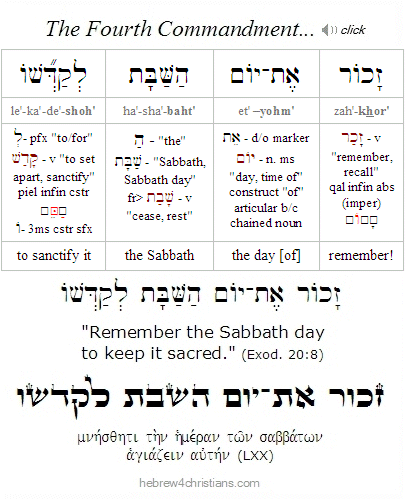 |
Note: Some people worry about what day should be set apart as the Sabbath. Of course every day is a "Sabbath" for those trusting in Yeshua, and we have a certain liberty under the guidance of the LORD of the Sabbath as well as the counsel of the Apostle Paul (Rom. 14:5-8). Moreover, Yeshua told those who criticized him for "working" on the Sabbath that the Torah justified the work of the priests in their service: "have you not read in the Law how on the Sabbath the priests in the temple profane the Sabbath and are guiltless?" (Matt. 12:5). As priests of the new covenant given in Messiah (Rev. 1:6; 1 Pet. 2:5, 2:9; Deut. 7:6) we also can work on the Sabbath if it is necessary for the preservation of life or for promoting healing and blessing to others. The important point is to understand that the Sabbath is a God-given invitation to set apart some time each week (or each day!) to reconnect with what is real...
A special word of thanks to all friends of Hebrew for Christians. We pray for you regularly and are grateful to the Lord for your connection with us. Shalom and love and good and blessing and peace and healing and life and joy be yours always in our beloved Messiah!
 |
Life Worth Living...
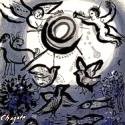
06.19.20 (Sivan 27, 5780) It is common to encounter people today who refuse to believe that God exists, not because there are compelling reasons to do so, but simply because they do not want God to exist, and therefore they willfully suppress the intuitions of logic, the apprehension of value, the awareness of glory in creation, and the sentiments of conscience, since all these experiences point to the realm of moral and spiritual reality. As it is stated in our Scriptures: "For that which may be known of God is manifest in them; for God has revealed it to them. For the invisible attributes of him from the creation of the world are clearly seen, being understood by the things that are made, even his eternal power and divinity; so that they are without excuse" (Rom. 1:19-20). Indeed, atheists and agnostics dogmatically affirm that there is no transcendental "moral law" or Moral Lawgiver before whom all moral agents will give account, again, not because reason indicates that this is so, but on the contrary, merely because they wish to be "free" to do whatever they want and to pursue their own selfish desires. In this regard the atheist merely chooses to close his mind because he does not want to see. As Rabbi Israel ben Eliezer (בש"ט) once said, "The world is full of wonders and miracles but man takes his little hand and covers his eyes and sees nothing." Indeed the deification of the self makes the soul a stranger to God and blind to moral and spiritual reality. The modern man will split hairs and fastidiously object to questions of truth and meaning all for the sake of living life as he pleases, on his own terms, without recognizing any moral authority beyond himself....
Socrates famously said that "the unexamined life is not worth living," which of course implies that a life worth living is discovered by asking questions, searching for meaning, pursuing truth, celebrating wonder, and living with integrity. "Seek the LORD while He may be found..." ( Contrary to the ideals of worldly culture, the meaning of life is not found in the pursuit of personal happiness (or pleasure) but rather in the pursuit of truth and meaning. Apathy about such matters is a symptom of lifelessness: it is to be spiritually dead while seemingly "alive." Indifferent people are likened to those who go through the outward motions of life without ever making inner traction with it... The righteous, even in death, are called "living"; the wicked, even while alive, are called "dead" (Berachot 18a).
"Truth is so obscure in these times, and falsehood so established, that, unless
we love the truth, we cannot know it." - Blaise Pascal
Why is there something rather than nothing at all? Such a fundamental question strikes at the heart of our assumptions and habitual ways of thinking, jolting us from our sleepy "cave-like" consciousness to face the glaring light of the sun... The natural instinct is to turn away, to pull the covers over our head, and try to go back to sleep. However if pressed, the simple question "why" irresistibly leads to a concatenation of explanations and a regress of causes that quickly points to metaphysical properties and realities. For instance, if a child asks her parent, "Why do people die?" the parent might answer, "Because people get sick or injured or they might grow very old." "But why do people have to grow old?" the child continues. "Because they are born, live for awhile, and eventually pass away... All things change, and that means they come into being, exist for a while, and then pass away. Look around you; everything you see – the people, the animals, the plants, rocks, mountains and seas, the earth and sky, the stars and galaxies, and indeed the whole universe – is constantly changing, coming into being, existing for awhile, and then passing away..." "But why does everything have to pass away?" the child persists... In this imaginary dialog we see how quickly "why questions" begin pointing to deep metaphysical mysteries such as the nature of being, the phenomenon of time, the ubiquity of change and its existential relationship to human consciousness. The dialectic of asking and answering questions helps us detect the assumptions that underlie our everyday thinking, often revealing wonders that pervade our lives. The failure to seriously ask the "big questions" of life, for instance, "What am I?" "Where did I come from?" "Why am I here?" "Where am I going?" and "What does it all mean?" is to abandon what makes life itself worth living... It is to give up the quest to find meaning, purpose, hope, and a sense of destiny.
Click to listen and learn the Hebrew text: 
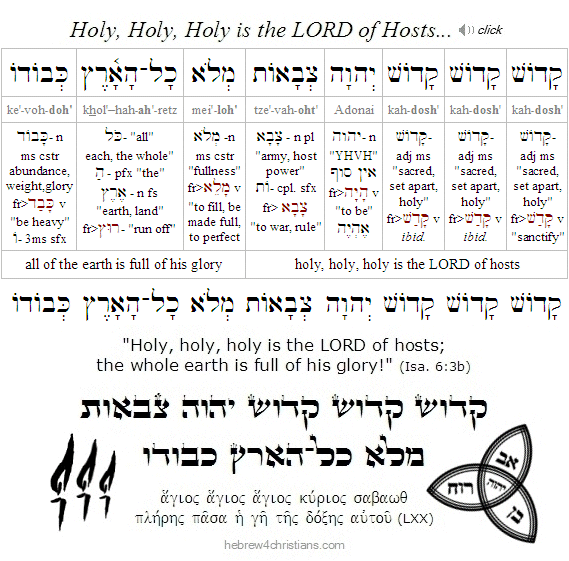 |
 |
Endurance to Hope...

06.19.20 (Sivan 27, 5780) Though we are optimistic about the purpose and end of reality, and though we believe that God "works all things together for good" (Rom. 8:28), we are not therefore monistic idealists, that is, those who say that evil is not real or who claim that it is "part of God." We are given "exceedingly great and precious promises," yet in this world we suffer and experience pain, heartache, and troubles. Yeshua said "in this world you will have tribulation," though that is not the end of the story, of course, for there is the cheer of God's' victory, even if we must repeatedly ask God for grace to endure our troubles without murmuring (John 16:33; Heb. 4:16). I realize that is often difficult, and some of you might be within the fiery furnace even now. You might be asking, "Where are you, Lord, in all of this? Why don't you bring me out of these troubles?" In such testing you need endurance (ὑπομονή) to hold on to hope, remembering that God uses affliction to refine you for good. As Paul said, "We rejoice in our sufferings, knowing that suffering produces endurance, and endurance produces refined character, and refined character produces hope" (Rom. 5:3-4). Each of us is still upon the "Potter's wheel," and God's hand continues to shape us into vessels that one day will reveal his glory and honor. "The LORD will give strength to his people; the LORD will bless his people with peace" (Psalm 29:11).
יהוה עז לעמו יתן
יהוה יברך את־עמו בשׁלום
Adonai · ohz · le·am·mo · yee·tein
Adonai · ye·va·rekh · et · am·mo · va·sha·lom

"The LORD will give strength to his people;
The LORD will bless his people with peace."
(Psalm 29:11)
Hebrew Study Card

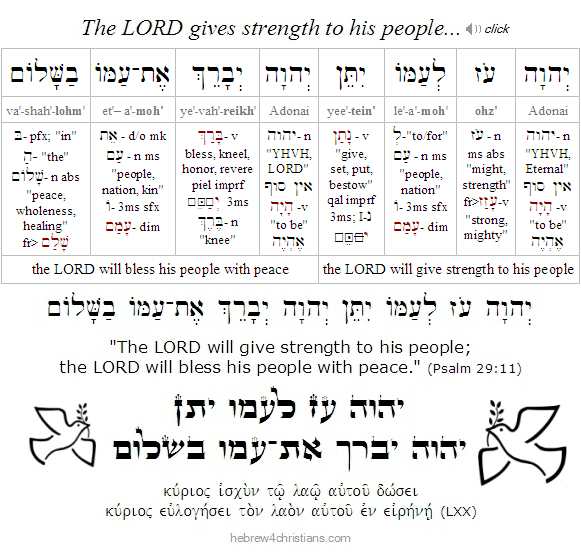
Keep holding on, dear friends! The Lord our God is faithful and true. He gives us acharit ve'tikvah (אַחֲרִית וְתִקְוָה), "a future and a hope" (Jer. 29:11). Shabbat Shalom.
The Torah of Love...

06.19.20 (Sivan 27, 5780) When considering the matter of teshuvah (i.e., returning to God), it is vital to understand that God does not love you based on your obedience, though his love for you will lead you to obedience... It is only after accepting that you are accepted despite yourself -- despite your inherent inability to please God, despite your incurably sick heart, despite your disobedience, sin, and so on -- it is only then that earnest, Spirit-enabled obedience may spontaneously arise within your heart. In that sense "obedience" is like falling in love with someone. It is your love that moves you to act and to express your heart, and were you prevented from doing so, you would undoubtedly grieve over your loss... Therefore the "law of the Spirit of Life in Messiah" is first of all empowered by God's grace and love. We walk by faith, hope, and love - these three. And this explains why the very first step of teshuvah (repentance) is to love God: Shema! Ve'ahavta et Adonai... The first work of faith is to believe in the miracle that God's love is "for-you-love..."
"The Christian is in a different position from other people who are trying to be good. They hope, by being good, to please God if there is one; or -- if they think there is not -- at least they hope to deserve approval from good men. But the Christian thinks any good he does comes from the Christ-life inside him. He does not think God will love us because we are good, but that God will make us good because He loves us; just as the roof of a greenhouse does not attract the sun because it is bright, but becomes bright because the sun shines on it" (C.S. Lewis: Mere Christianity).
If you find yourself operating from a sense of God's conditional acceptance, you will undoubtedly need to repeat the same sins over and over until your heart is finally convinced of its incurably wretched state. You must first be utterly sick of yourself to believe in the miracle of God's deliverance. Only after this will the word of Messiah find its opportunity.
Note: Some Christians seem to think Jesus died on the cross for their sins so that could live their lives without regard for sin, but that is of course a perversion of the truth. Yeshua did not suffer, bleed out, and agonize upon the cross for our sins so that we'd be given license to disregard the dreadful horror of sin and God's great cost to remedy our hearts... Indeed, by treating sin lightly we disparage the sacrificial work of Yeshua given on our behalf -- we "crucify the Son of God afresh" and thereby deny God's wrath for sin as well as his severe mercy given to those who trust in him (Heb. 6:4-9).
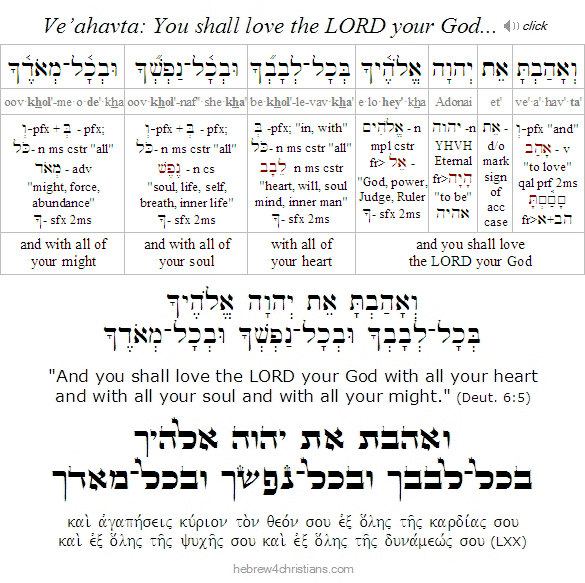 |
 |
Assured by Love's Promise...

06.19.20 (Sivan 27, 5780) Regarding the assurance of our salvation Yeshua declared: "I tell you the solemn truth, the one who hears my message and believes in the One who sent me has (i.e., present active indicative) eternal life and will not be condemned, but has passed over (literally, "crossed over") from death to life" (John 5:24). Note that the verb translated "has passed over" (μεταβαίνω) is a "perfect active" form (i.e., μεταβέβηκεν) that expresses completed action: "this one has already crossed over from death to life." In other words, the gift of eternal life is a "done deal," though it is only experienced as we truly surrender to the love and grace of God from a heart of faith. The "basis" of life is now radically new and of a different order. As the apostle Paul later summarized: "For it is by grace you have been saved (i.e., σεσῳσμένοι, a perfect passive participle that denotes completed action done on your behalf with effects that continue to the present) through faith, and this is not from yourselves, but is the gift of God, not a result of works, so that no one may boast" (Eph. 2:9-10). I'm so glad it's not the strength of my grip that keeps me holding on to God, but the strength of His!
Our Lord does not want us uncertain or unsure of His great love for us. A fearful believer explained that he was anxious about his acceptance before heaven. When he was asked to define "salvation," he answered, "freedom, deliverance, rest, peace." So you think fear will help you do away with your fear? You are fearful of the idea of freedom from fear? Hmmm.
So "be strong and of good courage" – chazak ve'ematz! The Lord our God promises "never to leave you nor forsake you," and to be with you wherever you go (see Josh. 1:5,9; Heb. 13:5, Psalm 139; Matt. 28:20). In the Greek New Testament, the wording of Hebrews 13:5 is highly emphatic: Οὐ μή σε ἀνῶ, οὐδ᾽ οὐ μή σε ἐγκαταλείπω: "Not ever will I give up on you; no, not ever will I leave you behind." May you hear the voice of the Good Shepherd calling you, and may He forever keep you under His watchful care. Amen.
Click to listen and learn the Hebrew text: 
Days of Noah Revisted...

[ A word for such a time as this, friends... ]
06.18.20 (Sivan 26, 5780) Our Lord told us: "For as were the Days of Noah (ימֵי נחַ), so will be the coming of the Son of Man. For as in those days before the flood they were eating and drinking, marrying and giving in marriage, until the day when Noah entered the ark, and they were unaware until the flood came and swept them all away (οὐκ ἔγνωσαν ἕως ἦλθεν ὁ κατακλυσμὸς καὶ ἦρεν ἅπαντας). Likewise, just as it was in the days of Lot - they were eating and drinking, buying and selling, planting and building, but on the day when Lot went out from Sodom, fire and sulfur rained from heaven and destroyed them all - so will it be on the day when the Son of Man is revealed" (Matt. 24:38-9; Luke 17:28-30).
So what were these "Days of Noah" like? What can we say about the "Generation of the Flood"? Yeshua explained that the "days of Noah" were marked by people who were asleep, blind, and unaware (ἔγνωσαν, "agnostic"). They went about their business willfully ignorant of the spiritual reality around them. For ten consecutive generations -- from the creation of Adam until the generation of Noah -- people progressively became more and more ignorant of spiritual reality and truth. Eating and drinking, romantic intrigue and marriage, buying and selling, and other worldly affairs were the preoccupations of the day. In short, people lived their lives oblivious to the spiritual reality all around them. They "forgot" who God was, who they were, why they existed, and where they were going. In short, they were "unaware."
The deadening effects of sin leads to moral and spiritual blindness that leads to corruption and unthinking brutality and violence. Of Noah's generation it was written "The LORD saw that the wickedness of man was great in the earth, and that every intention of the thoughts of his heart was only evil continually. And the LORD regretted that he had made man on the earth, and it grieved him to his heart... the whole earth was corrupt before God, and filled with violence" (Gen. 6:5-6, 11). Rashi understood the word "corruption" (shachat) to primarily refer to sexual immorality (i.e., idolatry) and "violence" (chamas) to primarily refer to theft and robbery. In general, however, the sages regarded the word chamas to refer to lawlessness, that is the denial of Torah, and consequently the benighted condition of living without yirat ha-shamayim (the fear of heaven). When people are spiritually dead, they are unconscious of the wonder of God; oblivious to what is real; and they are consequently debased into animals... We see that in our world today.
Far from being "set free" by throwing off the "shackles" of the law, people are debased and brought into deeper darkness (Rom. 1:26-28; 2 Pet. 2:12). True freedom is not the power to do whatever you want but the power to choose what is right. "Right" and "wrong" are not subjective preferences but objective spiritual judgments indicated both by human conscience but more importantly though revelation of the Torah. Despite claims by foolish thinkers like Frederick Nietzsche, moral truth is not malleable and subject to change. Just as human beings are subject to various physical laws to exist, so they are subject to moral laws. A person can no more murder another and escape the consequences than he can step off the ledge of a skyscraper and not fall to the earth.
The chaos we see in the world today is the result of years of social engineering and propaganda. From their youngest age children have been indoctrinated to believe that there is no God, that there is no transcendental moral authority, and that there is no objective truth about anything. Everything is relative and perspectival, and it is impossible to judge one subjective perspective to be better or worse than another... As a result we are "reaping the whirlwind" and the impulse to destroy is the final expression of this solipsistic and nihilistic ideology. Of course this destruction will be quickly followed by a "new regime" that eventually will enslave all of humanity under the reign of the anti-Christ.
The late Rabbi Levovitz, leader of the Mir Yeshiva, was in Poland before World War II and he saw the German preparations for the concentration camps. Regarding this he said, "The Jews stopped believing in Gehinnom (hell) so Hashem decided to bring Gehinnom into the world. Not the whole Gehinnom, but a little bit of it, a foretaste, a little bit of Gehinnom" (Purim derasha, 1981: Avi Miller). The moral chaos and anarchy we see today is likewise a foretaste of Gehinnom - the reign of terror to come otherwise known as the Great Tribulation....
There is hope, of course. We can and we should pray for the lost to turn to God and be delivered from their demonic fears and rage. And there is a new world coming! Not the "new world order" being prepared by techno-fascist globalists for the anti-Christ, but a truly new world. The chaotic violent and sick world we live in today will be dissolved when our King comes to rule the earth (Psalm 2). Our Lord can come in a blink of an eye. We are now in a state of preparation to herald our king, and that means keeping our hearts directed to his reality and truth. We must not shrink back now - we must affirm the truth and be bold in our witness. Time is short, chaverim.
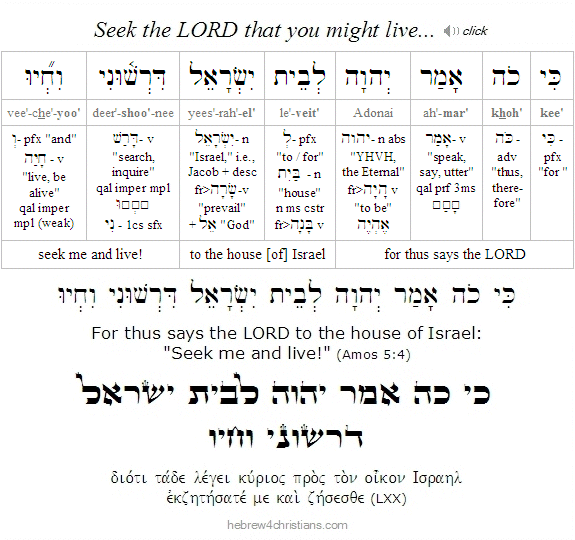 |
 |
The War for Our Souls...

06.18.20 (Sivan 26, 5780) There is a great war going on, and it's not a war waged with conventional weapons. This is the war for the souls of human beings, and every person alive is currently engaged in it... There is no place of neutrality in this war, and you cannot escape from the conflict. Passivity or indifference is not an option, and therefore each of us must choose sides. We are either going forward or going backward; we are either drawing near or pulling away (Rev. 3:16). מי ליהוה אלי - mi Adonal aylai? "Who is on the Lord's side?"
The apostle Paul wrote about this great war when he said: "For though we walk in the flesh (i.e., as mortal men), we are not waging war according to the flesh (i.e., in human terms). For the weapons of our warfare are not of the flesh but have divine power to demolish strongholds. We destroy arguments and every lofty opinion raised against the knowledge of God, and take every thought captive to the truth of Messiah" (2 Cor. 10:3-5).
Successful spiritual warfare is waged in the spirit realm, not relying on physical means at all, but trusts in the power of God and the weapons he provides to demolish "strongholds" where evil is deeply rooted (the word "stronghold" is better translated as "fortress," a metaphor for militant prejudice that attempts to justify godlessness). In the profane world, these strongholds are expressed in the reasoning (i.e., λογισμός, "logic") and "arrogant opinions" (i.e., ὕψωμα, pretenses) of the godless heart that are distilled into a dark vanity called "the wisdom of this world" (1 Cor. 3:19). The phrase "every lofty opinion raised against the knowledge of God" refers to the various devices of the heart and mind that erect obstacles to the knowledge of the truth revealed in the Messiah. Such obstacles are affirmed daily in the treacherous news of this world that reinforce godless assumptions and outright deception. We must use active discernment to identify the fallacies and misleading schemes promulgated by the world system by "taking every thought captive" to the glorious truth of the Messiah.
This is the good fight of faith (1 Tim 6:12). The fight is "good" because it turns on the victory and glory of the Lord who shares his overcoming life with us. The battle belongs to the Lord; the victory has been secured (Psalm 84:11; Rom. 8:37-39). Always remember that we never fight for, but always from, the place of His victory, standing our ground in the sufficiency of God's power given to us (Luke 10:19). We must be sober and vigilant (1 Pet. 5:8-9); we must stay focused and persevere in the truth (2 Tim. 2:4). God gives us the "armor of light" that blinds the eyes of powers of darkness. We must not be afraid but stand firm in the strength given to us by the Spirit of God (Zech 4:6; Eph. 6:11-18). The Lord will help us in the battle (2 Thess. 3:3; Deut. 3:22). "No weapon that is fashioned against you shall succeed, and you shall refute every tongue that rises against you in judgment. This is the heritage of the servants of the LORD and their vindication from me, declares the LORD" (Isa. 54:17).
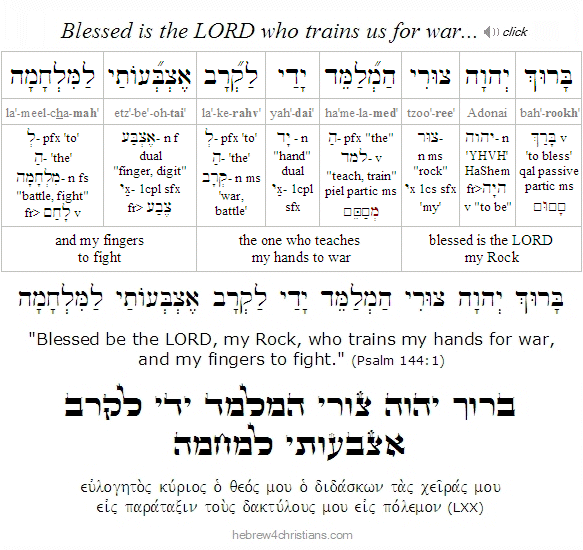 |
 |
Joshua and Jesus (יהושע וישוע)

[ The following is related to this week's Torah reading, parashat Shelach... ]
06.18.20 (Sivan 26, 5780) Before sending out the leaders of the tribes to spy out the land, Moses renamed his trusted servant Hoshea (הוֹשֵׁעַ) to Yehoshua (יְהוֹשֻׁעַ), appending the letter Yod (י) to make his name begin with a divine prefixive (יָהּ־). The Talmud (Sotah 34b) states that Moses foresaw the treachery and faithlessness of the spies and appended the Yod to remind Hoshea that YHVH (יהוה) must come first. This renaming of Hoshea, however, was certainly prophetic, since Joshua was chosen to be the successor of Moses who would finally lead the people into the promised land. Notice that the name Yehoshua (i.e., Joshua) and Yeshua (i.e., Jesus) come from the same root (i.e., yasha: ישׁע) meaning "salvation" or deliverance (in the Greek LXX, Joshua is spelled Ιησους, the same spelling for Jesus in the New Testament). Indeed, in the Book of Nehemiah, Yehoshua is explicitly called Yeshua (יֵשׁוּעַ), the name often transliterated as "Jesus" (Neh. 8:17).
Of course there are a number of fascinating similarities between Joshua and Jesus given in the Torah. For example, Joshua was a descendent of Joseph from Ephraim (lit., "double fruit"), and Yeshua came as Messiah ben Yosef, the "son of Joseph" who would come from Bethlehem of Ephrata (אֶפְרָתָה), a term that also means "fruifulness." Joshua was Moses' faithful companion at Sinai (Exod. 24:13) and overseer of the "Tent of Meeting" (אהל מועד), taking every opportunity to be near God's presence (Exod. 33:11). He was a capable commander of the armies of Israel who regularly routed the enemy in battle (Exod. 17:9, etc.). Joshua was truly humble and of impeccable moral character, a true servant of Israel filled with Holy Spirit of God (Num. 27:18). Therefore both Joshua and Yeshua loved God's house (Exod. 33:11; Luke 2:49), both were faithful leaders of Israel (Deut. 1:37-38; Matt. 2:6); and both were directly ordained by God. Moreover, Joshua was tested and found steadfast in his faith (Num. 32:12); he was willing to be "despised and rejected of men" rather than appease the mob, just as was Yeshua.
For more on this, see: "Joshua and Jesus: Further thoughts on Shelach Lekha."
Click to listen and learn the Hebrew text: 
 |
Logic and Seeing...
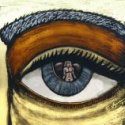
06.18.20 (Sivan 26, 5780) Our faith says human beings are created be'tzelem Elohim - in the image of God. "In the beginning was the Logos" (John 1:1). Logic itself is "hard-wired" into us and any attempt to deny its validity presupposes its existence. Logic also presupposes any form of experience, since we cannot even identify something without its categories at work. Similarly, the sense of value is hard-wired into us. We cannot know anything without valuing (and willing) knowledge itself, and therefore our sense of value (and goodness) precedes all experience. So both empirical and moral truth is inescapable for self-conscious individuals. Now since faith is always faith in something, it is evident that it points to something "outside" of itself, namely, to reality. In matters of fact (rather than tautological statements such as a=a), the "belief that p" is an existential statement that "p exists." A particular belief can be mistaken, of course, but if it is a true belief then (by definition) it must proximally correspond to reality. In other words, our beliefs (and the inferences made from our beliefs) are nothing less than confessions of faith concerning what is ultimately real.
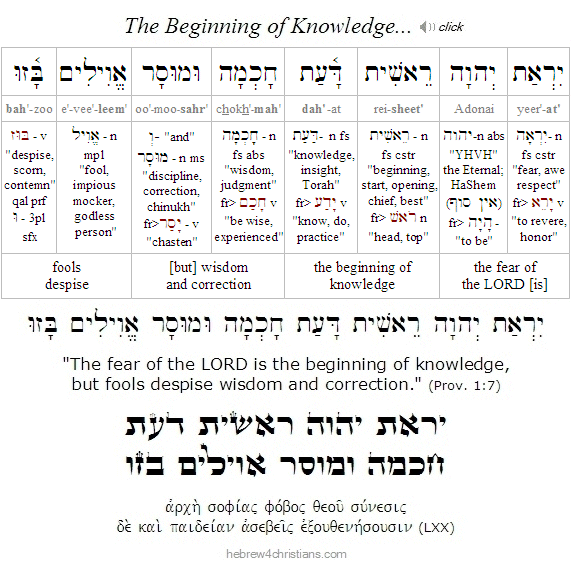 |
 |
Beware the "Seeming Way..."

06.18.20 (Sivan 26, 5780) "There is a way that seems right to a man, but its end is the way to death" (Prov. 14:12). Our postmodern culture celebrates "relativism," or the spurious notion that that there is no such thing as objectively knowable truth... Apart from the self-contradiction that arises by saying that it is (objectively) true that there is no objective truth, the unthinking acceptance of this sophistical perspective leads to mindlessness, the lack of creativity, moral stupidity, apathy, and delusional thinking. Popular culture preaches there are no moral absolutes and therefore terms like "right" and "wrong," "just" and "unjust," "true" and "untrue" should (ahem) be translated as expressions of preference without any reference to moral categories or structures that extend beyond the individual (or sometimes collective) will. According to this backwards view, Mother Theresa was no better a person than was Adolf Hitler; and therefore genocide, slavery, murder, and so on, are "lifestyle choices" that express individual or collective preference, but nothing else. Indeed such a viewpoint claims there is no way to infer an "ought" from an "is" (no "prescription" from "description") and therefore assigning moral praise, blame or responsibility is ultimately meaningless.
Understand, then, that the uncritical acceptance of epistemological and moral relativism stifles the life of the mind by implying that there is no difference between truth and error, between good and evil, between beauty and ugliness, between logical and illogical thinking, and so on. However, since language and meaning are necessarily grounded in logic, naive relativism is ultimately unintelligible and incommunicable, since logic assumes that meaning and rules of inference serve as the conditions of any expression of thought. I share this to point out that the thinking of our culture is not based on careful reflection or reasoning but is essentially a matter of brute force, and therefore it is rightly to be regarded as irrationalism, an implied appeal to violence, and depraved thinking. Of course this sort of relativism is a very useful indoctrination technique regularly used by political agitators, the mass media, by government propagandists, con artists, and by all those who rely on having unthinking people they can manipulate and control. Therefore the thoughtful person of truth, that is, the person of genuine moral conviction derived from intuitive axioms of reasoning, will always be regarded as an enemy to those who live and practice the lie.
ישׁ דרך ישׁר לפני־אישׁ
ואחריתה דרכי־מות
yesh · de'·rekh · ya·shar · leef·ney - eesh
ve·a·cha·ree·tah · dar·khei - ma'·vet

"There is a way that seems right to a man,
but its end is the way to death"
(Prov. 14:12)
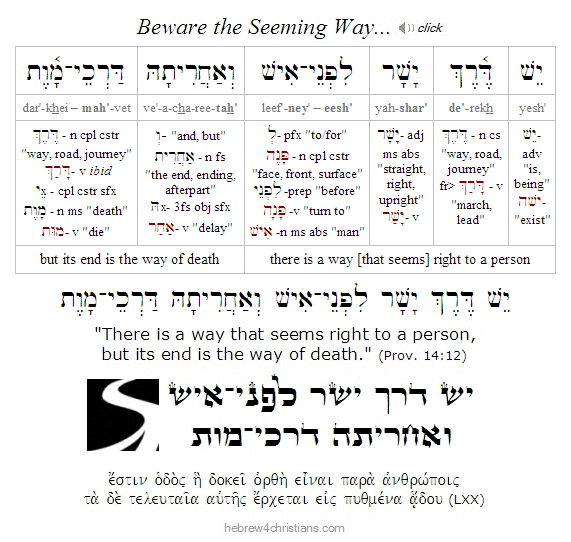
Martin Buber once said, "What is accomplished through lies can assume the mask of truth; what is accomplished through violence can go in the guise of justice, and for a while the hoax may be successful. But soon people realize that lies are lies at bottom, that violence is violence - and that both lies and violence will suffer the destiny history has in store for all that is false." As Yeshua himself said, "For this purpose I was born and for this purpose I have come into the world -- to bear witness to the truth. Everyone who is of the truth listens to my voice" (John 18:37). "Blessed are those who wash their robes, so that they may have the right to the Tree of Life and that they may enter the city by the gates. Outside are all those who love and practice the lie..." (Rev. 22:14-15).
Faith's Projection...

[ The following is related to our Torah for this week, parashat Shelach-Lekha... ]
06.18.20 (Sivan 26, 5780) The spies said, "we seemed to ourselves like grasshoppers, and so we seemed to them" (Num. 13:33). Here the sages note the subtle - yet profound - connection between how we see ourselves and how we imagine that others see us... This sort of "projection" is common enough in everyday life. However, while it may be valid for you to sometimes feel small, inadequate, and even "grasshoppery," it is not valid to claim that this is how you are regarded by others. After all, how do you know how you appear to others? And, moreover, what difference does that make in light of who God says you are? In other words, who or what defines you? Do you need the approval of man to exist, or the approval of God? Worrying about how others see you, seeking your self worth among the fickle passions of men, is cowardly, carnal and self-centered. When the spies said that "the land devours it inhabitants" (Num. 13:32), they projected their own hidden fears. Instead of seeing God at work, preparing the way for the Israelites to more easily conquer the land, the spies saw only themselves, and that led to the irreparable sin of unbelief...
We lose sight of what is real because we want the blessing on our own terms, apart from the miracle... The legalist is actually enslaved to the idea of God's conditional acceptance: "If you obey, then you belong." There is still some faith that the right religious scruples, the affirmation of a particular creed, and the practice of certain rituals will gain us access to His heart. The message of the cross scandalizes the religious because it boldly states, "if you believe, then you belong." As Kierkegaard rightly observed, "And this is the simple truth - that to live is to feel oneself lost. He who accepts it has already begun to find himself, to be on firm ground. Instinctively, as do the shipwrecked, he will look around for something to which to cling, and that tragic, ruthless glance, absolutely sincere, because it is a question of his salvation, will cause him to bring order into the chaos of his life. These are the only genuine ideas; the ideas of the shipwrecked. All the rest is rhetoric, posturing, farce." For Kierkegaard, religious rituals devoid of a sense of crisis within the heart are little more than a sham. "I think of the times I tried to use him to make my life secure, and undisturbed, and painless. Also the times I was enslaved by fear of him, and by the need to protect myself against him through rites and circumstances" (de Mello). Ritualistic behavior is a tawdry substitute for trusting that His heart is forever present for you.
 |
Small in our Eyes...

06.17.20 (Sivan 25, 5780) Our Torah portion for this week (i.e., Shelach-Lekha) is a "heavy one" since it reports the "Sin of the Spies" (i.e., chet ha'meraglim: חטא המרגלים) and the subsequent failure of the people to trust that the Lord would take care for them. The people's lack of bittachon (trust) in God is the most serious sin recorded in all the Torah, even more serious than the sin of the Golden Calf (i.e., chet ha'egel: חטא העגל). This is confirmed by the testimony of the New Testament, which presents the fate of the Exodus generation as the dire warning of apostasy for those who claim to follow the Messiah (see Heb. 3:7-4:2).
Trust, then, is the central issue, though in order to trust God, you must believe that you are valuable to Him and that He genuinely desires relationship with you... God redeemed you so you could know and love Him (Isa. 43:1). In this connection it is important to notice that the spies said, "we were in our eyes like grasshoppers" (Num. 13:33). They felt small because they had forgotten the reason for their redemption - they had forgotten how much they meant to God! Their lack of self-respect made them feel unworthy of the inheritance. The sin of the spies was not simply that they doubted they could overcome the "giants in the land," but rather that they were worthy people in God's eyes... Sadly the spies view of themselves was more real to them than God's view of them, and that is why they added, "and so we were (like grasshoppers) in their eyes." From a spiritual point of view, this was profoundly tragic..
One lesson we can learn from the unbelief of the spies is that we must be careful to esteem ourselves properly. We are created be'tzelem Elohim (in the image of God), and that is the starting point for everything else revealed in the Torah. This foundational idea may be expressed as "respect precedes Torah." Self-esteem and self-worth are very important characteristics because they enable the soul to receive the Word of God. This isn't a selfish, narcissistic type of love. If you have no self-worth, then it is likely you will believe the promises of Scripture are for other people, but not for you. You will regard yourself as an "outsider" or "alien" who is without promise of inheritance. So we have to begin there, with the fact that God created you in His image and therefore you are of infinite value. You matter to God - and therefore you must respect yourself. It is no mark of holiness to shame or belittle yourself - notwithstanding your sinful nature - since you have a duty to honor yourself as one of God's created children. Dishonoring yourself violates the central ethical commandment of the Torah: "You shall love your neighbor as yourself" (Lev. 19:18). How can you respect others if you don't respect yourself? You will regard yourself as "insect like" and will tend to view others as "gigantic" threats; you will act defensively and walk in fear of other people.... This is the path of a person living in a prison of fear, and it is a type of hell. Trusting in God's personal love for you presupposes that you are worthy to be loved and that there is a divine inheritance for you. This gives you real courage to go take possession of the land as its rightful heir. Trusting in God means regarding God's view of you as more real than your own. It means allowing yourself to be "drawn close" so that you can be in a genuine love relationship with your Heavenly Father. "From now on, therefore, we regard no one (including ourselves) according to the flesh..." (2 Cor. 5:16).
We "walk by faith, not by sight," which means we must take hold of the promise of God, even in a world that "devours its inhabitants" and that is filled of seemingly invincible giants... Faith believes the possible, even in moments of testing and struggle. As Yeshua said, "All things are possible for the one who believes" (Mark 9:23).
"God is able to make all grace overflow to you, so that having all sufficiency in all things at all times, you may overflow in every good work" (2 Cor. 9:8). May it please God our Heavenly Father to help us esteem ourselves properly so that we can receive, abide in, and walk in the reality and presence of His overflowing love. And may the LORD keep us all from the terrible sin of unbelief by always remembering that we infinitely matter to Him. Amen.
 |
 |
The Path of Life (ארח חיים)
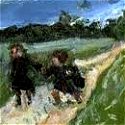
06.17.20 (Sivan 25, 5780) Spiritual regeneration or transformation isn't just leaving the sinful past behind you, but discovering the glory of true and infinite life that sustains all of reality... There is change of perspective, of no longer backing away from the hell you came out of by turning around to focus on heaven, your true spiritual home. We are called to pursue the goal of the upward call of God in Messiah (Phil. 3:14). If we walk in the light, the LORD will cause us to know "orach chayim" (ארח חיים), the path of life; we will find joy in the Divine Presence; and we will discover pleasures that endure forever:
תּוֹדִיעֵנִי ארַח חַיִּים
שׂבַע שְׂמָחוֹת אֶת־פָּנֶיךָ
נְעִמוֹת בִּימִינְךָ נֶצַח
to·dee·ei'·nee · o'·rach · cha·yeem
so'·va · se·ma·chot · et - pa·ney'·kha
ne·ee·mot · bee·meen·kha · ne'·tzach

"You will show me the path of life;
in your presence is fullness of joy;
at your right hand are pleasures forevermore."
(Psalm 16:11)

Download Study Card
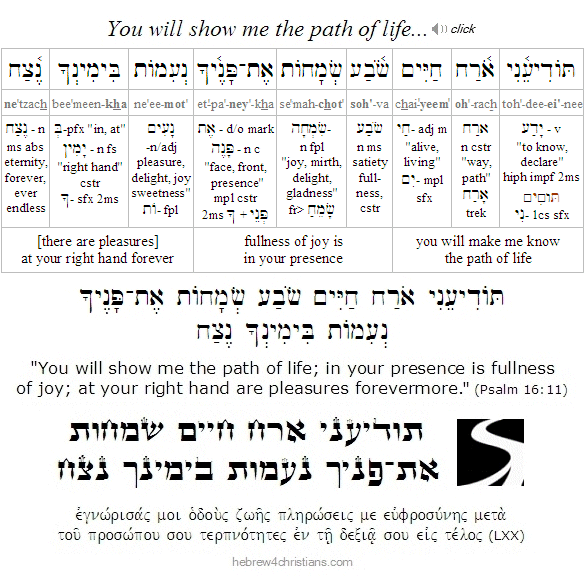
Have you discovered the glory and wonder of God's love, despite the many sins and the shame of your life? Do you know "in your gut" that his love means no longer having to defend or explain yourself? God's love enables you to quit hiding what you really are from Him; you can give up the pretense of being something you're not. When you turn to the Lord in the transparency of your brokenness, weakness, and neediness, you will find Him there, accepting you for who you really are... The path of life is Yeshua; he is the Bridge and Glory to all that is beautiful and true!
Deconstructing Nonsense...

06.17.20 (Sivan 25, 5780) It is written in our Scriptures: "The fool says in his heart, 'There is no God' (אָמַר נָבָל בְּלִבּוֹ אֵין אֱלהִים). Indeed Psalm 14 teaches us that the willful denial of reality is an affront to heaven, contempt shown for the gift of life, and sacrilege of all that is worthy. It is sheer folly to regard life apart from the fear of the LORD, for that is reishit chokhmah - the beginning of wisdom (Psalm 111:10). The existence of God is the First Principle of all sound reasoning regarding reality. The so-called "postmodern world" is notorious for failing to explain anything of substantive meaning. Everything is left unexplained; no narrative is permitted (except the narrative that there is no narrative, of course); no logical connections to a "real world" are sound; there is no "story" to our lives, and therefore postmodernism entirely misses the essential point of everything. King David asked, "Who shall abide before the Presence of the LORD?" and the Spirit replied: "the one who walks blamelessly and does what is right and speaks truth in his heart" (Psalm 15:2). It is the one who is honest – "the one who speaks truth within his heart" (דבֵר אֱמֶת בִּלְבָבוֹ) that dwells in the "tent of the LORD," for God is called the God of Truth (אֵל אֱמֶת), the Faithful God (אֵל אֱמוּנָה). In heaven there is only the language of truth, and truth is the language of heaven. The "pure in heart" – that is, those who accept the truth of their inner condition, who acknowledge their lost condition, mourning over their lives, and who humbly find themselves starving for God's deliverance – these are the ones who shall behold God (Matt. 5:2-6). Blaise Pascal once wrote: "I can feel nothing but compassion for those who sincerely lament their doubt, who regard it as the ultimate misfortune, and who, sparing no effort to escape from it, make their search their principal and most serious business. But as for those who spend their lives without a thought for this final end, I view differently. This negligence in the matter where they themselves, their eternity, their all are at stake, fills me more with irritation than pity: yea, it astounds and appalls me..." (Pascal: Pensees).
Postmodern Christianity is a phenomena of despair. By "despair," however, I do not mean "gloom" or "dejection," but rather an absurdist anti-intellectualism that derived from the loss of hope regarding obtaining real knowledge about the world. In popular culture, we see that this despair arose just after WWI (in the USA, earlier in Europe), though its roots trace back to the epistemological skepticism of the German philosopher Immanuel Kant (1784-1804), who posited "limits" to the mind's ability to know reality by defining a chasm between apparent reality (phenomena) and hidden reality (noumena). The realm of phenomena was open to inspection using the methods of reason, science, etc., whereas the realm of the "numinous" was only supposed and "managed" by positing transcendental "categories" to help lend order to the unknown. Perhaps unwittingly, Kant's doctrine opened the door to various forms of irrationalism, since all the meaningful aspects of life (human love, semantic meaning, hope in afterlife, freedom, the existence of God, etc.) were relegated to the murky world of the numinous, leaving us with only a world of "managed appearances" to traffic in as human beings in the world.
GW Hegel (1770-1831) took the next step and speculated wildly above Kant's uncrossable line. The phenomenal world (Zeitgeist) was "really" a manifestation of Absolute Spirit working its way out through "dialectic" in the space-time world. Later Karl Marx (1818-1883) rejected the idea of Spirit and substituted material forces (i.e., economics) as the engine that drove historical processes. Nietzsche and his odious spawn, Adolf Hitler soon became "true believers" of such irrationalism... Derrida, Foucault and other "postmodernists"celebrated the loss of intelligibilty as a political opportunity to "reconstruct" reality as subjecitve preference.
How does this relate to charismatic Christianity, then? The division of rational and irrational modes of encountering reality opened the door for absurdist encounters with the spirit realm. Since God cannot be understood using the mindset of reason, He is known only through the experience of mystery. Faith is expressed by actually contemning rationality and embracing the ludicrous... I don't have time to develop this presently, but perhaps I will revisit this issue later. Suffice it to say that Charismatic Christianity is generally an aberration that is symptomatic of the despair of the "postmodern" age.
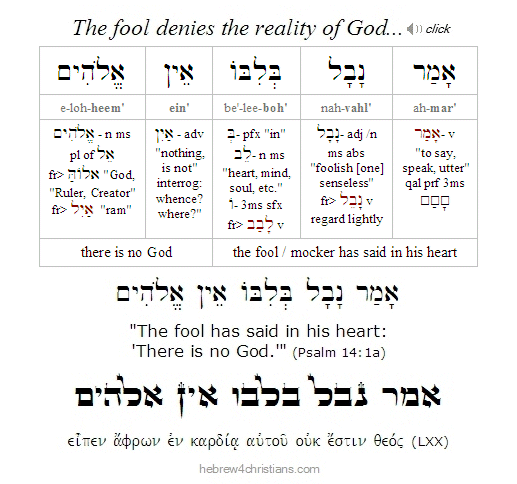 |
 |
Torah of Miracles (תורה של נסים)

06.17.20 (Sivan 25, 5780) Perhaps you (like me) once learned Psalm 19:7 as, "The law of the LORD is perfect, converting the soul." However, the Hebrew text might better be translated as, "The instruction (i.e., Torah) of the LORD is perfect, returning the soul." This is the message of teshuvah (תְּשׁוּבָה), or "repentance," of course. We turn away from ourselves to discover that only the love of God given in Yeshua gives life to our dead hearts (Mark 1:15). Teshuvah is therefore first of all a matter of faith, of trusting in the miracle of God. And though it is indeed a great gift from heaven, it requires that we pass through the "narrow gate" of humility by confessing the truth about who we are (Matt. 7:13). We turn away from our pride; we acknowledge our inner poverty, our neediness, and we mourn over the loss and hurt caused by our sin. Teshuvah turns us away from our attempts to defend or justify ourselves and instead turns to God to heal our separation from love (Rom. 8:3-4). The miracle of love buries our old nature and transforms us into a new creation (2 Cor. 5:17).
תורת יהוה תמימה משׁיבת נפשׁ
עדות יהוה נאמנה מחכימת פתי
to·raht · Adonai · te·mee·mah · me·shee·vaht · na'·fesh
ei·doot · Adonai · ne·e'·ma·nah · mach·kee·maht · pe'·tee

"The Torah of the LORD is perfect, returning the soul;
the testimony of the LORD is sure, making wise the simple."
(Psalm 19:7)
Download Study Card

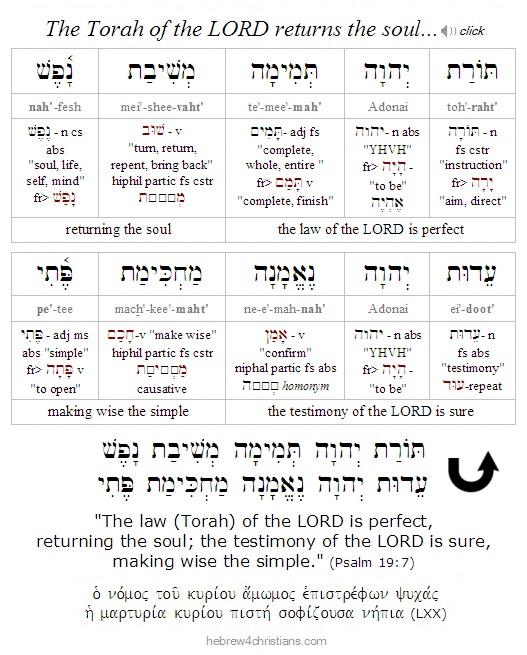
Spying with little eye...

[ The following is related to our Torah for this week, parashat Shelach-Lekha... ]
06.17.20 (Sivan 25, 5780) Which will you choose to believe - the "spying eyes" of the flesh, or the Word and promise of the LORD God Almighty? The "eyes of the flesh" focus on this world and its possibilities (חַיֵּי שָׁעָה) and are therefore unable to discern beyond mere surface appearances. They are easily seduced by superficialities and glitter of this world and its vanities (עוֹלָם הַשֶּׁקֶר). The eyes of faith, on the other hand, "look not to the things that are seen but to the things that are unseen. For the things that are seen are transient, but the things that are unseen are eternal" (2 Cor. 4:18). Faith sees the realm of the invisible (חַיֵּי עוֹלָם): For we "walk by faith, not by sight." We are "saved by hope," but hope that is seen is not hope (Rom. 8:24-25). Faith is the foundation (ὑπόστασις) of things hoped for, the conviction (ἔλεγχος) of things (πρᾶγμα) not seen" (Heb. 11:1).
In our Torah portion this week, the people had trekked across the desert of Paran for several days, with their camps ordered in military precision. The Ark of the Covenant was in their midst and the Shekhinah Glory filled the desert skies. Now the people were at Kadesh Barnea (קָדֵשׁ בַּרְנֵעַ), about 11 days out from Sinai and about three days to the border of the promised land... The great promise of Zion was finally within reach! But then a dark misgiving arose within the heart of the people... fear ... the old whisper of the enemy was heard in the desert wind: "has God really said...?" (Gen. 3:1). In light of the events of the great Exodus, the mistrust of the people demonstrates that miracles are insufficient to sustain our faith. "An evil and adulterous generation seeks for a sign." Seeing isn't believing, but rather the other way around. Yeshua made this point in His parable of the rich man and Lazarus (Luke 16:19-31). Even if a person should encounter someone literally risen from the dead it wouldn't suffice to impart true faith (Luke 16:31). The great sin that so angered God to declare: "I swore in My wrath, they shall not enter into My rest..." was not that of the Golden Calf, as dreadful as that was, but rather the sin of unbelief.... "So we see that they could not enter in because of unbelief. Let us, therefore, fear lest, a promise being left us of entering into His rest, any of you should seem to come short of it" (Heb. 3:7-4:2).
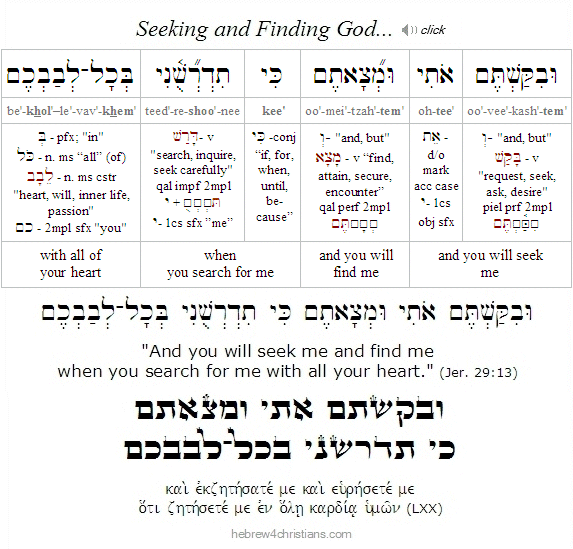 |
Note: For more on this topic, see "Spying Eyes: Further thoughts on Shelach."
Navigating Moral Reality...

06.17.20 (Sivan 25, 5780) The moral rules of Torah (i.e., mishpatim: משׁפטים) may be likened to guideposts along the way, warning us about dangers up ahead. And just as a physical law like gravity describes material reality, so moral law describes spiritual reality. We can no more deny moral reality than we can deny physical reality, though the effect of violating moral truth is often not physical but spiritual - affecting our inner life, our conscience, our sense of value, our relationships, and so on. In either case, however, reality is self-correcting, and we shall deny its substance at our own peril...
Laws of any kind are generalizations, of course. In science, for instance, we inductively sample phenomena and then universalize that experience as a law applicable in all similarly controlled conditions, until proven otherwise. In the case of moral reality, we may have revealed and intuitive awareness of value, but we still must wrestle to discover how to apply such truth to practical matters of our lives. For example, a moral rule is to always "speak truth," but in some cases this rule can be "broken" for the sake of a more important truth. For instance, the law of truth-telling may be suspended if we were hiding Jews in our attic and the Nazis asked if we were doing so. Moral and social rules speak to our need for boundaries, for sacred space, safety, and provide means to show respect to one another. That's the "spirit of the law" (רוח התורה) the deeper reason for its expression. The "role of the rule" is to promote and upbuild life; a righteous rule helps us discern how to limit and redirect our impulses to express godly character. As is also written in our Scriptures: "You shall therefore keep my statutes and my rules; if a person does them, he shall live by them: I AM the LORD" (Lev. 18:5).
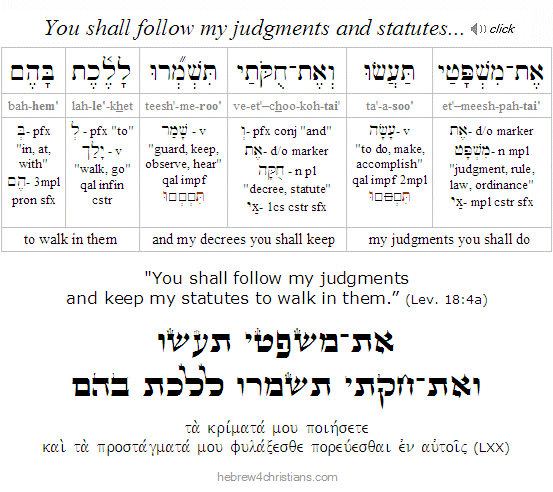 |
 |
Meaning of Freedom...

06.16.20 (Sivan 24, 5780) Some people think that "freedom" means lawlessness, or the ability to do what they want to do whenever they want to do it. However, simply doing whatever you want to do is not the Torah's idea of freedom. Yeshua told us "whoever commits sin is the slave (δουλος) of sin," and went on to say "if the Son sets you free, you will be free indeed" (John 8:34-36). True freedom (i.e., cherut: חרוּת) is therefore moral and spiritual rather than merely physical. Real freedom has to do with the power to choose what is right and good, not to simply bully your own way or to practice your lusts... Our deliverance is meant to clothe us with divine power to walk in righteousness and truth (Phil. 2:14-16).
Where it is written, "The tablets were the work of God, and the writing was the writing of God, engraved on the tablets" (Exod. 32:16), the midrash says do not read "engraved (i.e., charut: חָרוּת) on the tablets" but rather as "freedom (i.e., cherut: חֵרוּת) on tablets," since only those who obey God's will may rightly be called "free" people... The worst kind of slavery is to be blind to your own chains -- chains to yourself and your own inner depravity!
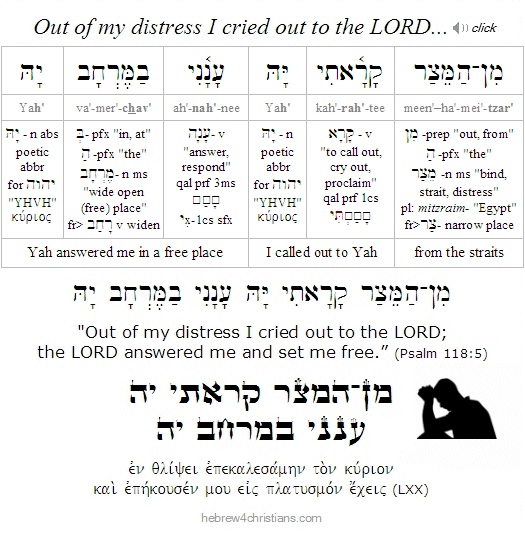 |
 |
The Armor of Light...

06.16.20 (Sivan 24, 5780) We are in the midst of a great spiritual war -- the war for the truth. This has been the battle from the beginning. The very first recorded words of Satan (הַנָּחָשׁ) questioned God's truth: "Did God really say...?" (Gen. 3:1). In the end there will be found two types of people: those who love the truth and those who love the lie; these are children of light (בְּנֵי הָאוֹר) and children of darkness (בְּנֵי הַחשֶׁךְ), respectively. Followers of Yeshua the Messiah are told to "walk as children of light" / ὡς τέκνα φωτὸς περιπατεῖτε (Eph. 5:8). Children of light are called to be am kadosh - a holy people - separate from the evil engendered by the fallen world and its forces, just as the very first creative expression of God was the separation of light from darkness (Gen. 1:3-4). The children of light "hate evil and love the good," and conversely, the children of darkness "hate the good and love evil" (Psalm 34:21, Prov. 8:13, Amos 5:15, John 3:20-21). Yes, we hate sin, because sin separates people from healing; we hate sin but we love others. We are to walk in the peace and love of God; to do acts of justice and lovingkindness (Psalm 97:10). "No one can serve two masters, for either he will hate the one and love the other, or he will be devoted to the one and despise the other. You cannot serve God and mammon" (Matt. 6:24).
In a sense, the very history of humanity - especially as it has been expressed philosophically and politically throughout the centuries -- has been nothing less than the collusion to redefine reality as something that it isn't. "The kings of the earth station themselves, and the dignitaries (רוֹזְנִים) take counsel together against (lit. "over") the LORD and His Mashiach" (Psalm 2:1-3). Spiritual warfare is therefore the fight for sanity and truth in a world that prefers madness, anarchy, and self-deception...
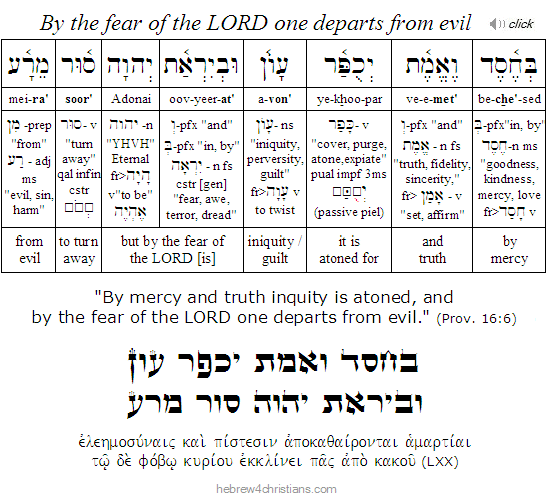 |
 |
The Vision of Faith...

06.16.20 (Sivan 24, 5780) From our Torah this week (Shelach Lekha) we read about the report of the spies: "They (the spies) returned... and brought word and showed them the land's bounty. And they said, "We came to the land to which you sent us. It flows with milk and honey (זבת חלב ודבש), and look, here is its fruit. Nevertheless the people who inhabit the land are powerful; the cities are greatly fortified, and we also saw the (giant) people of Anak there... We are unable to go up against the people there, for they are stronger than we are ... and moreover the land itself consumes its inhabitants" (Num. 13:25-32). The Kotzer rebbe asked, "Did the spies lie? Did they invent words that were untrue? Behold, they spoke as they saw it, so how did they sin?" Yet not everything that is not a lie is truth: you may have all the facts "correct" and yet still speak untruth. Truth is therefore something more than the description of appearances since what appears is interpreted by underlying assumptions that contextualize perception... For example, a future tense proposition (e.g., "it will not rain tomorrow"), or a probabilistic prediction (e.g., "there is a 50% chance it will rain tomorrow), are are based on inferences from what is observed or seen to what is not seen, and therefore they are all grounded in faith that the future will resemble the past, that the laws of nature are constant, that measurement is possible, and so on. Language about possibilities, probabilities, expectations, outcomes, and so on all turn on the question of faith. Our Torah portion this week illustrates the responsibility we have to trust in the promises of God, regardless of our limited interpretation of appearances... When it comes to trusting in an unseen Good, we must believe in order to see, not the other way around.
Surely our great need is to have heart, to find strength, resolution, and steadfast determination to walk boldly during these heartless and depraved days (2 Tim. 3:1-5). We are not without God's help, of course. Yeshua told us that the Ruach HaKodesh (רוּחַ הַקּדֶשׁ) would be "called alongside" (παράκλητος) to comfort us on the journey. The English verb "comfort" literally means "to give strength" (from com- ["with"] and fortis ["strong"]), an idea similarly expressed by the verb "encourage," that is, to "put heart [i.e., 'core'] within the soul." In Hebrew, the word courage is expressed by the phrase ometz lev (אמֶץ לֵב), meaning "strong of heart," denoting an inner quality of the will rather than of the intellect. Our faith is the victory that overcomes the world (1 John 4:4, 5:4).
But what about the trouble, testing, pain, hardship in our lives? How do we deal with these without losing heart? Only God can help us, friend... In this life, where our "outer man perishes" we will experience the "existential pathos" of the life of faith. That is the test. We may feel abandoned by God, or forgotten, or of complete insignificance, or sinful, vile, hopeless confused, and so on, and yet the heart of faith cries out: "Though he slay me, yet will I trust in him" (Job 13:15). Faith is able to see beyond the temporal to the eternal (2 Cor. 4:18) It finds comfort in God's blessing to endure the ambiguities of this world. May the LORD God Israel, Yeshua our Messiah, strengthen us all. Amen.
 |
Seeing with Heart...
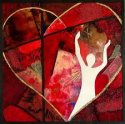
[ The following concerns this week's Torah reading, parashat Shelach Lekha. Please read the Torah portion to "find your place" here. ]
06.15.20 (Sivan 23, 5780) "We walk by faith, not by sight" (2 Cor. 5:7). This is true for all people, since every soul lives by faith of some kind or another. Our Torah portion this week (Shelach) begins with the episode of the spies and concludes with the warning not to "spy after your heart and after your eyes" (Num. 15:39). The Torah mentions the heart first and then the eyes to indicate that the eyes follow the heart. We see as we believe with our heart: "According to your faith be it done unto you." When the spies said, "We are not able to go up (לא נוּכל לעלות)... for they are stronger than us" (Num. 13:31), they revealed their unwillingness to believe in God's promise, or, to put it another way, they revealed their faith in God's inability to deliver on his word.... Indeed, the Hebrew word for "than us" (i.e, ממנו) can also mean "than Him," suggesting that the spies believed that even God would be unable to uproot the Canaanites! According to their faith, so it was done; by believing that it was impossible, they lost the possibility of God's promise...
Faith sees what is possible and refuses to yield to the artificiality of mere appearance. Indeed, appearances are often a test of our courage. We may never know how often a test was given and - just before victory was manifest - the heart grew faint and was lost to fear. "According to your faith" (על פי אמונתך) is a spiritual principle that applies to everyone. In that sense, it is not that we have faith that matters (since we all do), but whether our faith is grounded in the promises and power of the LORD God of Israel, or something else....
אָמַרְתְּ לַיהוָה אֲדנָי אָתָּה
טוֹבָתִי בַּל־עָלֶיךָ
a·mart · la·do·nai: · A·do·nai · a'·tah
to·va·tee · bal - a·ley'·kha

"I say to the LORD, "You are my Lord;
I have no good apart from you."
(Psalm 16:2)
Hebrew Study Card


The Father of Lights...
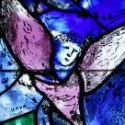
06.15.20 (Sivan 23, 5780) It is written in our Scriptures: "God is light and in him is no darkness at all" (1 John 1:5). Our Savior is "the Light of the world," the overarching Reality that gives light to every soul who is born (John 1:9). As the Source of all light, his power is irrepressible, invincible, and overcomes every shade of darkness. Yeshua is the Logos (Λόγος), the underlying "logic" of all of creation. Unlike the transient radiance of the heavenly bodies, the Divine Light remains constant and supreme over all of creation, without any diminution or variation: God is the "Father of Lights" (James 1:17). And just as we know that the sun still shines even on the most overcast of days, so we understand that the Divine Presence is always there -- always giving, always shining, always loving us... We can trust in the power of our God to help us, since His radiance and truth pervade the darkness to enlighten our way (Psalm 112:4). As Yeshua said of his mission, "I have come into the world as light, so that whoever believes in me may not remain in darkness" (John 12:46). O precious LORD our God, let your light shine upon us...
אֱלהִים יְחָנֵּנוּ וִיבָרְכֵנוּ
יָאֵר פָּנָיו אִתָּנוּ סֶלָה
e·lo·heem · ye·chon·nei'·noo · vee·va·re·khei'·noo
ya·eir · pa·nav · ee·ta'·noo · se'·lah

"May God be gracious to us and bless us;
may he cause his face to shine upon us, selah."
(Psalm 67:1)

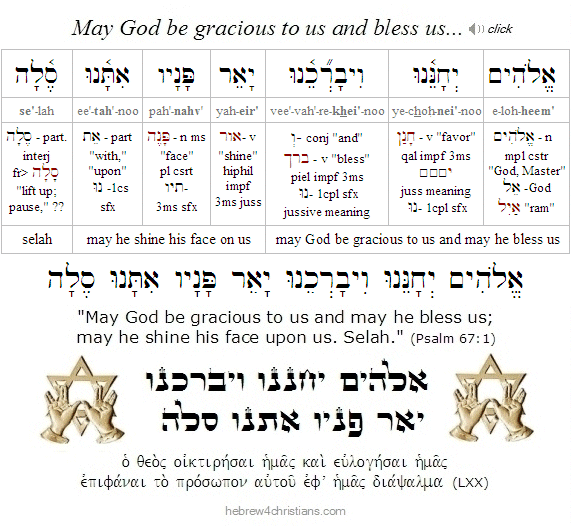
Allow the light of God's love to shine in you brightly. As Yeshua our Savior said, "Whoever has my commandments and keeps them, such is the one who loves me. And the one who loves me will be loved by my Father, and I will love him and will manifest myself to him" (John 14:21). Note that the Greek word for "manifest" means to "shine inside" (i.e., ἐμφανίζω, from ἐν, "in" and φαίνω, "shine"), indicating that the revelation would be inward light of the Divine Presence. Indeed, the Hebrew word for "praise" (i.e., tehillah: תְּהִלָּה) comes from a verb that means "to shine" (i.e., halal: הָלַל), from which we derive the word "halo." Similarly, the word "aura" comes from the Hebrew word "ohr" (אוֹר), meaning "light." Let your inner light shine before others so that they may see your good works and give honor to your Father who is in heaven" (Matt. 5:16).
Beholding Promised Good...

06.15.20 (Sivan 23, 5780) How we see is a spiritual decision... From our Torah portion this week (i.e., Shelach Lekha) we read: "See the land, what it is ... whether it be good or bad ... and strengthen yourselves" (Num. 13:18-20). Here note that right seeing – even the negative aspects of the land such as the presence of "giants" – can only be achieved by the courage derived from faith. When you see things that appear bad, you are to "strengthen yourselves," the Hebrew verb (i.e., וְהִתְחַזַּקְתֶּם) used here means to intently decide to see the good despite the present veil of appearances. When we encounter things that are bad, we must refuse to be overwhelmed by carnal reasoning and fear by looking beyond the moment to behold a promised good (see 2 Cor. 4:18). Whether things appear to be good or bad, trust God is with you, in your midst; he will never leave nor forsake you... The Presence of the LORD is the Hidden Blessing and Treasure in all things...
Parashat Shelech Lekha...

06.14.20 (Sivan 22, 5780) Our Torah reading for this week, Shelach Lekha (שלח־לך), recounts how Moses sent twelve spies from the desert region of Kadesh into the land of Canaan to search it out and give a report of its condition. The spies returned 40 days later extolling the land, saying that was indeed fruitful and zevat chalav u'devash (זבת חלב ודבשׁ), "flowing with milk and honey." However, ten of the spies also gave a discouraging report, indicating their lack of confidence that the people could conquer the land. Only Joshua (יהושע) and Caleb (כלב) kept faith in God's promise. Upon hearing the report of the ten spies, however, the people rebelled and cried out to return to Egypt. Angered by their lack of faith, God sought to destroy the people, but Moses interceded on their behalf. The LORD then decreed to lengthen the Israelites' wandering in the desert to 40 years -- one year for each day the spies were in the land -- until all of the faithless over the age of 20 would die in the desert, except for Joshua and Caleb, the two spies who kept faith with the LORD. After hearing the judgment of God, a group of remorseful Israelites decided to "repent" by taking matters into their own hands. Without either the "Ark of the Covenant of the LORD" or Moses' leadership, they presumptuously decided to storm a mountain on the border of land but were decisively routed by the Amalekites and Canaanites.
If last week's Torah might be called "sefer kvetch" (the book of complaint), this week's Torah reveals the fateful outcome... The people's lapse of faith in God's power serves as a profound and very sober warning, and indeed is a primary warning regarding the dreadful sin of unbelief in the New Testament (see Heb. 3:7-4:11). Indeed, Jewish tradition states that the decree that "none of the men who had seen my glorious Presence and my signs I performed in Egypt and in the desert will see the land that I swore to give to their fathers" (Num. 14:22-23) was given on the Ninth of Av (i.e., Tishah B'Av), and was prophetic of the destruction of the Temple and the worldwide exile of the people from the Promised Land. The sin of unbelief may rightly be regarded as the "unpardonable sin" of the Torah...
The tragedy of the sin at Kadesh ultimately has a happy resolution, however, since the LORD is never thwarted by man's sin and weaknesses. After the 38 years of exile were complete, Moses' faithful successor Joshua sent a second spying expedition to the promised land, though this time God led the spies to a prostitute named Rahab (רחב), a direct ancestor of Yeshua the Messiah, who later identified her faith in the LORD's victory by displaying the scarlet cord (i.e., chut ha'sheni: חוט השׁני) during the fall of Jericho (Joshua 2). Rahab was the (grand)mother of Boaz, who later married Ruth, the great grandmother of King David. May God likewise give us courage to walk in the power of His promises, even if our present circumstances seem daunting. May the LORD clothe each of us with the "spirit of David" to stand before all the giants of the land who defy the LORD and His power.
Connected to the Vine...

06.12.20 (Sivan 20, 5780) Yeshua taught us: "If anyone does not live in Me, he is cast off as a branch, and withers..." (John 15:6). We find life only as we remain connected to the Source and Conduit of life, who is the Messiah, the Savior and LORD. True life grows out a heart connection with Yeshua, and without that connection our lives become vain and yield no eternal significance (John 15:5). Be forewarned: it is the sacred truth of the Messiah that if you do not live in the Vine you will be suffer eternal loss, since life is found in no other Source (John 14:6; Luke 3:9). Be encouraged, however: The yoke of Messiah is easy, and His burden is light: we cannot create new life by our own best efforts nor effect regeneration by means of our own "good works" (John 1:3; Titus 3:5; 2 Tim. 1:9). No, the work of salvation is God's alone, and we partake of that work as we abandon our self-efforts and religious conceits (see Isa. 32:17). There remains, therefore, a Sabbath for the people of God, "for whoever has entered God's rest has also rested from his works as God did from his" (Heb. 4:9-10). This "deep Sabbath" of rest is a matter of trusting that the finished work of salvation has been provided on your behalf. Therefore relax, for the LORD always effects what is best for you, and not much is under your control anyway. The path of peace is to surrender to God's care for your life and let the evils and drama of this world flow past you. Look to heavenly reality and not to the shadows and deceits of this world (Col. 3:1-4). Live in Yeshua's Presence, drawing strength and vitality from your relationship with Him. The fruit of the Holy Spirit is produced as we yield ourselves to the love and presence of God.
The "Torah of the Vine" (תּוֹרַת הַּגֶּפֶּן) also teaches us that "every branch that bears fruit will be pruned so that it may bear more fruit" (John 15:2). Note first that it is the healthy branch that will be cut back - not the withered one that will be altogether removed – and this purging process may be painful at times. The heavenly Vinedresser's goal is for the fruitful branch to yield more fruit, to reveal more and more the connection to the Heart of the Vine, so that God is glorified (see John 15:8). The end here is the beatific vision: "Blessed are the pure in heart, for they shall see God" (Matt. 5:8). Note that the Greek word translated "pure" is katharos (καθαρός), sometimes used describe the cleansing of a wound (catharsis), or to describe the unalloyed quality of a substance revealed through refining fire. Sanctification involves "catharsis" of the ego – the exile of carnal desire, the mortification of our will, the release of truth in the inward parts. A faith that thinks God will make us immune to suffering, challenges, and tribulation is immature and imperfect. The goal of "purging" is fruitfulness and blessing, but the agency is not the will of man but the power of God. You are made "clean" through the word of God spoken within your own heart (John 15:3). Your sanctification, however, depends on your communion with God, staying connected to what is real, central, vital, the core truth of God's Presence and love, the ultimate Reality of Life itself.
"If anyone does not live in Me, he is cast off and withers...." Yeshua here teaches that shared life is the goal of our relationship with him, but if that does not occur, destructive consequences follow. This has been called the "dark side" of God by some, by which they mean that God will destroy everything in us that is not fit to exist and that does not yield true blessedness (Luke 3:9). Of course this "destruction" (or correction) is really a great blessing, since it purges us from worthlessness that brings pain, disease, and sorrow (this in distinction to the devil, who seeks to destroy what is healthy and good). The upshot here is that we must carefully attend to our inner life and our connection with God, understanding that to be the utmost good for our lives, seeking God's Presence in all our ways. Therefore we read, "Above all else guard your heart, for from it flow the springs (or contours) of life" (Prov. 4:23).
מִכָּל־מִשְׁמָר נְצר לִבֶּךָ
כִּי־מִמֶּנּוּ תּוֹצְאוֹת חַיִּים
mee·kohl · meesh·mar · ne·tzor · lee·be'·kha
kee · mee·me'·noo · to·tze·oht · chai·yeem

"Above all else guard your heart,
for from it flow the springs of life"- Prov. 4:23

Hebrew Study Card
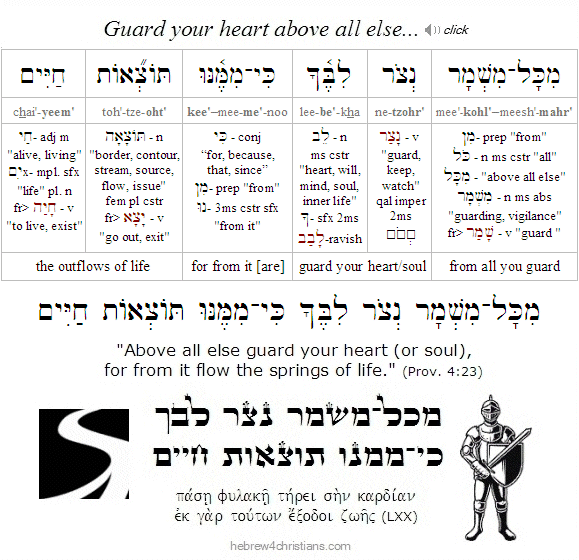
Consider your assumptions and the "default" ways you tend to think about things.... Since Yeshua is the Center, the Heart, and the Source of all beauty, meaning, love, grace, and life for you, test all other truth claims based on that relationship… The devil trafficks the lie and seeks to entice you to bite his hook. We overcome the power of the lie by means of truth, and the various affairs of this world – its drama, it's "news" and its rumors, its fads, trends, idols, and fashions, its unspoken assumptions that impugn the witness of Scripture – must be mediated by the word of Messiah within you. Take every thought captive to the truth of God; bring it before the bar of the Divine Presence and coerce it to bend the knee (2 Cor. 10:5). Friend, the stakes are high. People live their lives in unstable and pain-filled ways because they refuse to "come to themselves" and understand the Ground of existence, the Heart of God that overarches and sustains all things...
Thou Shalt Not Steal...
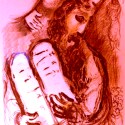
06.12.20 (Sivan 20, 5780) Shalom chaverim. Once again I have found my writings and work copied off and repackaged as a book sold on Amazon by a false teacher. Yes, a false teacher, for who else would steal large amounts of my site content and then republish it under their own name? Yet this person claims to follow Yeshua! Sadly, friends, this is not the first time this has happened, as I have seen entire sections of my Hebrew for Christians website copied off and then republished on other web sites without asking for my permission. How is this possible, friends? How is it possible for supposed followers of the LORD God of Israel, the Moral Authority and great Lawgiver, to transgress the basic commandment "Thou shalt not steal"? What sort of self-deception is at work when people do this sort of thing and then tell themselves (and others) that they are serving the Living God???
This reminds me of a story I once read: "The wife of the kotzker rebbe once complained to the rabbi's shamash (assistant) that things seemed to be missing from the house. 'And why shouldn't they be missing?' he said. 'After all, nothing is locked away, the whole house is wide open, and it is easy for anyone to steal anything.' Overhearing the comment, the Kotzker became very upset. "What do you mean "it is easy to steal?" he asked. 'How can anyone steal when it is specifically forbidden in the Torah?'"
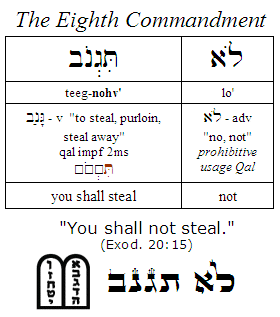 |
All this is disheartening to me, friends, and discourages my soul. After all, I do not actively solicit money to fund this ministry, and my book sales have helped with the costs involved with developing and running the site. I understand that people of the world will steal and con others, but when it is done in the Name of my LORD? Oy Vey. I thank God, however, for Hebrew for Christians supporters who help sustain me, for they keep this ministry going!
Choosing to See...

06.11.20 (Sivan 19, 5780) Teshuvah, or turning to God, means learning to see with new eyes, from a radically new perspective. As we change our focus, we see that "everything is new" (2 Cor. 5:17). Perception is ultimately a matter of heart, and therefore we choose to see and hear what we want to see and hear (Isa. 6:10; John 12:40). If we do not see God, it is because we have decided to turn away from his presence (Rom. 1:18-22). Our desires determine what we see and how we focus; we choose to interpret reality by an act of will, not by merely seeing with the physical eyes. We believe in order to see, not the other way around, and what we see is therefore disclosed by faith (Matt. 9:29). Often we do not see things as they are, but how we want to see them. We see as we are in our hearts: "As a man thinks in his heart, so is he" (Prov. 23:7).
"... Perception is ultimately a matter of heart, and therefore we choose to see and hear what we want to see and hear. If we do not see God, it is because we have decided to turn away from his presence...."
How you choose to see defines the world you will inhabit (Prov. 4:23). The eyes follow the heart, and therefore seeing is a matter of inner attitude (Matt. 6:22-23). Yeshua said that our problem comes from within: "Out of the heart proceed evil thoughts," and these thoughts show up in our actions (Matt. 15:19; Prov. 11:27). The Spirit of God indeed creates a new heart and spirit within us (Ezek. 36:26), but the "eyes of the heart" (ὀφθαλμοὺς τῆς καρδίας) must be enlightened by constantly turning to God (Eph. 1:18). We set the LORD always before us. We need the "good eye" of the Spirit to impart purity of heart, thereby enabling us to see the Presence of God all around us (Matt. 5:8; Isa 6:3).
Yeshua said, "Seek and you will find" (Luke 11:4). You will find what you seek. Look for the good and the good will be disclosed; look for evil, and you will discover it, too. The optimist believes this is the best of all possible worlds; the pessimist is afraid the optimist is right. Both look at the same world, but both have two radically different visions...
 |
"Dear LORD God, help me change my thinking; correct my faulty vision, heal my distorted focus... Open my eyes to behold your beauty, your truth, and your glory in my life. Help me seek your love and goodness -- and to find it, even here, in this passing world of shadows. Do not let the pain of the past blind me to the healing of this present hour. Help me to "spy out" the land about me and report that it is good - flowing with milk and honey - rather than as a place of fear and inevitable pain... Dear Yeshua, Lord of all that is worthy and good, help me not overlook the everyday miracles and wonders that surround my way. Amen."
We can either put all our energy into not falling, or we can focus on the walk before us... Changing your vision means no longer looking at the hell of your past, but looking to the promise of a glorious future. Focus on God and his great love for you; do not return to the house of bondage, the prison house of fear. Keep the "eyes of your heart" on Yeshua who is the Light, the Compassion, and the Healing touch of the LORD our God. May you hear him say, "Blessed are your eyes, for they see, and your ears, for they hear (Matt. 13:16).
 |
Whatever happened to sin?

06.11.20 (Sivan 19, 5780) In our nihilistic and postmodern age the word "sin" does not refer to selfish or malicious actions that violate the will of God, but has been redefined in psychological (or social) terms, usually as a form of "disorder" that imprisons people to self-defeating or "unhealthy" habits (caused by outside forces, such as economic status, racial status, or other "me-too" issues of the day). Humanistically speaking, "forgiveness of sin" means "adjusting the person" to be free from any anxiety of divine judgment, with the therapeutic goal of enabling the soul to pursue personal happiness (or retribution) without regard to the moral law of God... In the Scriptures, the most common Hebrew word for sin (i.e., chet: חֵטְא) is often translated as "missing the mark" (i.e., of the divine ideal) though that definition does not capture the intent of the person, that is, the decision (often subconsciously expressed) to aim at a mark contrary to what is good. Sinning, in other words, should not be regarded as passively "missing" the will of God, as if it were an "accident" of some sort, but rather as actively defying God's will by choosing a different goal altogether. In this sense sin may be understood as treason against truth, open rebellion against divine authority, the willful defiance of moral order, and the deification of the self as the object of ultimate concern... Sin is the expression of idolatry within the human heart.
Rightly understood, then, sin is not an occasional "misstep" of the will, but an eternal falling away from the Eternal -- an ontological break from Reality and Truth. We are not sinners because we sin, we sin because we are sinners, and that means that we need deliverance – objective salvation and healing – from the root problem of "spiritual death." The first condition for receiving deliverance, then, is rigorous honesty, especially with ourselves: "The purest of heart is precisely the one most willing to comprehend his own guilt most deeply. Without purity of heart, no one can see God, and without becoming a sinner, no human being can come to know God" (Kierkegaard). We must be careful here. This is not a matter of "morality" or "ethics" – that is, a failure to understand what is right, but instead constitutes an unwillingness to understand, a refusal to will the rightness of truth. That is why the original sin was rooted in an act of will, not in an act of knowing, since the essence of the temptation was expressed in the decision to define good and evil in merely human terms.
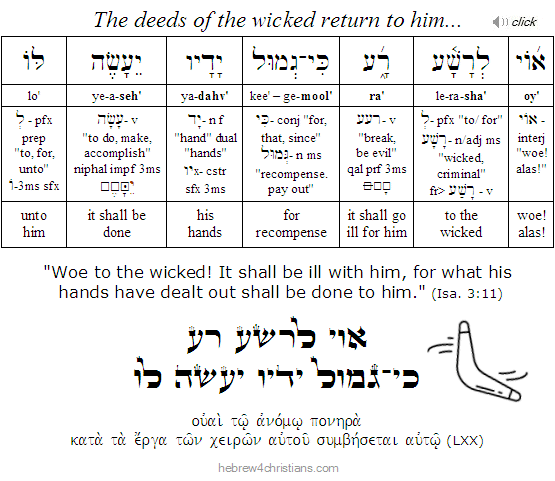 |
We can only find salvation through the consciousness of our own sin and need for deliverance, and any attempt to enter by another way is treason against the message of the cross of Messiah. This is the "terrible struggle" with the Eternal – with God and oneself – as we let go and die to the self-life; as we surrender and engage God's truth – which again is not found by mere intellectual assent, but by an act of will, by teshuvah, by faith, and by learning to find faith despite yourself along the way. The LORD "dwells" with one who is of a contrite and lowly spirit (Isa. 57:15), he "tabernacles" within the heart of the poor in spirit, with those who mourn over sin and who hunger and thirst for His righteousness...
Faith in the Unseen Good...

[ The following is related to this week's Torah reading, parashat Beha'alotekha... ]
06.11.20 (Sivan 19, 5780) From our Torah this week (i.e., Beha'alotekha) we read: "At the command of the LORD they camped, and at the command of the LORD they set out" (Num. 9:23). This teaches us that God's Name is to be heeded every step of the way. Whenever we journey someplace, near or far, say, "With God's help (בעזרת השם) I am going to this place, and I will stay for so long, if it pleases God (אם ירצה השם)." As James the Righteous reminds us, "You do not know what tomorrow will bring. For what is your life? You are a mere mist that appears for a little time and then vanishes (James 4:14-15). "Man is like a breath; his days are like a passing shadow" (Psalm 144:4). We share exile with the LORD in this age, as strangers and sojourners with Him; indeed, our lives are hidden with Him, waiting to be revealed (Col. 3:1-4). "The present form (τὸ σχῆμα) of this world is passing away" (1 Cor. 7:31), and the heart of faith looks for a city whose designer and builder is God Himself (Heb. 11:10). "So we do not lose heart... For the things that are seen are turning to dust, but the things that are unseen endure forever" (2 Cor. 4:16-18).
בכל־דרכיך דעהו
והוא יישׁר ארחתיך
be·khol - de·ra·khey'·kha · da·ei'·hoo
ve·hoo · ye·ya·sheir · or·cho·tey'·kha

"In all your ways know Him,
and he will direct your paths."(Prov. 3:6)

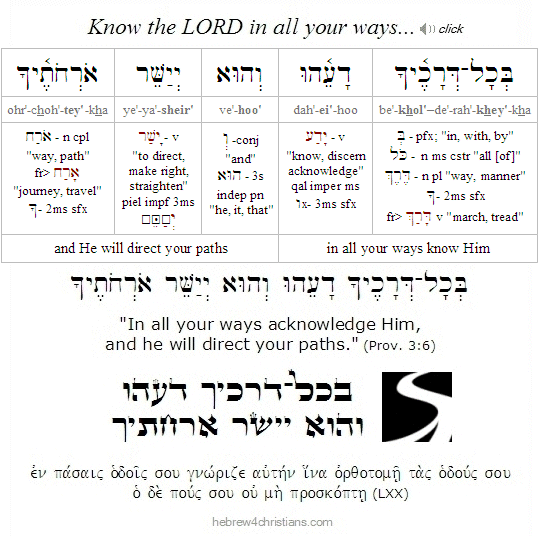
"In all your ways know Him," that is, in all that you put your hand to do respect the Lord and ask for divine guidance (1 Cor. 10:31). As King David stated, Shiviti: "I have set the Lord always before me, because He is at my right hand, I shall not be moved" (Psalm 16:8). "Do do be wise in your own eyes, fear the LORD and turn away from evil" (Prov. 3:7).
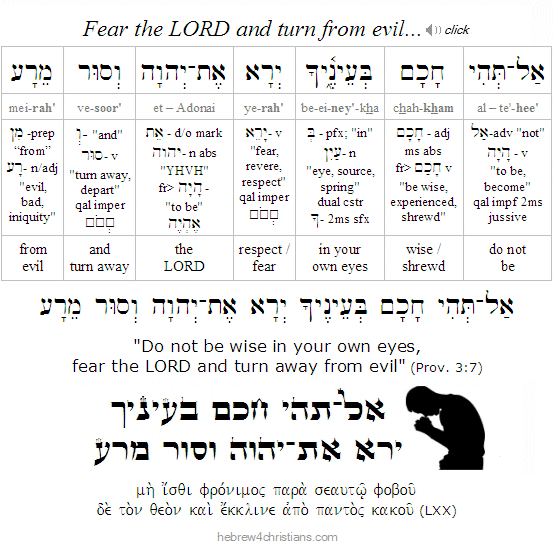 |
"Let your tongue acquire the habit of saying, 'I do not know,' so that you are not led to lie" (Berachot 4a). We have to learn that we don't always know the answer, and that often enough we don't even know the meaning of the question being asked... This is a matter of honesty. Accepting our limitations enables us to humbly ask God for help as we walk by faith. "The Spirit helps us in our weaknesses. For we do not know (οὐκ οἴδαμεν) what to pray for as we ought, but the Spirit intercedes for us with groanings too deep for words" (Rom. 8:26). We groan in hope... It is a blessedness to be free from the need to be seen, to be approved by others, to feel like we always have to be "right," to manage appearances, and so on. God opposes the proud, but his Spirit (רוּחַ) rests upon the lowly, the humble of heart. He opposes (i.e., ἀντιτάσσομαι, from ἀντί, "against" + τάσσω, "set, ordains") the proud and makes their way full of thorns and trouble... Therefore humility (i.e., anavah:עֲנָוָה) is considered one of the greatest of middot ha-lev (heart qualities). As it is written, the high and lifted up One dwells with the broken and lowly of spirit, to revive the spirit of the lowly and to revive the heart of the crushed (Isa. 57:15).
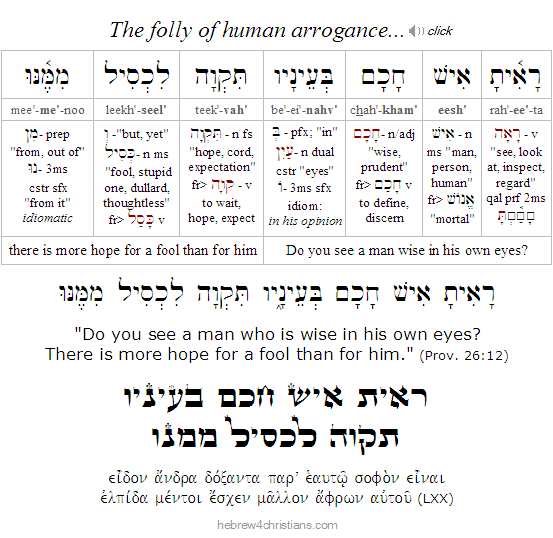 |
 |
 |
Thy Kingdom Come...

06.10.20 (Sivan 18, 5780) Followers of Yeshua must be "theocratic" in their focus, as our Lord himself was. He taught us to pray: "Thy kingdom come; Thy will be done, on earth as it is in heaven" (Matt. 6:10). The kingdom of God (מלכות האלהים) rules in the hearts of Messiah's true followers, and those who espouse anarchy (ἀνομία) adhere to the devil's doctrine ("do what thou wilt"). God's curse is on all those who seek to eat from the "tree of the knowledge of good and evil," that is, those who define good and evil in their own terms, disregarding the revelation of Torah, and who desire to do only what they think is right "in their own eyes." In the end, every knee shall bow and every tongue will confess the truth about Reality, friends... That day is coming soon.
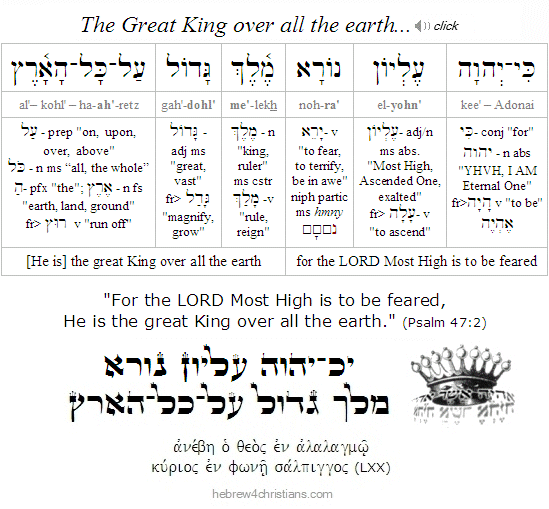 |
In order to say, "thy kingdom come, thy will be done" you must let go of your own agenda; your ego must be deposed from its petty little kingdom... Likewise, you can't say, "Come, Lord Jesus" by putting your fear first, or by otherwise demanding that your life should center on your own personal "advent." No, you must consciously choose to live in exile to this world (Gal. 6:14). How can we ever expect the LORD to live out His life through us if we do not genuinely offer our lives to Him? And yet this is exactly the problem of the ego...
A principle of spiritual life is that we descend in order to ascend, or the "the way up is the way down." As Yeshua said, "Whoever would be first among you must be slave of all" (Mark 10:44). Becoming nothing (i.e., ayin) in this world is the condition for seeing something in the world to come. But we become nothing by trusting in the miracle, not by trying to efface ourselves... This is not another venture of the ego. Life in the Spirit means trusting that God will do within you what you cannot do for yourself... We can only take hold of what God has done for us by "letting go" of our own devices (Phil. 2:13). When we really let go and trust, we will become nothing (i.e., klume:כְּלוּם), carried by the Torah of the Spirit of life. The way is not trying but trusting; not struggling but resting; not of clinging to life, but of letting go...
"So-called pious people are unfree. They too lack the authentic certitude of inwardness. That is why they are so pious! And the world is surely justified in laughing at them. If, for example, a bowlegged man wants to be a dancing master but is not able to execute a single step, he is comical. So it is also with the multitudes who are so religious. Often you can hear the pious beating time, as it were, exactly like one who cannot dance but nevertheless knows enough to beat time, yet who are never fortunate enough to get in step. In order to reassure themselves, the pious seize upon grandiose ideas that the world hates. They battle ideas, but not with their lives. Such is the life of those who lack inwardness." - Kierkegaard (Journals)
This is another example of the difficulty of truly trusting God for the miracle, of genuinely receiving the miracle... Some people scorn the idea of "easy believism," though of course there is nothing at all "easy" about exercising true faith in the LORD and living the truth in our lives. We need the miracle; we need grace from heaven to impart real passion for us to walk according to God's heart.
Teshuvah and Transformation...

06.10.20 (Sivan 18, 5780) Our Lord taught that teshuvah (תְּשׁוּבָה), or "repentance," is more like spiritual rebirth than moral reformation: "Unless you are born from above (ἄνωθεν), you cannot see the kingdom of God" (John 3:3). This implies that we experience a radical shift in the way we "live and move and have our being" (Acts 17:28). The Greek word metanoia (μετάνοια) comes from a verb that means more than simply "changing your mind," but rather refers to the process of being transformed, or "metamorphosized," into a new kind of being -- like a worm that is changed into a butterfly that takes to the bright sky. Teshuvah, then, means turning (i.e., shuv: שׁוּב) to receive your new identity, your new life, in Messiah. To "repent" is to escape from the default mode of fallenness to enter into a new realm of existence itself. It is an abandonment of the old life and nature – those self-serving assumptions driven by fear – so that we can walk in wonder and newness of life. So renew your minds and be tender at heart. Though the outer may self waste away, the inner self is divinely empowered and sustained for this very day and hour (2 Cor. 4:16; Psalm 73:26).
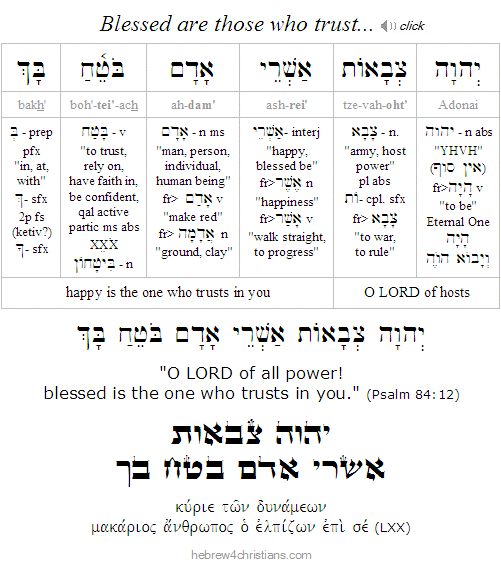 |
 |
The Eyes of the LORD...

06.10.20 (Sivan 18, 5780) There is an old story told of how the Baal Shem Tov once hired a wagon driver to take him to a nearby village. On the way, the two men soon passed by a field laden with luscious produce. The wagon driver stopped the wagon, turned to the Baal Shem Tov - whose identity he did not know - and said with a wicked grin, "I'm going to fetch us some good vegetables from that field now. You be on the lookout. Call out if you see anyone coming!"
Just as the driver bent down to pick some vegetables, the Baal Shem Tov screamed, "We're seen! We're seen!" The frightened man then ran back to the wagon and raced away. After traveling some distance he turned around and realized that no one was following them. "Why did you call out like that?" he angrily chided the rabbi. "There was nobody watching." The Baal Shem Tov then pointed upward and said: "God was watching; God is always watching." As our Scriptures teach: "The eyes of the LORD are in evey place, observing the evil and the good" (Prov. 15:3).
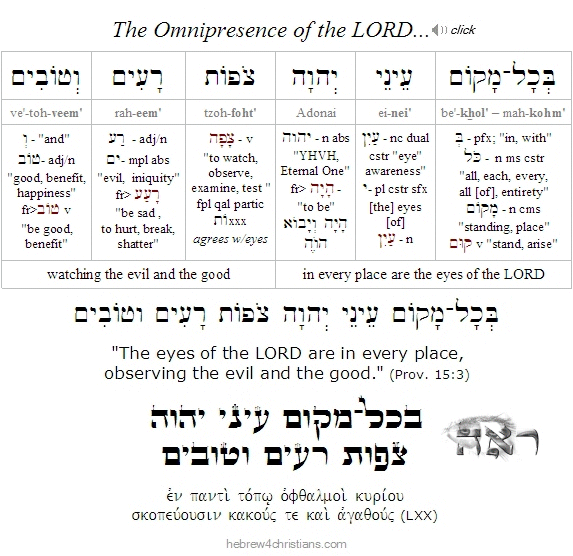 |
Each soul born into this world is required to believe that God exists and is personally knowable (Rom. 1:19-20), that we are always in His presence (Prov. 15:3; Psalm 94:9; 139), that He knows all things (Psalm 147:5), and absolutely nothing can be hidden from Him (Isa. 40:28; Jer. 23:24; Heb. 4:13). When we sin, however, we "break from" reality and deny the divine Presence by a perverse act of self-exaltation. Whenever we imagine that we are unseen by God or whenever we "forget" that we live, move, and have our being in His presence, we are denying reality... Our sin causes us lose sight of what's real: we forget who God is; we forget who we are; and we exile ourselves from the Source of life... Surely sin is a form of insanity, and therefore we have a moral and spiritual obligation to think clearly and to value truth.
As Rabbi Judah would say, "Contemplate three things, and you will not come to the hands of transgression: Know what is above from you: a seeing eye, a listening ear, and all your deeds being inscribed in a book" (Pirke Avot 2:1). Therefore "fear God and keep his commandments, because this is the whole duty of man. For God will bring every deed into judgment, with every secret thing, whether good or evil" (Eccl. 12:13-14).
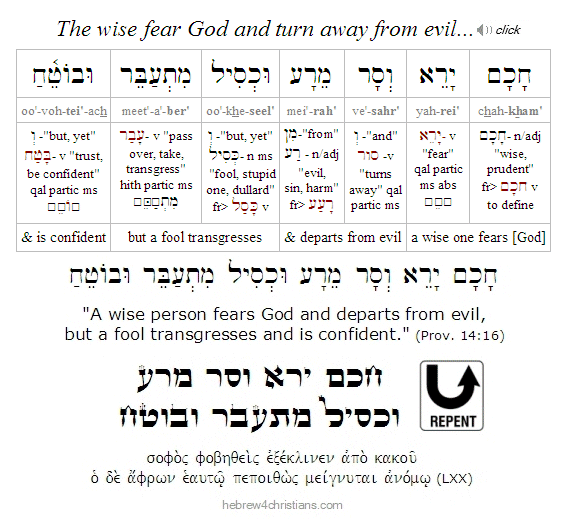 |
 |
Life in Perilous Times...

06.10.20 (Sivan 18, 5780) The Scriptures foretell that the time before the prophesied End of Days would be "perilous" (χαλεπός) and full of moral depravity: "Understand this, that in the last days perilous times (καιροὶ χαλεποί) shall come" (2 Tim. 3:1). In the entire New Testament, the only other place we find this word translated "perilous" (i.e., χαλεπός) is in Matthew 8:28, where it describes savage demonic activity. Indeed, the word likely comes from a Greek verb (χαλάω) that means "to let down from a higher place to a lower," thereby creating a sort of spiritual "chasm" or rift, which again suggests that Satan's activity will be unleashed upon the earth. In the "End of Days," then, a wave of fierce demonic activity will appear upon the earth that will menace and terrorize others. If you can stomach reading the daily news, you will see that this peril is a regular feature of our world today.
Are we then to be in dread of these things? No. "There is no fear in God's love" (φόβος οὐκ ἔστιν ἐν τῇ ἀγάπῃ). God gives truth and grace to help us navigate our difficult situation; he understands the character of the times in which we live... Notice that the Greek word translated "times" in the phrase "perilous times" (καιροὶ χαλεποί) is also translated "appointed times" (מוֹעֲדִים) throughout the Scriptures. In other words, God has appointed this time to be one of judgment upon the world system, and we are here forewarned so that we can speak the truth and offer healing to others who seek deliverance... The Lord will never leave us nor forsake us; He will shelter us in Goshen (גּשֶׁן, lit. "drawing near") before the hour of his wrath; He will walk with us through the waters, and through the fires (Isa. 43:2). Our Lord knows how to calm the storms around us...
 |
Let us be careful to whom we listen and accept as our moral and spiritual authority. The latest "news" and gossip of this evil world is inherently deceptive, a carefully crafted dialectic of social engineering devised by Satan that is intended to divide people into warring factions in order to enslave them to their fears. We are not to follow the madness of the crowd or be victims of such devices (1 Pet. 5:8-9). Indeed the "news" of this false world (עולם שקר) is a lie, collectively considered, since it (i.e., the "script writers" of the major news outlets) illicitly assume that there is no God, there is no salvation in Messiah, no judgment to come, etc., and that people are therefore helpless and must rely on their own devices...
The irony in all of this is that there is indeed a "dialectic" of the Spirit in motion, a dialectic that will make the various conflicts of this world look like a "tempest in a teapot" in comparison. The great day of the LORD approaches, and the elements will all be burned with fervent heat, as it is written: "But the Day of the LORD (יוֹם־יְהוָה) will come like a thief, and then the heavens will pass away with a horrific roar, and the heavenly bodies will be burned up and dissolved, and the earth and every deed done on it will be laid bare" (2 Pet. 3:10). As was also foretold in our prophets: "Lift up your eyes to the heavens, and look at the earth beneath; for the heavens vanish like smoke, the earth will wear out like a garment, and they who dwell in it will die in like manner; but my salvation will be forever, and my righteousness will never be dismayed" (Isa. 51:6). Instead of giving credence to the fearmongering and propaganda of this godless and insane world, we must follow the LORD God Almighty and to submit to His leadership despite the madness that surrounds us. Amen, and may God give us greater grace and wisdom for these desperate days...
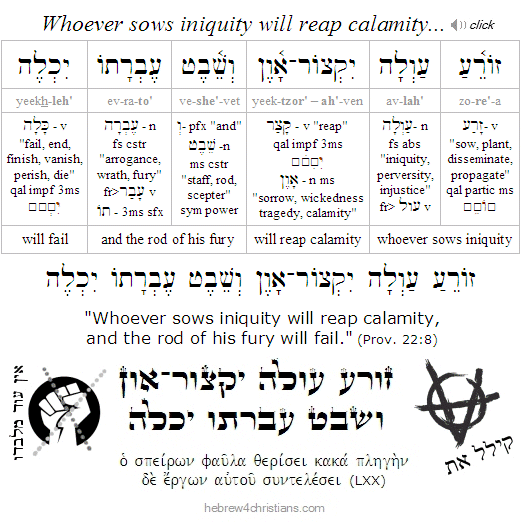 |
Note: The two images on the graphic above are not "Black Lives Matter" symbols, as someone suggested to me. The one on the right is the "anarchy" symbol, which I flipped upside down to indicate that it is an evil doctrine; the second is the pumped fist, a common symbol used by any number of agitprop groups such as "Antifa" that call for violence to promote "justice," etc. That's why I put an "X" over it (the Hebrew text next to it says "There is no power apart from God"). It should be clear to all of God's children that God's law (Torah) is essential and therefore anarchy is wrong; and that we are not to use violence to promote a good end, but on the contrary we overcome evil with lovingkindness and good (Rom. 12:21). Racism and bigotry are evil things, of course, but what "color" is the image of God in us all?
Foundation Stone of Reality...
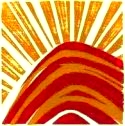
06.09.20 (Sivan 17, 5780) As followers of Yeshua, we no longer find our identity in this world but rather through our spiritual union with our ascended LORD (Gal. 2:20; 6:14; Eph. 1:3; 2:6)... Therefore we are instructed to "seek the things that are above (τὰ ἄνω ζητεῖτε) where the Messiah is seated at the right hand of God," and focus our thoughts on the things above - not on things here on earth - for we have died, and our lives have been hidden (κέκρυπται) with Messiah in God. When the Messiah, who is our life, appears, we too will appear with him in glory" (Col. 3:1-4). It is a spiritual decision to "seek first the kingdom of God" (Matt. 6:33), which means that we must attach ourselves to God, esteeming the unseen and the eternal as more real than the seen and the temporal (2 Cor. 4:18).
Turn away therefore from worldly news and gossip; these affairs are empty, vain, and devoid of ultimate significance; instead redirect your thoughts toward heaven. Understand that you belong to God and that your true home is in the world to come. Affirm this truth over and over until it becomes a part of your daily soul... Put away from you the "old nature" – all those labels and judgments that used to define you - and open your heart to the radiance and peace of God instead (Col. 3:15). As it is written: "You will keep in perfect peace (i.e., שלום שלום, "the peace of peace") the one who leans on you, because he trusts in you. Trust in the LORD forever and ever, for in Yah the LORD (יה יהוה) is the Rock of Ages" (Isa. 26:3-4):
יצר סמוך תצר שלום שלום
כי בך בטוח
בטחו ביהוה עדי־עד
כי ביה יהוה צור עולמים
ye'·tzer · sa·mookh · tee·tzohr · sha·lom · sha·lom
kee · ve·kha · ba·too'·ach
beet·choo · vadonai · a·dei-ad
kee · be·Yah · Adonai · tzoor · o·la·meem

"You will keep in perfect peace the one who leans you,
because he trusts in you. Trust in the LORD forever,
for in Yah the LORD is the Rock of Ages." (Isa. 26:3-4)

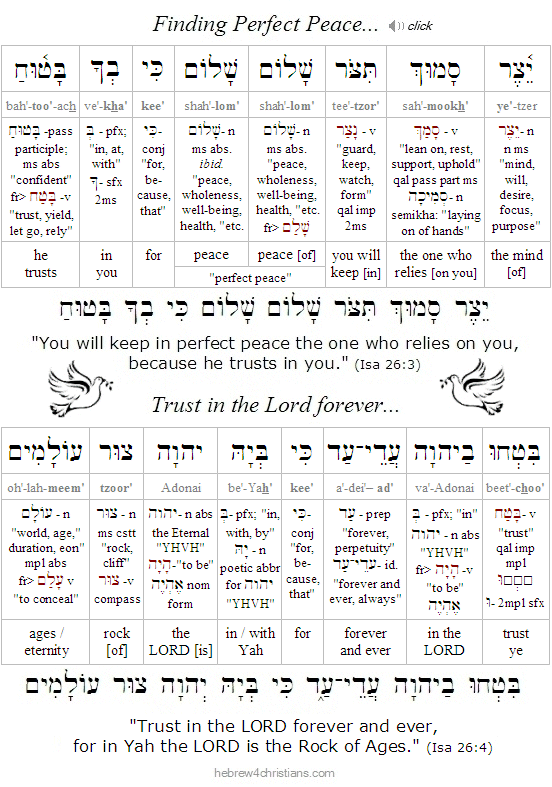
Finding Right Desire...

06.09.20 (Sivan 17, 5780) Our Torah portion this week (i.e., Beha'alotekha) recounts the rebellion of the people just after they left Mount Sinai for the Promised Land (Num. 11:1). Instead of joyfully anticipating their promised inheritance, however, the people grew dissatisfied and bored with the prospect of the journey before them. The Sefat Emet noted that just after the people complained to the LORD, they had a "strong craving" (הִתְאַוּוּ תַּאֲוָה), which in Hebrew literally means they "craved a craving" (Num. 11:4). Moses could tolerate the people's desire for food and water, but when they began to actively cultivate their cravings, lusting after the imaginary "free fish" they enjoyed in Egypt (Num. 11:5), he began to realize that the problem was deeper, a matter of the heart... Moses understood that what the people really wanted was impossible, since it involved denying who they were as God's redeemed people. The issue was not about wanting "meat" to eat, after all, but rather hungering after the forbidden, desiring to desire, etc. Creating desires, fomenting a sense of deprivation, and choosing to see yourself as a victim, is a lethal sickness of spirit, a disease of the soul. It is a "burning" (i.e., taberah: תַּבְעֵרָה) that destroys inner peace (Num. 11:3). May God help us understand and seek what truly matters; may he deliver us from self-destruction; and may he help us to be satisfied with the manna he provides. Amen.
Note: For more on this see: "Graves of Craving: Further thoughts on Beha'alotekha."
Opening your Heart...

06.09.20 (Sivan 17, 5780) The Hebrew name for the Lord is YHVH (יהוה), an utterly unique word that means "God is Present" (Exod. 3:14) and "God is Love" (Exod. 34:6-7). The Name is first mentioned when the LORD God breathed nishmat chayim (נשמת חיים), the "breath of life" into Adam (Gen. 2:7), and indeed, each of the four letters of the name are vowel sounds, which suggests that God's Spirit is as close as our very next breath. Yeshua likened the Ruach (רוּחַ), or Spirit, with the inscrutable motions of the wind: "The wind blows where it wishes, and you hear its sound, but you do not know where it comes from or where it goes. So it is with everyone who is born of the Spirit" (John 3:8). Just as the wind cannot be seen but encompasses us, so the Spirit of God surrounds and fills us (Acts 17:28). Therefore we see how Yeshua breathed on his followers and said, "Receive the Holy Spirit" (John 20:22).
Allow God to love you. There is nothing left for you to do other than to open your heart and receive. "It is finished," were Yeshua's last words from the cross, meaning, "It has been perfected – it is complete and present for you; there is nothing left to add." Therefore never, ever, give up hope; never believe that you are beyond the reach of God's love. Even in your worst moments, and despite your character defects and your many sins, God's sees what is beautiful and worthy of redemption in you. Yeshua stands at the door and knocks, asking for you to open the door of your heart to receive his love (Rev. 3:20).
When we open our hearts to God's love and Presence, we are set free from the need to justify ourselves or to be approved of by others; we can let go of our fear of rejection and our hopeless perfectionism because we no longer need the acceptance or approval of others to find our worth. God's love sets us free from the trap of comparing ourselves to others, and we are free to "accept that we are accepted" for who we are.
It is a terrifying possibility that we can disallow what we need most of all, and that we can choose the self-imposed exile of a loveless and tragic existence. God forbid that we should miss God's heart for us! Above all, then, we must repent of our self-hatred, of self-abuse, and we must forever repudiate the lie that we are unable to be truly loved and accepted by God... We must begin first of all with God's unconditional love for us revealed at the cross of Messiah, and only then we can move forward spiritually.
May the Lord help us open our heart to His Presence this very hour. Amen.
 |
Do not lose heart...
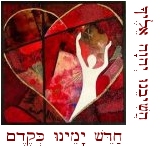
06.08.20 (Sivan 16, 5780) I know many of you are in pain, struggling to hang on to hope, waiting for the fulfillment of the promise of your salvation in Yeshua. Keep the fire of your heart burning, friend... Rabbi Nachman once told a person who was struggling with his faith: "It is written that all creation was brought into being because of people like you. God saw there would be people who would cling to our holy faith, suffering greatly because confusion and doubt would plague them. God perceived that such would overcome these doubts and troubles of heart and remain strong in their belief. It was because of this that God brought forth all creation." Amen. Never yield to despair, since that leads to further darkness and fear. Press on and keep fighting the "good fight" of faith (1 Tim. 6:12). Remember that you infinitely matter to heaven; your life has great value; you are significant and you are truly loved by our Heavenly Father. There is a "future and a hope" reserved for you; there is "a white stone, and on that stone will be written a new name that no one can understand except the one who receives it" (Rev. 2:17). May "the trial of your faith, being much more precious than of gold that perishes, though it be tested with fire, be found to result in praise and glory and honor at the revelation of Yeshua the Messiah" (1 Pet. 1:7).
כִּי אָנכִי יָדַעְתִּי אֶת־הַמַּחֲשָׁבת
אֲשֶׁר אָנכִי חשֵׁב עֲלֵיכֶם נְאֻם־יְהוָה
מַחְשְׁבוֹת שָׁלוֹם וְלא לְרָעָה
לָתֵת לָכֶם אַחֲרִית וְתִקְוָה
kee · a·no·khee · ya·da'·tee · et – ha·ma'·cha·sha·voht'
a·sher · a·no·khee · cho·sheiv · a·ley·khem · ne·oom – Adonai
mach·she·voht · sha·lom · ve·lo · le·ra·ah
la·teit · la·khem · a·cha·reet · ve·teek·vah

"For I know the plans that I have for you, declares the LORD,
plans for blessing and not for evil, to give you a future and a hope."
(Jer. 29:11)

Hebrew Study Card
"I am sure of this, that he who began a good work in you will bring it to completion (ἐπιτελέω) at the Day of Yeshua the Messiah" (Phil 1:6). The LORD is able to guard you (φυλάξαι) from stumbling and to present you blameless before the presence of His glory with great joy (Jude 1:24). "The LORD upholds all who are falling and raises up all who are bowed down" (Psalm 145:14). "He will sustain you to the end, guiltless in the Day of our Yeshua the Messiah" (1 Cor. 1:8). He who calls you is forever faithful; He will surely do it (1 Thess. 5:24). Yea, "the Lord is faithful (נֶאֱמָן הוּא): He will establish you and guard you against the evil one" (2 Thess. 3:3). The Spirit says, "Fear not, for I AM with you always" (Isa. 41:10).
Resisting the Darkness...

06.08.20 (Sivan 16, 5780) The Spirit states that in acharit ha'yamim (אחרית הימים), the latter days, people will have "seared consciences," that is, a moral sense that is rendered unresponsive, numb, and unfeeling... People will be unable to discern the significance of moral and spiritual reality, thereby silencing any qualm of moral protest. We see this today in our scandal-saturated culture, as politicians brazenly lie with impunity and moral anarchy is openly celebrated. We must be careful not to heed the devil's logic of compromise, that "dialectic" that denies transcendental moral reality by pretending that truth can only be defined by the exigencies of the hour and its desire. "The world passes away and the lusts thereof..." (1 John 2:17). We must consciously remind ourselves that the LORD God of Israel does not endorse sin, regardless of any supposed political benefit given to the world at large, and that the end never justifies the means. God is not a pragmatist, and there are no "noble lies" for sake of the Kingdom of Heaven...
Martin Buber once said, "What is accomplished through lies can assume the mask of truth; what is accomplished through violence can go in the guise of justice, and for a while the hoax may be successful. But soon people realize that lies are lies at bottom, that violence is violence - and that both lies and violence will suffer the destiny history has in store for all that is false." As Yeshua himself said, "For this purpose I was born and for this purpose I have come into the world -- to bear witness to the truth. Everyone who is of the truth listens to my voice" (John 18:37). "Blessed are those who wash their robes, so that they may have the right to the Tree of Life and that they may enter the city by the gates. Outside are all those who love and practice the lie..." (Rev. 22:14-15).
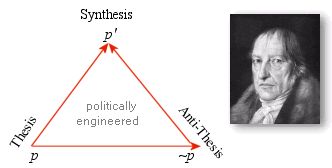
Does the End Justify the Means?
In the realm of ethics, a basic problem with "means-to-end reasoning" is defining what is meant by "the good." It simply begs the question to say that what is "right" is that which brings about the desired outcome, since we must still explain why one outcome is more "desirable" than another. Political zealots have always defended their barbarity by claiming that it was for the sake of "a better world" or for a "greater good." Indeed the Antichrist will be a big believer that the "ends justify the means" as he employs global deception and global enslavement for the sake of his perverted vision of utopia.
The Scriptures state that we do not "discover" what is right (צדיק וישר) by means of experience alone, but rather we bring to experience an intuitive sense of moral value and truth that is imparted to us by virtue of being created be'tzelem Elohim (בצלם אלוהים) - "in the image of God" (Rom. 2:15). This is the "moral compass" of the conscience - an inner awareness (מודעות פנימית) of what is right and what is wrong. The Apostle Paul condemned the pragmatic thought, "let us do evil that good may come" (Rom. 3:8), which means he rejected the supposition that we can disregard the moral quality of our methods for the sake of a good end. Tragically people may think they are doing "many wonderful works" in God's name, and their goals may indeed be good, but the Lord will say to them, "Depart from me, you who practice lawlessness," because they are not doing according the will of the Father (Matt. 7:22-23). Therefore even when the cause is good, we must still walk out everything else God specified. As it is written: "Do not be overcome by evil, but overcome evil with good" (Rom. 12:21). We cannot bring good out of evil, but tzedek, tzedek tirdof (צדק צדק תרדף), "justice through justice you shall pursue" (Deut. 16:10).
"Let the evildoer still do evil, and the filthy still be filthy, and the righteous still do right, and the holy still be holy" (Rev. 22:11; see also Dan. 21:10; Matt. 7:16-20, Matt. 15:4). "Sow an act - reap a habit: sow a habit - reap a character: sow a character - reap a destiny."
 |
 |
Parashat Beha'alotekha - בהעלתך

06.07.20 (Sivan 15, 5780) Shavuah Tov, chaverim. Our Torah portion for this week, called "Beha'alotekha" (i.e., Num. 8:1-12:16), begins with God giving instructions about how Aaron was to service the lamps of the Menorah within the Holy Place of the Tabernacle (Num. 8:1-4). Each day Aaron was to clean each of the seven lamps and to refill them with the very purest olive oil. The wicks were then to be bent so that the six outer lamps shined toward the seventh (and central) shaft. The lamps were to be lit daily, "from evening until morning," in a specific sequence - starting from the central lamp (the shamash) and then moving right to left (Exod. 27:21). According to the Talmud (Shabbat 22b), while all the lamps received the same amount of olive oil, the central lamp miraculously never ran out of oil, even though it was kindled first in the sequence. This miracle is also reported to have occurred during the Temple period, though it abruptly ended about 40 years before the destruction of the Second Temple (c. 30 AD), after the death of Yeshua the Messiah, the true Servant and Branch of the LORD. As it is attested in the Talmud: "Our Rabbis taught: During the last forty years before the destruction of the Temple the lot ['For the Lord'] did not come up in the right hand; nor did the crimson-colored strap become white; nor did the centermost light shine" (Yoma 39a).
The portion then describes how the Levites were to be set apart for service at the Mishkan or "Tabernacle" (Num. 8:5-12). In a ritual ceremony that signified a sort of "rebirth," the Levites were first sprinkled with mei hachatat (מי חטאת), literally, "the waters of sin" (Num. 8:7), that is, holy water mixed with the ashes of the red heifer that was used to purify from contamination with death (Num. 19:13). Next they shaved off all their hair and were completely immersed in a mikveh (i.e., a bath containing flowing or "living" water). Notice that the steps of being sprinkled with purifying water, shaving off of all the hair, and being completely immersed in a mikveh were similar to the ritual for the cleansing of the metzora, or "leper" (Lev. 14:2-32). Rashi notes that each member of the community was then required to place their hands on the Levites' heads, just as the hands were placed on the head of a sacrificial animal as it was slaughtered before the altar (Num. 8:10; Lev. 1:4, 3:2). The "waving" of the Levites by the High Priest likewise simulated the ritual of "tenufah" (תנופה), that is, the waving of the guilt sacrifice (asham) offered by the leper after his cleansing (Lev. 14:12). Finally, the Levites themselves laid their hands on the sin and whole burnt offerings for atonement before the LORD (Num. 8:12).
Note: Some themes for this week's Torah include: the Divine Light; the need for purification from sin; being priests to one another; the call for holiness in the divine service; the Shekhinah glory and Presence of God; the direction and leading of God; times of assembly and times of alarm, the journey through desert places, the problem of murmuring; living by daily bread; the importance of elders; lashon hara and exile from the camp, among others.
Cries from the heart...

06.05.20 (Sivan 13, 5780) Yeshua taught us to be focused and to refrain from using "vain repetitions" (i.e., βατταλογέω - "babbling words") in our prayers, since our Father knows what we need before we ask Him (Matt. 6:7-8). What He wants is "us" - all our heart and hunger for life - not some formula or recipe of words to appeal to him. Don't worry about the verbiage of your prayers, then, but attend to the inner groan of your heart (Rom. 8:26). "When you pray, rather let thy heart be without words than thy words be without heart" (John Bunyan). Ultimately prayer is a kind of teshuvah (תְּשׁוּבָה), a word often translated as "repentance," though it's more accurately understood as turning (shuv) to God in response to His call. Sometimes you just come and present yourself in God's presence, without words, without requests... You just sigh, or let your heart groan in silence. The point, of course, is that you come to the Lord to do real business with Him, not to play games or to offer "lip service." Are we really "showing up" when we pray?
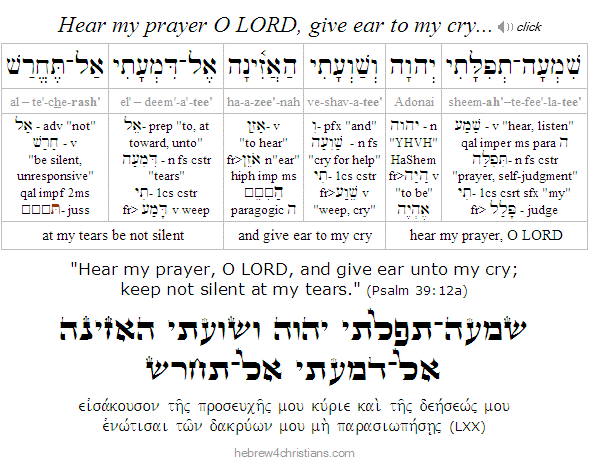 |
In times of trouble we need "endurance," or what the New Testament calls hupomone (ὑπομονή), a word that means "remaining [μένω] under [ὑπο]" the Divine Presence while being tested. We need kavanah (כוונה) - the will to believe, the resolution to stay constant, and the ability to breathe out simple "breath prayers" for help: "God have mercy..." "Help me, O God..." "I need Thee, O Lord..." Such prayers flow straight from the heart. When we receive grace to faithfully suffer, we hear the Spirit whispering back to us: "Be not afraid..." "Live in me..." "Walk in the light..." "I am with you always..." "You are loved..."
רפאני יהוה וארפא הושׁיעני ואושׁעה
כי תהלתי אתה
re·fa·ei'·nee · Adonai · ve·ei·ra·fei
ho·shee·ei'·nee · ve·ee·va·shei'·ah · kee · te·hee·la·tee · a'·tah

"Heal me, O LORD, and I shall be healed;
save me, and I shall be saved, for you are my praise."
(Jer. 17:14)
Download Study Card

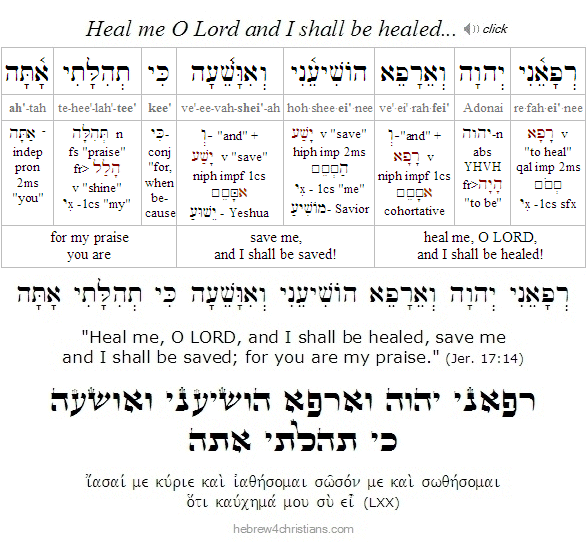
Healing from hidden faults...

06.05.20 (Sivan 13, 5780) All of us have unhealed parts, "hidden faults" (נסתרות) of which we are not fully aware. Therefore king David prayed, "Who can discern his errors? cleanse me from secret faults" (Psalm 19:12). We are cleansed by confession, that is, by looking within our hearts to uncover deeper motivations... If we are honest with ourselves we may discover, for example, that we are angry or fearful people, despite how we otherwise wish to regard ourselves. If you find yourself unable to let something go, for instance, some pain or failure of the past, remind yourself that you must do so if you want to move on with your life. Focusing on how things could have been different is to be enslaved to the past. The goal of teshuvah (repentance) is to turn us back to God for life, but to do this, we must be willing to let go of what makes us sick.
Note that the Hebrew word translated "errors" (i.e., שְׁגִיאוֹת) comes from a root word (שָׁגָה) that means to wander, stray, or transgress. The question raised by David is rhetorical: "Who can discern his errors?" No one – apart from divine intervention... David asked to be cleansed from his "secret faults," which are not those that were performed by him "in secret," but rather those that were unknown, unseen, and unconscious to his own sense of awareness. These are "mindless" sins, unthinking offenses, hidden dispositions, character defects and actions that a person unwittingly performs, perhaps because of deep forces of which he was oblivious. These are the "secret sins" set in the light of God's face (Psalm 90:8); the "sluggish darkness" of the human heart that leads to death and ruin: "The heart is deceitful above all things, and incurably sick; who can understand it?" (Jer. 17:9). How many of us, after all, are fully aware of what we are doing when we are doing something? How many of us are completely transparent both to ourselves and before God, with no unclear motives, etc.? We must always be vigilant... There is always the force of habit, or the subconscious desires or conflicts of the inner life, that work on us, not to mention the trauma of our past and the present devices from the enemy of our souls. May the LORD give us the willingness to be healed, even if there are parts of ourselves that seem to resist that healing. Amen.
 |
The Insanity of Sin...

[ The following is related to this week's Torah reading, parashat Naso ("lift up!")... ]
06.04.20 (Sivan 12, 5780) Again from our Torah for this week (i.e., parashat Naso) we read, "If any... goes astray and breaks faith..." (Num. 5:12). The sages comment that the Hebrew for "goes astray" (i.e., tisteh: תִשְׂטֶה) is written so it may also be read as "goes insane" (i.e., tishteh: תִשְׁטֶה), and concludes that sin is a form of insanity, that is, a denial of what is real, and therefore a state of delusion. We are required, of course, to believe that Ultimate Reality is personal, that God is knowable (Rom. 1:19-20), that we are always in His presence (Prov. 15:3; Psalm 94:9; 139), that He knows all things (Psalm 147:5), and nothing can be hidden from Him (Isa. 40:28; Jer. 23:24; Heb. 4:13), but when we sin, we "break from" this reality and deny the divine Presence by a perverse act of self-exaltation. Whenever we imagine that we are unseen by God or whenever we "forget" that we live, move, and have our being in His presence, we are denying reality. Our sin causes us lose sight of what's real: we forget who God is; we forget who we are; and we exile ourselves from the Source of life... Surely sin is a form of insanity, and therefore we have a moral and spiritual obligation to think clearly and to value truth.
 |
Receiving what we give...
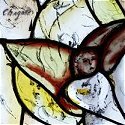
[ The following is related to this week's Torah reading, parashat Naso ("lift up!")... ]
06.04.20 (Sivan 12, 5780) From our Torah portion this week we read: "Each one shall keep his holy donations (ואישׁ את־קדשׁיו לו יהיו): whatever anyone gives to the priest shall be his" (Num. 5:10). This is the spiritual principle that what we give away is what we possess, and as we measure, so will be measured back to us again (see Luke 6:38). The sages comment that being selfish, acquisitive, and power-hungry are drives common among the animals, but what makes a person unique is the grace to make sacrifice for others. Giving tzedakah, then, is an inherently spiritual act, and ultimately only that which we give to others in love will be kept as holy. "For where your treasure is, there your heart will be also" (Matt. 6:21).
מלוה יהוה חונן דל
וגמלו ישׁלם־לו
mal·veh · Adonai · cho·nein · dal
oo·ge·moo·loh · ye·sha·lem - loh

"Whoever is generous to the poor lends to the LORD,
and He will repay him for his kindness."
(Prov. 19:17)
Hebrew Study Card
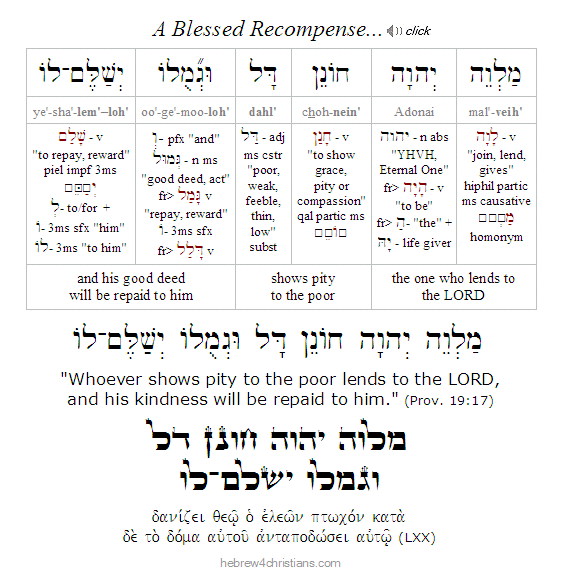
Receiving the Blessing...
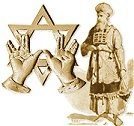
[ The following is related to this week's Torah reading, parashat Naso ("lift up!")... ]
06.03.20 (Sivan 11, 5780) The LORD spoke to Moses, saying, "Speak to Aaron and his sons, saying, 'Thus you shall bless the people of Israel, saying: "May Adonai bless you and keep you from illusions; may Adonai shine divine light upon you; may Adonai reveal his faces to you.' So shall they set my Name upon the people of Israel, and I will bless them" (Num. 6:22-27). The question is asked why the priests were needed to confer God's blessing, and what is meant by the idea of God "setting his Name" upon the people. The sages reply that the blessing is bestowed by a mediator to show that all things flow from the Holy One, and there is no one who can rightly say, "by my strength and my power alone has this come to pass" (Deut. 8:17). Therefore the blessing is graciously given to those who simply open their hearts to receive it: "May Adonai bless you; may Adonai shine divine light upon you; may Adonai reveal his faces to you..." Everything that comes to us comes in God's Name, as it is written: "Every good gift and every perfect gift is from above, coming down from the Father of Lights (אב האורות) with whom there is no variation or shadow due to change" (James 1:17). The blessing of God (ברכת יהוה) is to "bear His Name" by being filled with the strength of His Presence, walking in the flow of His power, completely surrendered to and in union with His will... That is why our Lord Yeshua undoubtedly sang this blessing - in the first person - over his followers when He ascended to heaven (see Luke 24:51).
The Truth about Freedom...

06.03.20 (Sivan 11, 5780) Our Savior says: "You shall know the truth and the truth shall make you free" (John 8:32). Spiritually understood the soul in its natural state is sick, in a state of error and ongoing self-deception. The truth sets us free from our self-imprisonment, from the bondage we have to our illusions, so that we may be healed, transformed and made new. However, knowing the truth is more volitional than it is cognitive – it is revealed in our decisions and actions, not merely in holding to a "true opinion" or assenting to a "true creed." Knowing the truth permeates the whole person – bekhol levavkha – and accepts all the consequences of its decision and passion. There is real danger here, friends. Even learning Scripture and studying theology may become untruth if it is devoid of the fear of the Lord. "How many have asked, 'What is truth?' and at bottom hoped that it would be a long time before the truth would come so close to him that in the same instant it would determine what his duty was to do at the moment?" (Kierkegaard: Works of Love).
The deeper question is whether you actually want genuine freedom, since many are content to "exist" in the cold comfort of their resentments, in the desert of the self-serving ego, and in the wasteland of anger and fear... Self-deception is enticing because it provides an excuse to be mediocre; it justifies a victim mentality and abnegates personal responsibility. It is far easier to blame others for your life than to own the truth about yourself, to walk in the truth, and to seek the blessing of truth. Spiritual freedom means being awakened and empowered to choose the Eternal by denying the present moment's demand to be made absolute. It offers no peace to the natural desire for the soul to return to its sleepy state, but calls and rouses the heart to wake up and confront the demands of eternity...
In heaven there is only the language of truth, and truth is the language of heaven. "If we ask according to his will, he hears us..." (1 John 5:14). This means that words find their traction only in honesty of the heart, in the midst of our deepest need. Only in "fear and trembling" can we talk with God, though when we pray fervently, our words may trail off until we become silent.... But it is there, in the silence of the soul, that we may learn to listen to the Spirit and hear God's voice. When we seek first the kingdom of God, we will lay aside everything else, quiet our hearts, and focus our will. Seeking God in this way is an end in itself, for whatever else we may seek must be subordinated to this greater seeking. "You will seek me and find me, when you seek me with all your heart" (Jer. 29:13).
 |
Dangers of Self-Deception...

06.03.20 (Sivan 11, 5780) We are told in our Scriptures: "Test yourselves to see whether you are in the faith" (2 Cor. 13:5). We are to courageously look at our lives and ask some tough questions. Do you really believe the truth, or are there other motives at work? Is it possible to think that you really believe when in fact you don't? For example, is it possible to think that you are a spiritual person who serves God, but you are mistaken? Tragically it seems that we can "talk ourselves into" believing that we are moral, honest, full of faith, and so on, but our self image does not agree with reality... This is more serious problem than hypocrisy (not believing what we say), since in this case we really do believe that we are something we are not – we are "true believers" in a distorted view of ourselves! This happens all the time. For instance, most people think they are "above average" in intelligence and have a high opinion of themselves. Self esteem is important, of course, but it must be grounded in reality: "For if anyone thinks he is something, when he is nothing, he deceives himself" (Gal. 6:3). Jesus warned, "On that day many (πολλοὶ) will profess to me, 'Lord, Lord, did we not prophesy in your name, and cast out demons in your name, and do many mighty works in your name?' And then will I profess to them, 'I never knew you; depart from me, you workers of lawlessness'" (Matt. 7:22-23). How is such a dreadful outcome possible unless truly religious people can indeed truly fool themselves? By itself, sincerity is no measure of truth, since we can truly sincere, and yet sincerely wrong...
This is a sobering message, friends. We are not to live in fear, though we are indeed to regularly engage in cheshbon nefesh (חשבון נפש), to account for the state of our souls (1 Cor. 11:31). We are often people of "little faith" (Matt. 8:26), and sometimes the only honest thing is to plainly confess, "Lord, I believe; help my unbelief!" (Mark 9:24). As it is written: "The LORD is near to all who call on him, to all who call on him in truth" (Psalm 145:18). In heaven there is only the language of truth, and truth is the language of heaven. We find strength by trusting in love and kindness of God for our eternal good. It is written: "This is the confidence (παρρησία) that we have with Him, that if we ask anything according to His will, he hears us. And if we know that He is hearing us, we also know that He will fulfill the petition of our heart" (1 John 5:14-15). What does God want for you but to know his love? He wants you to walk in the truth, full of love, joy, peace, patience, having a sound mind, free of anxiety, and free of interference from the demonic. We can confidently ask Him for these things because such are assuredly His will for our lives.
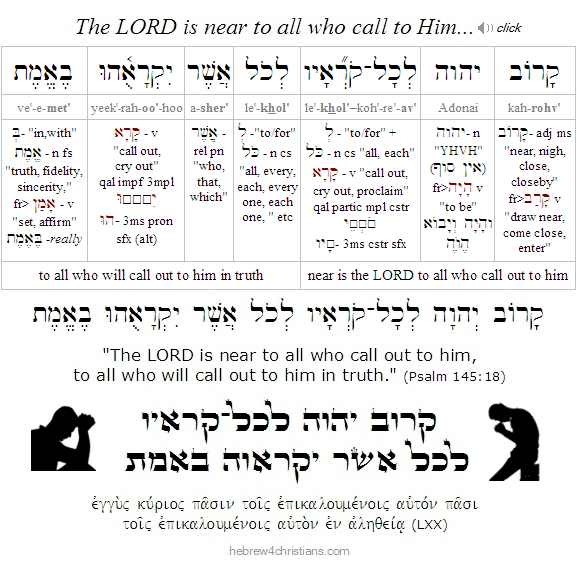 |
Addnendum: Some examples of self-deception include: thinking you are truly humble; regarding yourself as honest or "real"; saying you will pray for someone but "forgetting to do so"; sharing a "prayer concern" for another as a pretext to gossip; thinking you have courage but shrinking away from truth that threatens your self-esteem; thinking you always have to be right or have all the answers; claiming that you are "hearing from God" or that you speak on behalf of the LORD God Almighty (when its clear that you don't); evading responsibility for the needs of other people (including your enemies); blaming others for your problems; pretending that you are thinking for yourself when you are parroting other people's thoughts; flattering yourself that you and God are "buddies" and that He will defend your sinful attitudes, false prophecies, etc. May God help us turn to Him in the truth...
The Time is Now...

06.02.20 (Sivan 10, 5780) The Mishnah says, shuv yom echad lifnei mi'tatakh: "Repent one day before you die" (Avot 2:10), but who knows the day of one's death in advance? Perhaps your name will be called today, ending your "lease on life" in this world. Are you ready? Are you prepared to appear before God your Creator, your Judge, and your Redeemer? Therefore live each day as if it were your last, making sure you seek the things that really matter... "Watch -- for you know neither the day nor the hour..." (Mark 13:33). Today is the day of salvation (Psalm 95:7; Heb. 3:15). As C.S. Lewis wrote: "The Future is, of all things, the thing least like eternity. It is the most temporal part of time -- for the Past is frozen and no longer flows, and the Present is all lit up with eternal rays, the point at which time touches eternity. Of the present moment, and of it only, humans have an experience analogous to the experience which [God] has of reality as a whole; in it alone freedom and actuality are offered them. God would therefore have us continually concerned either with eternity (which means being concerned with Him) or with the Present — either meditating on their eternal union with, or separation from, Himself" (The Screwtape Letters).
 |
End of Days Lamentation...
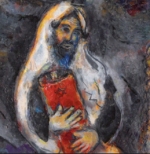
[ The following is a bit of a personal "rant" over the lamentatble state of the world today... ]
06.02.20 (Sivan 10, 5780) Shalom chaverim. This has been a strange and difficult year so far, with the enforced shuttering of the economy, the loss of many social freedoms - including gathering with others at places of worship, the economic loss and uncertainty due to the release of the Covid virus, and more practically, the inability to go see a dentist, to go to school (or to work), to get a hair cut, to eat at a restaurant, to take a vacation, to go shopping, to visit a sick family member in a hospital, to walk freely in many public places, among other things... The social restrictions have made observing the holidays problematic too, and from Purim through Passover Week (and now through Shavuot) we have been unable to celebrate the holidays with family and friends... Many of us have felt out of step with the calendar as a result, and we further have sensed the spirit of the age and its anxiety all around us; we see it in the masked faces we encounter on the street, we hear it in the constant barrage of propaganda, disinformation, and fearful rumors presented through the social media outlets.... Indeed we have felt lonely, vulnerable, and confused because of all this, and if we try to get real answers about what is happening, we are fed a steady stream of disinformation and junk science creating cognitive dissonance and anxiety. And as if things couldn't get any worse, civil unrest and violent anarchy has recently erupted in most of the major cities of this country. Of course, there are reasons for why the civil unrest has erupted, but in all the shrill talk, the strutting, the screaming, and the outrages, there is precious little talk about God and about people's responsibility to live righteously yet compassionately. You can read or listen to the "talking heads" or the so-called "news" of this world all day long yet you will likely never hear any serious appeal for people to humble themselves and pray, to ask the Living God for mercy, and to turn to God in repentance and sorrow... No, most of what you hear are excuses for people's anger or fear about how matters are out of control.
No one is innocent in all of this, of course, because people -- of every sort and ideology -- refuse to walk in the truth of God, and consequently they are so out of touch with reality that they actually believe that hurting and even killing people, burning cars and buildings, causing disruptions and panic in the streets, etc, etc. is justifiable -- and that they somehow have a magical "privilege" or immunity to exercise vengeance and to exact revenge on their own terms. As a result of this arrogance, God has "given them over" to a depraved mind - to a settled insanity and bondage to the folly of their base desires - so that the dignity of walking in humility and righteousness by extending mercy and forgiveness to others is lost (Rom. 1:19-32). Friends, what a tragic thing -- and what a damning statement about our age and its rampant godlessness and wickedness! We are reaping the whirlwind! Those who repudiate the truth of God and moral reality are fools because they will assuredly face judgment for what they do - regardless of who they are... There are scrolls with the deeds of our lives written therein, and every soul will give account of what they have done with their lives before God (Dan. 7:10; Mal. 4:1; Rev. 20:12-15; Matt. 16:27). No one will be able to plead a "special case" then; every one is eternally responsible for who they are and what they do, and in the end all things will be rectified by God, but not by the hand of man...
Please pray for this ministry, friends. Because of all the chaos and spiritual warfare going on in the world, like everyone else I've been distracted and have been finding it difficult to focus. I am tempted to feel anxious and to get angry about the insanity all around us these days... But now more than ever, however, do we need to hear the word of the LORD and to center our thoughts on the truth of God. Now more than ever do we need to pray for the lost and to ask God for special wisdom, power, and grace to serve him faithfully. So let us pray for one another to persevere and be strong in this hour of testing that is presently shaking the world. Let us ask God for the strength to walk with him in these days of anarchy as the world careens to its inevitable demise. There is no need to fear. God gives us courage (אומץ ולב) to stand firm at such a time as this. We are one day closer to the coming hour, so let's be prepared and full of confidence of God's great love for us. Shalom and thank you, friends.
 |
Like-for-Like Revelation...

06.02.20 (Sivan 10, 5780) It has been said that grace is getting what you don't deserve, whereas mercy is not getting what you do... Yeshua said, "Blessed are the merciful, for they shall receive mercy" (Matt. 5:7). This is not a reciprocal law like karma, i.e., you get in return what you first give, since we cannot obtain God's mercy as reward for our own supposed merit (Rom. 4:4). No, we are able to extend mercy to others when we are made merciful ("full of mercy"), that is, when we first receive mercy from God. After all, you can't give away what you don't have, and if we have no mercy for others, it is likely that we have not received it ourselves, as the parable of the Good Samaritan reveals (Luke 10:25-8). Your forgiveness is your forgiveness: as you forgive, so you reveal your heart. What you do comes from what you are, not the other way around... We are first transformed by God's grace and then come works of love. We are able to judge others mercifully, with the "good eye," because we come to believe that we are beloved by God.
The pattern therefore abides: First you realize you are broken, impoverished of heart, and you therefore mourn over your sinful condition. Then you hunger and thirst for God's righteousness, for his healing and deliverance, and you learn to trust the mercy of God, that is, you come to accept that you are accepted despite your unacceptability. You begin to show yourself mercy; you learn to "suffer yourself" and forgive your own evil, and then you extend this mercy to others who are hurting around you... The failure to extend mercy, to demand your "rights" or hold on to grudges, implies that you are relating to God as Judge rather than as Savior (James 2:13). If we condemn what we see in others, we have yet to truly see what is within our own hearts; we have yet to see our desperate need for God's mercy for our lives. If you don't own your own sin, your sin will own you. Being merciful is a response to God's love and therefore is essential to genuine teshuvah... Ask the LORD to help you let go of the pain of the past by being full of mercy toward yourself and others.
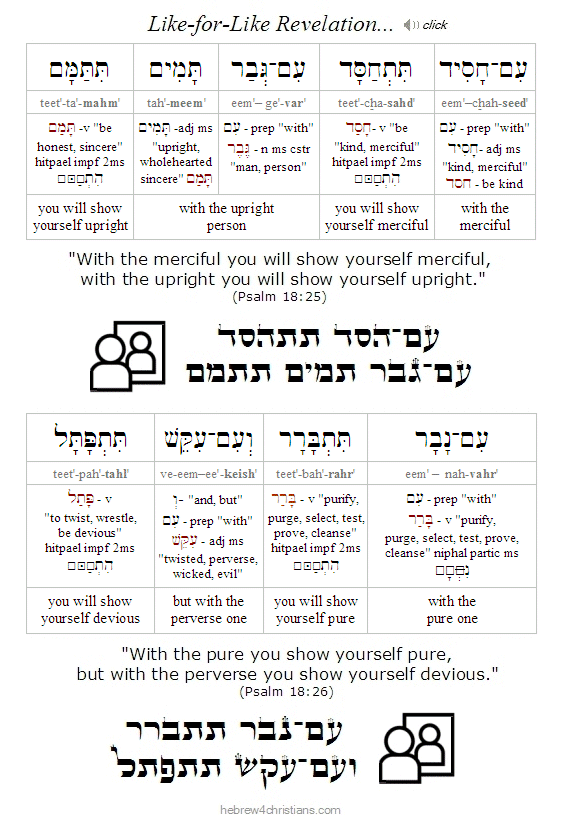 |
 |
Heeding the Father's Voice...

[ It was on Shavuot (i.e., "Pentecost"), after the resurrection of our Lord, when the followers of Yeshua received the comfort from the Spirit of God (see Acts 1:7-8; 2:1-4). ]
06.02.20 (Sivan 10, 5780) "Dear child of mine, do not forget my Torah (תורתי), but let your heart keep my commandments (מצותי). Doing so will add to you length of days (ארך ימים), long life, and peace (שׁלום). Do not abandon the heart of Your Father by losing sight of mercy and truth (חסד ואמת); No! Tie them around your neck; inscribe them upon the table of your heart (לוח לבך), that is, make them part of your inner being and will. Doing so will reveal my grace (חן) and good understanding (שכל־טוב) before the eyes of God and others. Trust in your heavenly Father with all your heart (בטח אל־יהוה בכל־לבך) and don't seek to be in control, trying to figure everything out on your own (ואל־בינתך אל־תשען). Listen for your Father's voice in everything you do; in all your ways know His heart (בכל־דרכיך דעהו), and then your ways will be directed in the truth. Don't assume that you know it all; abandon your self-conceit: Revere your heavenly Father (ירא את־יהוה) and flee from what you know is self-destructive and evil! Doing so will impart healing (רפאות) to you: your body will glow with health, your very bones will vibrate with life! Honor your Heavenly Father with everything you own; give him your first and the best of what you have (מראשׁית כל־תבואתך); then your barns will burst with plenty, and your wine vats will be overflowing" (Prov. 3:1-10).
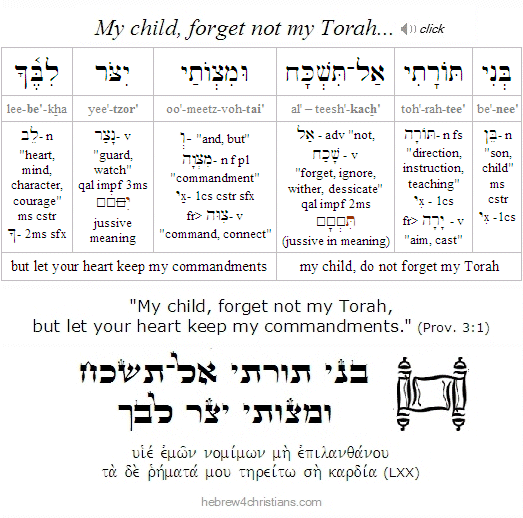 |
 |
Teshvuah of Wisdom....
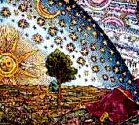
06.01.20 (Sivan 9, 5780) Moses prayed to God: "teach us to number our days," that is, help us understand how to make our days count for eternity, to have a weight of glory that will shine in the world to come... The sages say on the day of death, one considers one's life as if it had been a single day. Life goes by so quickly, and we never know when our personal "Rosh Hashanah" will come. "No one knows the day or hour..." That's why it is so vital to be healed and to turn to God while there is still time. So turn to him today and bachar ba'chayim (בחר בחיים )– "choose life!" "For this commandment is not hidden from you, and it is not far away. It is not in heaven... nor across the sea.... Rather, the matter is very near you - in your mouth and your heart - to do it" (Deut. 30:11-14; cp. Rom. 10:8-13).
לִמְנוֹת יָמֵינוּ כֵּן הוֹדַע
וְנָבִא לְבַב חָכְמָה
leem·noht · ya·mei'·noo · kein · ho·da'
ve·na·vee · le·vav · chokh·mah

"Teach us to number our days
that we may get a heart of wisdom."
(Psalm 90:12)

Hebrew Study Card
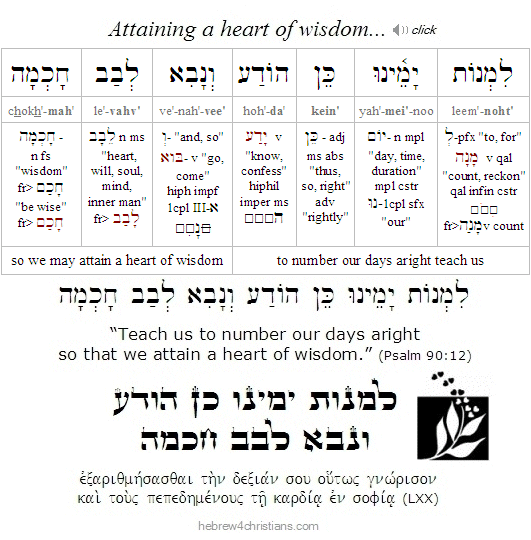
Awakening to Life...

06.01.20 (Sivan 9, 5780) The Scriptures declare that people willingly suppress the truth and "celebrate" untruth, and therefore they refuse to wake up and appreciate the spiritual danger of their lives. Soren Kierkegaard commented: "The world wants to be deceived... intensely, more intensely, more passionately perhaps than any witness to the truth has fought for the truth, the world fights to be deceived; it most gratefully rewards with applause, money, and prestige anyone who complies with its wish to be deceived" (Judge for Yourself). Indeed, any distraction that seduces people to deny reality will suffice for the sake of untruth... The Scriptures state: "And this is the judgment: the light has come into the world, and people loved the darkness rather than the light because their works were evil. For everyone who does wicked things hates the light and does not come to the light, lest his works should be exposed. But whoever does what is true comes to the light, so that it may be clearly seen that his works have been carried out in the power of God" (John 3:19-21).
"While there is nothing terrifying whatever and no terror whatever, there is nothing that builds up either, no upbuilding whatever. There is forgiveness of sin - that is upbuilding. The terrifying is that there is sin, and the magnitude of the terror in the inwardness of guilt-consciousness is proportionate to the dimension of the upbuilding. There is healing for all pain, victory in all strife, rescue in all danger - that is upbuilding. The terrifying is that there is pain, strife, danger; and the magnitude of the terrifying and the terror is proportionate to what builds up and to the upbuilding." - Soren Kierkegaard, Christian Discourses, 1848.
It's vital to remember that one of the main tactics of the enemy of our souls is to cast a spell over us induce a sense of forgetfulness and apathy... The satan wants you to forget that you are a child of the King. The entire venture of teshuvah (repentance) presupposes that you are created be'tzelem Elohim - in the image of God - and therefore you have infinite value and dignity. This is all the more evident in light of the awesome ransom that Yeshua paid to reconcile your soul with God. Understand then: the judgment is great because the love is so great... So what is one of the greatest of sins you can commit in your life? To forget what God has done for you... Remaining asleep, unmindful of your true identity is one of the most tragic things of life. Therefore the blast of the shofar is meant to jolt us from our sleep... We are to remember who we really are -- to remember that God is our King. The person who says, "Tomorrow I will do teshuvah" really is saying, "Not now." And then tomorrow comes and he says, "Not now." And in this way his entire life passes by, saying, "Not now." Finally one day he wakes up only to find himself already dead.
May God help us wake up today to the Reality that is set before us. The "End of the World" is the day you will die and give account of how you lived before the Truth of Eternity -- and there will be no more rationalizations, no more evasions, no excuses, no pretense of being a victim, that will bear on the question before the bar of heaven....
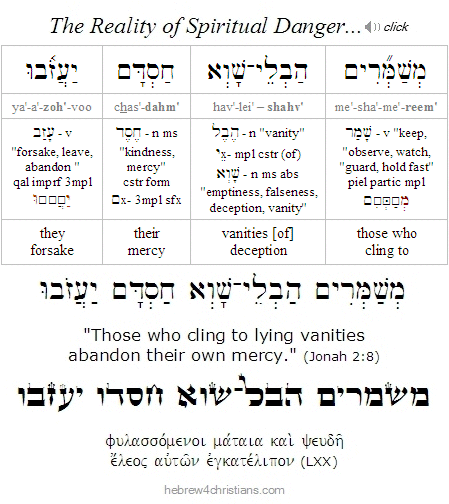 |
 |
|






















































































